
Faculty Session Overview
Faculty for Seminar XXI include renowned social scientists from MIT and subject matter experts from other top universities and research institutes in the United States and around the globe. Past faculty members have included Michèle Flournoy, Condoleezza Rice, Bernard Lewis, Sumit Ganguly, Samuel Huntington, Sarah Chayes, John Mearsheimer, Joseph Nye, Anne-Marie Slaughter, Gerard Prunier, and James Dobbins .
Name
Herbert F. Johnson Professor of International Management, Harvard Business School
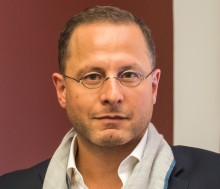
RAWI ABDELAL
Keough-Hesburgh Professor of Global Affairs, University of Notre Dame
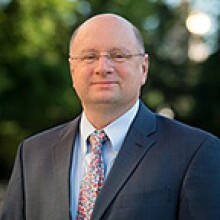
SCOTT APPLEBY is the Keough-Hesburgh Professor of Global Affairs and Interim Director of the Ansari Institute for Global Engagement with Religion in the Keough School of Global Affairs at Notre Dame. Appleby’s research examines how religious movements and organizations shape and are shaped by national, regional, and global governance dynamics, deadly conflict, international relations, and economic development. His many publications include The Ambivalence of the Sacred: Religion, Violence and Reconciliation; Strong Religion: The Rise of Fundamentalisms Around the World; Catholics in the American Century; and Peacebuilding: Catholic Theology, Ethics and Praxis. He is also the co-editor, with Martin E. Marty, of the five-volume interdisciplinary public policy study known as The Fundamentalism Project.
Professor, Security Studies Program, Georgetown University, Senior Fellow, Transnational Threats Program, CSIS
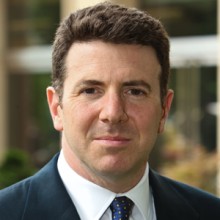
DANIEL BYMAN
Independent Scholar
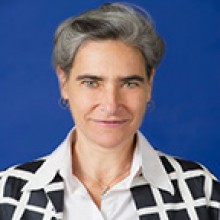
SARAH CHAYES
Assistant Professor of Political Science, University of Pennsylvania

FIONA CUNNINGHAM
Former Secretary of the Navy & Presidential Advisor, Senior Fellow, Johns Hopkins Applied Physics Laboratory
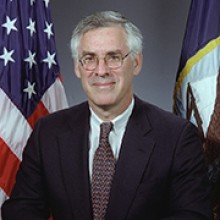
RICHARD DANZIG
Executive Director, World Peace Foundation, Research Professor, Tufts University
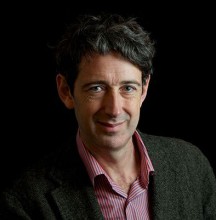
ALEX DE WAAL
Professor of Political Science & International Affairs, George Washington University

ALEXANDER DOWNES
Distinguished Professor of International Politics, Fletcher School of Law and Diplomacy, Tufts University
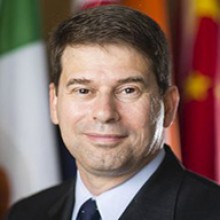
DAN DREZNER
Associate Professor, MIT Media Lab, Director, Sculpting Evolution Group

KEVIN ESVELT is an Associate Professor at the MIT Media Lab, where he leads the Sculpting Evolution Group in advancing biotechnology safely. He was the inventor of asynthetic microbial ecosystem to rapidly evolve useful biomolecules, and subsequently helped pioneer the development of CRISPR, a powerful new method of genome engineering. In 2013, Esvelt was the first to identify the potential for CRISPR “gene drive” systems to alter wild populations of
Fellow for Europe, Council on Foreign Relations

LIANA FIX
Director, MIT Seminar XXI Program, Associate Professor of International Relations and Security Studies, Tufts University, Resident Senior Research Fellow and visiting professor, MIT

KELLY M. GREENHILL
Chancellor's Professor of Political Science & Diller Family Chair in Israel Studies, University of California, Berkeley, Faculty Director, Berkeley Institute for Jewish Law and Israel Studies, University of California, Berkeley

RON HASSNER
Senior Adviser, Khazanah Research Institute, Malaysia, Visiting Fellow, Initiative for Policy Dialogue, Columbia University
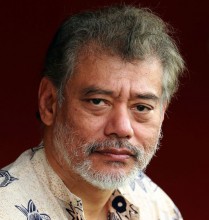
JOMO KWAME SUNDARAM
Associate Professor of Political Science, Massachusetts Institute of Technology
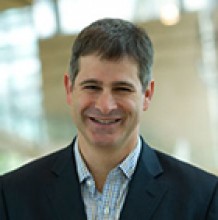
CHAPPELL LAWSON
Associate Professor of Political Science, George Washington University
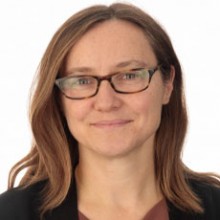
JANET LEWIS
Professor, Edmund A. Walsh School of Foreign Service & the Department of Government, Georgetown University
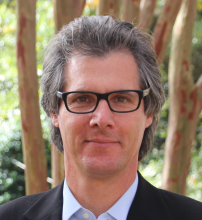
KEIR LIEBER
Leo Marx Career Development Associate Professor, MIT
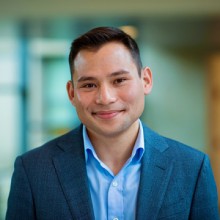
ERIK LIN-GREENBERG
Vice President & Director of the Foreign Policy Program, Brookings Institution
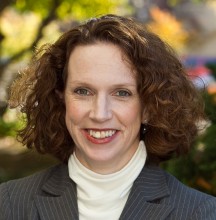
SUZANNE MALONEY
Dean Acheson Chair, SAIS, Johns Hopkins University

Matthias Matthijs holds the Dean Acheson Chair at SAIS and is associate professor of international political economy. His research focuses on the politics of economic crises, the role of economic ideas in economic policymaking, and the politics of regional integration. At SAIS, he teaches courses in international relations and comparative politics, and was twice awarded the Max M. Fisher Prize for Excellence in Teaching, in 2011 and 2015. He is also a Senior Fellow for Europe at the Council on Foreign Relations (CFR) and served as the Chair of the European Union Studies Association (EUSA) from 2019 to 2021. Matthijs is the editor (with Mark Blyth) of The Future of the Euro, published by Oxford University Press in 2015, and author of Ideas and Economic Crises in Britain from Attlee to Blair (1945-2005), published by Routledge in 2011. The latter is based on his doctoral dissertation, which received the Samuel H. Beer Prize for Best Dissertation in British Politics by a North American scholar, awarded by the British Politics Group of the American Political Science Association (APSA) in 2010.
R. Wendell Harrison Distinguished Service Professor of Political Science, University of Chicago
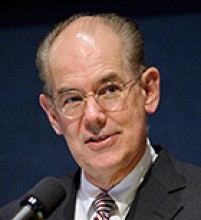
JOHN MEARSHEIMER
Professor of Politics, Princeton University, Director, European Union Program, Princeton University

ANDREW MORAVCSIK
Frank Stanton Professor of Nuclear Security & Political Science, MIT
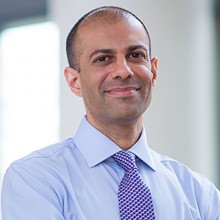
VIPIN NARANG
Professor, School of Foreign Service and Government Department, Georgetown University

ABRAHAM NEWMAN
Professor of Political Science and Data Systems & Society, MIT, Director, Program on Emerging Technologies, MIT

KENNETH OYE is a Post-Tenure Professor of Political Science and Data Systems and Society at MIT. His work in international relations includes Cooperation under Anarchy: Economic Discrimination and Political Exchange and four co-edited volumes on US foreign policy. Oye consulted for the Petersen Institute, UNIDO, US Treasury, Commerce, and EXIM. His work in technology policy examines the risks and benefits of synthetic biology, pharmaceuticals, and the internet. It has resulted in papers in Nature, Science, Clinical Pharmacology and Therapeutics, Politics and the Life Sciences, and Issues in Science and Technology. Oye is Director of the MIT Program on Emerging Technologies, a faculty affiliate of the Synthetic Biology Center, the Center for Biomedical Innovation, and the Internet Policy Research Initiative; and Chair of the Broad Institute Biosafety Committee.
Professor of Government, Dartmouth College, Director, Dartmouth Initiative on Global Security
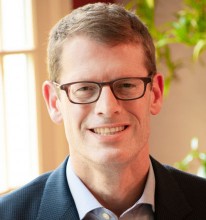
DARYL PRESS
Senior Fellow, Middle East Institute
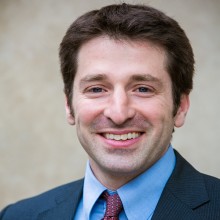
NATAN SACHS
Ford International Professor of Political Science, MIT

RICHARD SAMUELS
Ira. A Lipman Chair in Emerging Technology and National Security, Council on Foreign Relations, Director, Digital and Cyberspace Policy Program, Council on Foreign Relations

ADAM SEGAL
President, Migration Policy Institute

ANDREW SELEE
Associate Professor of Political Science, Tufts University, Director, Tufts International Relations Program
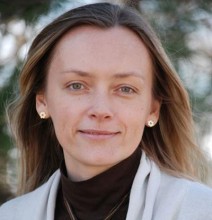
OXANA SHEVEL
Professor of Security Studies, National Defense University, Adjunct Professor, SAIS, Johns Hopkins University
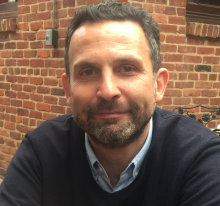
ÖMER TASPINAR
Professor of Political Science, Syracuse University, Director of the Moynihan Institute of Global Affairs, Syracuse University
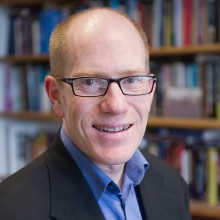
BRIAN TAYLOR
Senior Lecturer, MIT Sloan School of Management, Director, MIT AI Policy for the World Project

LUIS VIDEGARAY
Private Sector Director, UN World Food Programme

RICHARD WILCOX
Nilekani Professor of India & South Asian Studies, Yale University

STEVEN WILKINSON
Research Fellow & Professor, Center for Strategy and Military Power, National Defense University
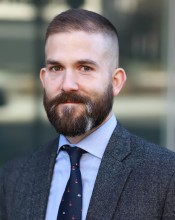
CLINT WORK
Founder/Principal, EHY Consulting, FBI Supervisory Special Agent (Ret.), National Counterintelligence Task Force
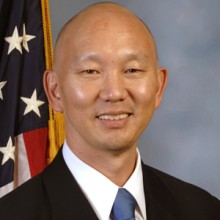
EDWARD YOU is the Founder and Principal of EHY Consulting LLC, a firm specializing in the security, policy, and strategic implications of emerging technologies. Through EHY Consulting, he advises industry, academia, and government on the convergence of artificial intelligence, biotechnology, quantum, and other disruptive technologies, helping organizations navigate the risks and opportunities that will define the future innovation landscape. You recently retired after more than two decades of distinguished service in the FBI, where he held leadership positions at the intersection of counterintelligence, biosecurity, and technology protection. Most recently, he served in the FBI’s National Counterintelligence Task Force, supporting a whole-of-government approach to safeguarding emerging and disruptive technologies. You served for 15 years in the Weapons of Mass Destruction Directorate. He also completed a Joint Duty Assignment at the Office of the Director of National Intelligence, where he served as the National Counterintelligence Officer for Emerging and Disruptive Technologies.
Name
Assistant Professor of African and African American Studies, Harvard University

Daniel E. Agbiboa is Assistant Professor of African and African American Studies at Harvard University. His research focuses on the relationships between state and nonstate actors and hybrid security governance in contemporary Africa, especially in the context of armed conflicts and city life. His articles have appeared in leading journals, including Studies in Conflict and Terrorism, The Journal of Modern African Studies, African Affairs, African Studies Review, Current History, and the International Journal of Urban and Regional Research. He is the recipient of the Harry Frank Guggenheim Distinguished Scholar Award, and is a fellow of the Institute for Advanced Study at Princeton and the Woodrow Wilson International Center for Scholars. He is the author of Mobility, Mobilization, and Counter/Insurgency: The Routes of Terror in an African Context (University of Michigan Press), They Eat Our Sweat: Transport Labor, Corruption, and Everyday Survival in Urban Nigeria (Oxford University Press), Transport, Transgression and Politics in African Cities: The Rhythm of Chaos (Routledge), and People, Predicaments and Potentials in Africa (Langaa RPCIG). His research has prompted invitations to consult for the World Bank, the United States Institute of Peace, the African Union, Transparency International, and the Global Center for Pluralism. He is currently leading a major partnership between Howard University National Resource Center for African Studies and George Mason University’s Carter School for Peace and Conflict Resolution on a US Department of Education Title VI grant (2019-2022) on “Countering Extreme Violence and Making Durable Peace in Africa.”
John Hay Professor of International Studies and Political Science, Brown University

Peter Andreas is the John Hay Professor of International Studies at Brown University. He joined Brown's Watson Institute in the fall of 2001 and holds a joint appointment with the Department of Political Science. Previously, Andreas was an Academy Scholar at Harvard University, a Research Fellow at the Brookings Institution and an SSRC-MacArthur Foundation Fellow on International Peace and Security. Andreas' research bridges the study of security, political economy, and transnational crime. He is especially interested in the clandestine dimensions of globalization, involving illicit cross-border flows of people, goods, money and information. He traces the interaction between states and illicit flows across time and place, focusing particularly on the practice and politics of government policing efforts along and across borders. Andreas is the author, co-author, or co-editor of a dozen books. These include "Smuggler Nation: How Illicit Trade Made America" (2013, Oxford University Press, selected by Amazon and by Foreign Affairs as one of the best books of the year), "Blue Helmets and Black Markets: The Business of Survival in the Siege of Sarajevo" (2008, Cornell University Press), "Policing the Globe: Criminalization and Crime Control in International Relations" (2006, Oxford University Press), "Border Games: Policing the U.S.-Mexico Divide" (3rd ed. 2022, Cornell University Press), and "Killer High: A History of War in Six Drugs" (2020, Oxford University Press, finalist for the Lionel Gelber Prize for best book of the year). His latest book is, "The Illicit Global Economy: What Everyone Needs to Know" (forthcoming from Oxford University Press). Andreas has also written for a wide range of scholarly and policy publications, including International Security, International Studies Quarterly, Foreign Affairs, Foreign Policy, The New Republic, Harper's, Slate, Time, and The Nation. Other writings include congressional testimonies and op-eds in major newspapers such as the New York Times, Washington Post, Boston Globe and The Guardian. He holds an M.A. and Ph.D. in government from Cornell University and a B.A. in political science from Swarthmore College.
Former Seminar XXI Director, Herter Professor of International Relations at Brandeis University, Senior Fellow in the Security Studies Program at MIT’s Center for International Studies
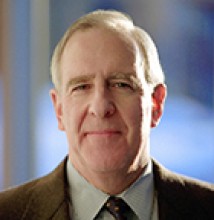
Robert Art, the Former Director of MIT's Seminar XXI Program, is Herter Professor of International Relations at Brandeis University and a Senior Fellow in the Security Studies Program at MIT's Center for International Studies. He has served as a Consultant to the Secretary of Defense and the Central Intelligence Agency, and is currently a Faculty Associate of the National Intelligence Council. Professor Art's books include The TFX Decision: McNamara and the Military; Reorganizing America's Defense, with Samuel P. Huntington and Vincent Davis, eds.; U.S. Foreign Policy: The Search for a New Role with Seyom Brown, eds.; The United States and Coercive Diplomacy, with Patrick Cronin, eds.; Democracy and Counterterrorism, with Louise Richardson, eds.; A Grand Strategy for America; and America’s Grand Strategy and World Politics.
Professor of Political Science, Tufts University
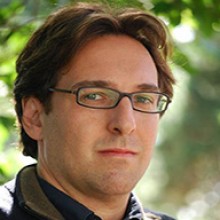
David Art is a professor of political science at Tufts University. His field is comparative politics, with a regional focus on Europe. Professor Art's research interests include extremist political parties and movements, the politics of history and memory, and comparative historical analysis in the social sciences. He is the author of The Resilience of the Old Regime: Paths Around Democracy in Europe, 1832-1919 (Cambridge University Press, forthcoming); Inside the Radical Right: The Development of Anti-Immigrant Parties in Western Europe (Cambridge University Press, 2011) and The Politics of the Nazi Past in Germany and Austria (Cambridge University Press, 2006). His articles have appeared in Comparative Politics, German Politics and Society, Party Politics, and West European Politics. Professor Art is Co-Convenor of the European Consortium for Political Research's (ECPR) Standing Group on Extremism and Democracy. During the 2008-2009 academic year he was a Max Weber Postdoctoral Fellow at the European University Institute.
Sié Chéou-Kang Chair for International Security and Diplomacy, Josef Korbel School of International Studies, Director of the Sié Center, University of Denver

Deborah Avant is the Sié Chéou-Kang Chair for International Security and Diplomacy and Director of the Sié Center at the University of Denver. Avant is also the inaugural Editor-in-Chief of the ISA’s newly launched Journal of Global Security Studies. Her research (funded by grants from the Institute for Global Conflict and Cooperation, the John D. and Catherine T. MacArthur Foundation, the Smith Richardson Foundation, and the Carnegie Corporation, among others) focuses on civil-military relations, the roles of non-state actors in security, the politics of controlling violence, and global governance. Under her leadership the Sié Chéou-Kang Center launched the Private Security Monitor, an annotated guide to regulation, data and analyses of global private military and security services, in 2012. In 2013 she was awarded an honorary doctorate from University of St. Gallen for her research and contribution toward regulating private military and security companies. Prior to joining the Josef Korbel School of International Studies, she held positions at the University of California, Irvine and George Washington University. Her most recent books are The New Power Politics: Networks and Transnational Security Governance; Pragmatic Networks and Transnational Governance of Private Military and Security Services; and Who Governs the Globe?
Myra and Robert Kraft Professor of Arab Politics, Brandeis University

Eva Bellin is the Myra and Robert Kraft Professor of Arab Politics in the Department of Politics and the Crown Center for Middle East Studies at Brandeis University. Bellin is a comparativist whose interests center on issues of democratization and authoritarian persistence, political and economic reform, civil society, religion and politics, and the politics of cultural change. She is the author of Stalled Democracy: Capital, Labor, and the Paradox of State Sponsored Development and co-editor of Building Rule of Law in the Arab World. She has published in a variety of venues including World Politics, Comparative Politics, Political Science Quarterly, Comparative Political Studies, World Development, Foreign Affairs, Middle East Policy, as well as numerous edited books. In 2006-2008 she was named a Carnegie Scholar by the Carnegie Endowment for International Peace, supporting her research on high courts in the Middle East and Islamic World. She was also named a Fellow at the Princeton Institute for Regional and International Studies, Democracy and Development Program in 2006-2007. Bellin has served on the editorial board of the journal Comparative Politics since 2005. She has conducted field work in Tunisia, Egypt, Israel, and Pakistan.
President Emeritus & Senior Fellow, Center for Global Development

Nancy Birdsall is president emeritus and a senior fellow at the Center for Global Development, a policy-oriented research institution that opened its doors in Washington, DC in October 2001. Prior to launching the Center, Birdsall served for three years as senior associate and director of the Economic Reform Project at the Carnegie Endowment for International Peace. Her work at Carnegie focused on issues of globalization and inequality, as well as on the reform of the international financial institutions. From 1993 to 1998, Birdsall was executive vice-president of the Inter-American Development Bank, the largest of the regional development banks, where she oversaw a $30 billion public and private loan portfolio. Before joining the Inter-American Development Bank, she spent 14 years in research, policy, and management positions at the World Bank, including as director of the Policy Research Department. Birdsall is the author, co-author, or editor of more than a dozen books and monographs, including, Delivering on Debt Relief: From IMF Gold to a New Aid Architecture, The White House and the World: A Global Development Agenda for the Next U.S. President, Fair Growth: Economic Policies for Latin America's Poor and Middle-Income Majority, and New Ideas in Development after the Financial Crisis. She is author of over 100 published papers, including dozens in peer-reviewed journals. Shorter pieces of her writing have appeared in US and international magazines and newspapers. Her most recent work focuses on global governance and the international financial institutions, women’s empowerment and its relationship to reproductive choices, and the financing of global public goods for development. Birdsall serves on the Board of Directors of the International Food Policy Research Council (IFPRI), the African Population and Health Research Center, and Mathematica. She is a member of the Williams College Center for Development Economics Visiting Committee. She has chaired the board of the International Center for Research on Women and has served on the boards of the Social Science Research Council, Overseas Development Council, and Accion. She has also served on committees and working groups of the National Academy of Sciences.
Senior Research Fellow, Center for International Studies, MIT

Joel F. Brenner specializes in cyber and physical security, data protection and privacy, intelligence law, the administration of classified information and facilities, and the regulation of sensitive cross-border transactions. He has represented companies and individuals in a wide variety of transactions and proceedings including sensitive foreign acquisitions involving the Committee on Foreign Investment in the U.S. (CFIUS), the law governing network operations, the liability of foreign governments, export controls, and internal corporate and government investigations. He has years of experience inside and outside government involving national and homeland security. Joel was Senior Counsel at the National Security Agency, advising Agency leadership on the public-private effort to create better security for the Internet. From 2006 until mid-2009, he was the head of U.S. counterintelligence under the Director of National Intelligence and was responsible for integrating the counterintelligence activities of the 17 departments and agencies with intelligence authorities, including the FBI and CIA and elements of the Departments of Defense, Energy, and Homeland Security. From 2002 – 2006, Joel was NSA’s Inspector General, responsible for that agency’s top-secret internal audits and investigations. He has also served as a prosecutor in the Justice Department’s Antitrust Division and has extensive trial and arbitration experience in private practice. In addition to his practice, Joel is a Senior Research Fellow at the Massachusetts Institute of Technology, where he divides his time between the Center for International Studies and the Computer Science and Artificial Intelligence Lab. At MIT he works on protecting critical infrastructure networks and on intelligence and security issues. He is particularly interested in intelligence collection, privacy, and secrecy as emerging issues in international relations and in the potential for curbing state-sponsored theft of intellectual property. He is a member of the American Bar Association’s Standing Committee on Law & National Security. He has written about intelligence oversight and Presidential authority to suspend or prohibit foreign takeovers of U.S. firms, and is often quoted in the national media on data security, privacy, and intelligence issues. Brenner was awarded the Intelligence Community Achievement Medal in July 2009. Brenner is the author of America the Vulnerable: Inside the New Threat Matrix of Digital Espionage, Crime and Warfare (Penguin Press, 2011), now available in paperback as Glass Houses: Privacy, Secrecy, and Cyber Insecurity in a Transparent World (Penguin Press, 2013).
Founder and Executive Director, Over Zero

Rachel Brown is the Founder and Executive Director of Over Zero, an organization that works to build resilience to identity-based violence and other forms of group-targeted harm. She is a recognized expert on confronting hateful and dangerous rhetoric and her work for the past decade has focused on using communication to prevent violent conflict around the world. Brown is the author of Defusing Hate: A Strategic Communication Guide to Counteract Dangerous Speech and was a 2014 Fellow at the United States Holocaust Memorial Museum Simon-Skjodt Center for the Prevention of Genocide. Brown previously founded and ran Sisi ni Amani-Kenya (SNA-K), a Kenyan NGO that pioneered new strategies to build local capacity for peacebuilding and civic engagement.
Deputy Secretary of State, U.S. Department of State
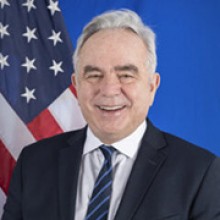
Kurt M. Campbell is the 22nd Deputy Secretary of State as of February 12, 2024. Prior to assuming this position, Deputy Secretary Campbell served as Deputy Assistant to the President and Coordinator for Indo-Pacific Affairs on the National Security Council. He was previously founding Chairman and Chief Executive Officer of The Asia Group, LLC, a strategic advisory and capital management group. From 2009 to 2013, Campbell served as the Assistant Secretary of State for East Asian and Pacific Affairs. Earlier, he was the CEO and Co-Founder of the Center for a New American Security and concurrently served as the Director of the Aspen Strategy Group and Chairman of the Editorial Board of the Washington Quarterly. Among the other positions he has held during his distinguished career, Campbell served as Deputy Assistant Secretary of Defense for Asian and Pacific Affairs, White House Fellow at the Treasury Department, and as Director of the Democracy Office at the National Security Council during the Clinton Administration. Campbell was an Associate Professor of Public Policy at Harvard’s John F. Kennedy School of Government and served in the U.S. Navy Reserves. He is the author or editor of ten books including The Pivot: The Future of American Statecraft in Asia, Difficult Transitions: Why Presidents Fail in Foreign Policy at the Outset of Power, and Hard Power: The New Politics of National Security. He received his B.A. from the University of California, San Diego and his Doctorate in international relations from Brasenose College at Oxford University where he was a Distinguished Marshall Scholar. Campbell is the recipient of numerous awards, including the Secretary of State’s Distinguished Service Award.
Associate Professor, Department of Government, Georgetown University
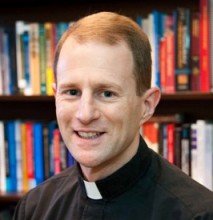
Fr. Matthew Carnes, S.J., is an associate professor at Georgetown University in the Department of Government and the Edmund A. Walsh School of Foreign Service, and he currently serves as the Director of the Center for Latin American Studies. His research examines the dynamics of labor and social welfare policy in developing and middle-income countries. A specialist on Latin America, he has conducted extensive field research in Argentina, Peru, Chile, and Bolivia, and he has worked on development projects in Honduras, Mexico, Uruguay, Paraguay, and Ecuador. He is the author of Continuity Despite Change: The Politics of Labor Regulation in Latin America (Stanford University Press, 2014), and numerous journal articles. A distinguished educator, he has received three of Georgetown University’s highest teaching awards, including Georgetown College's Edward B. Bunn, S.J. Award (2017 and 2011), given by graduating seniors of the College; the Edmund A. Walsh School of Foreign Service Faculty of the Year Award (2013), given by the SFS Academic Council; and the University-wide Dorothy Brown Award for Outstanding Teaching Achievement (2011). In 2012, he was featured as one of the country's best professors in the Princeton Review's publication, 300 Best Professors. In recent years, he has been a Visiting Fellow at the Kellogg Institute for International Studies at the University of Notre Dame (Spring 2009) and a National Fellow at the Hoover Institution at Stanford University (Academic Year 2011-2012).
Associate Professor, Bush School of Government and Public Service, Texas A&M University
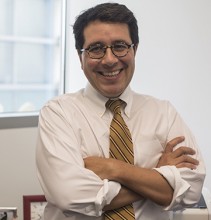
Jasen Castillo is an associate professor in the Bush School of Government and Public Service at Texas A&M University. Prior to joining the Bush School, Jasen worked in the Department of Defense's Policy Planning Office. Before working in the Office of the Secretary of Defense, he was an analyst at the RAND Corporation, where his research focused on military strategy, nuclear deterrence, and WMD terrorism. Prior to RAND, he was a consultant for the Institute for Defense Analyses. Dr. Castillo earned his PhD in political science from the University of Chicago, where he received research support from the National Science Foundation and the Smith Richardson Foundation. His research interests include US defense policy, military history and nuclear deterrence. His publications include: Endurance and War: The National Sources of Military Cohesion ; Flexible Response Revisited: Assessing Pakistan’s Potential Nuclear Strategies ; Striking First: Preemptive and Preventive Attack in U.S. National Security Policy ; “Nuclear Terrorism: Why Deterrence Still Matters,” Current History, Vol. 2, No. 668 ; and Economic Growth and Military Expenditures. Currently, he is working on a project exploring the deterrence and defense strategies of nuclear weapon states outside the US security umbrella.
Vice Dean & the D.S. Song-KF Professor in Government & International Affairs, Georgetown University, Senior Adviser, CSIS
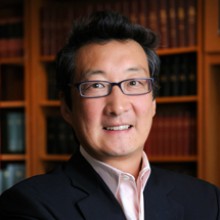
Victor Cha is Vice Dean and the D.S. Song-KF Professor in Government and International Affairs at Georgetown University. He is also a Senior Adviser and inaugural holder of the Korea Chair at the Center for Strategic and International Studies in Washington, D.C. He left the White House in 2007 after serving since 2004 as Director for Asian Affairs at the National Security Council (NSC). At the White House, he was responsible primarily for Japan, the Korean peninsula, Australia/New Zealand and Pacific Island nation affairs. Dr. Cha was also the deputy head of delegation for the United States at the Six-Party Talks in Beijing and received two Outstanding Service commendations during his tenure at the NSC. He is the author of five books, including the award-winning Alignment Despite Antagonism: The United States-Korea-Japan Security Triangle (Stanford University Press) (winner of the 2000 Ohira Book Prize) and The Impossible State: North Korea, Past and Future (Harper Collins Ecco, 2012), which was selected by Foreign Affairs as a “Best Book on the Asia-Pacific for 2012.” His latest book is Powerplay: Origins of the American Alliance System in Asia (Princeton University Press, 2016). He is also writing a new book on the impact of US-China competition on U.S. alliances around the world. He has published articles on international relations and East Asia in journals including Foreign Affairs, Foreign Policy, International Security, Political Science Quarterly, Survival, International Studies Quarterly, International Journal of the History of Sport, and Asian Survey. Dr. Cha is a former John M. Olin National Security Fellow at Harvard University, two-time Fulbright Scholar, John D. and Catherine T. MacArthur Scholar at Columbia University, and Hoover National Fellow, CISAC Fellow, and William J. Perry Fellow at Stanford University. He is currently a fellow in Human Freedom (non-resident) at the George W. Bush Institute in Dallas, Texas. He is also a Contributor for NBC News and MSNBC.
Michael J. Zak Professor for China & Asia-Pacific Studies, Cornell University
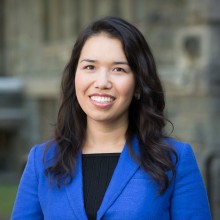
Jessica Chen Weiss is the Michael J. Zak Professor for China and Asia-Pacific Studies in the Department of Government at Cornell University. From August 2021 to July 2022, Weiss served as senior advisor to the Secretary's policy planning staff at the U.S. Department of State on a Council on Foreign Relations International Affairs Fellow ship for Tenured IR Scholars (IAF-TIRS) while on sabbatical from Cornell. She studies Chinese politics and foreign relations with an emphasis on nationalism and public opinion, focusing on the connection between domestic politics and international relations. Her first book, Powerful Patriots: Nationalist Protest in China's Foreign Relations (Oxford University Press, August 2014), examined how the Chinese Communist Party has managed nationalist, anti-foreign protests, tracing the government's repression and facilitation of grassroots mobilization as a means of conveying reassurance and resolve. Her work has appeared in the New York Times, Foreign Affairs, International Organization, China Quarterly, International Studies Quarterly, Journal of Conflict Resolution, Security Studies, Journal of Contemporary China, and the Review of International Political Economy. Born and raised in Seattle, Washington, she received her Ph.D. from the University of California, San Diego.
Professor of International & Public Affairs, Columbia University
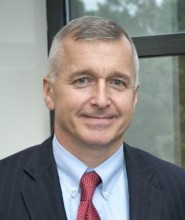
Thomas J. Christensen is Professor of Public and International Affairs and Director of the China and the World Program at Columbia University. He arrived in 2018 from Princeton University where he was William P. Boswell Professor of World Politics of Peace and War, Director of the Princeton-Harvard China and the World Program, and faculty director of the Masters of Public Policy Program and the Truman Scholars Program. From 2006-2008 he served as Deputy Assistant Secretary of State for East Asian and Pacific Affairs with responsibility for relations with China, Taiwan, and Mongolia. His research and teaching focus on China’s foreign relations, the international relations of East Asia, and international security. His most recent book, The China Challenge: Shaping the Choices of a Rising Power was an editors’ choice at the New York Times Book Review, a “Book of the Week” on CNN”s Fareed Zakaria GPS, and the Arthur Ross Book Award Silver Medalist for 2016 at the Council on Foreign Relations. Professor Christensen has also taught at Cornell University and MIT. He received his B.A. with honors in History from Haverford College, M.A. in International Relations from the University of Pennsylvania, and Ph.D. in Political Science from Columbia University. He has served on the Board of Directors and the Executive Committee of the National Committee on U.S.-China Relations, as co-editor of the International History and Politics series at Princeton University Press, and as a member of the Academic Advisory Committee for the Schwarzman Scholars Program. He is currently the Chair of the Editorial Board of the Nancy B. Tucker and Warren I. Cohen Book Series on the United States in Asia at Columbia University Press. Professor Christensen is a life member of the Council on Foreign Relations and a Non-Resident Senior Scholar at the Brookings Institution. He was presented with a Distinguished Public Service Award by the United States Department of State.
Founder & CEO, Good Harbor Cyber Security Risk Management
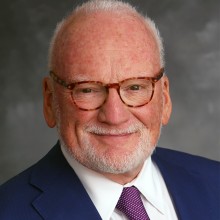
Richard Clarke is the founder and CEO of Good Harbor Cyber Security Risk Management, and advises leaders in the public and private sectors on all issues of cyber security and crisis management. Clarke served in the White House on the National Security Council under President George H.W. Bush, President Bill Clinton, and President George W. Bush for an unprecedented ten years. As the country’s chief counterterrorism expert, Clarke was tasked with building the National Strategic Stockpile and also led the White House’s response on September 11, 2001. Then, as Special Advisor to the President on Cyber Security, or “Cyber-Czar,” Clarke developed the country’s first National Strategy to Defend Cyberspace. Since leaving government, Clarke has authored or co-authored nine books, including the international bestseller, Against All Enemies, Warnings, and his latest with Robert Knake, The Fifth Domain.
President, Conger Strategies & Solutions, LLC, Director Emeritus, Center for Climate and Security, Senior Advisor, Council on Strategic Risks
John Conger is President of Conger Strategies & Solutions, LLC, a management and strategy consulting firm, Director Emeritus of the Center for Climate and Security, and Senior Advisor to the Council on Strategic Risks. Mr. Conger previously served as the Principal Deputy Under Secretary of Defense (Comptroller), from December 2015 to January 2017. As principal deputy comptroller, Mr. Conger assisted the Under Secretary of Defense (Comptroller) in the performance of his duties, provided advice to the Secretary of Defense on all budgetary and financial matters, including the development and execution of the Department’s annual budget, and oversaw the Department’s efforts to achieve audit readiness. Previously, Mr. Conger oversaw energy, installations and environmental policy throughout DoD, performing the duties of the Assistant Secretary of Defense for Energy, Installations and Environment, as Acting Deputy Under Secretary of Defense for Installations & Environment, and as Assistant Deputy Under Secretary of Defense for Installations & Environment from 2009 to 2015. In this role, Mr. Conger oversaw a vast portfolio that included base closure, energy security, climate change, and management of nearly a trillion dollars in real property. Prior to his appointment in DoD, Mr. Conger served on the staff of Representatives Chet Edwards, Sam Gejdenson and Jane Harman, as well as Professional Staff for the House International Relations Committee. Previously, Mr. Conger was employed in the private sector as an aerospace engineer and defense analyst supporting the Office of the Secretary of Defense. He holds a B.S. and an M.S. in Aeronautics and Astronautics from the Massachusetts Institute of Technology and an M.A. in Science, Technology and Public Policy from the George Washington University.
Senior Scientist, Board on Life Sciences, US National Academies of Science, Engineering, and Medicine

Dr. Nancy Connell is a Senior Scientist in the Board on Life Sciences, Division of Earth and Life Sciences, at the US National Academies of Science, Engineering, and Medicine (NASEM). Trained in microbial geneticist at Harvard, Dr. Connell’s work focuses on advances in life sciences and technology and their application to a number of developments in the areas of biosecurity, biosafety, and biodefense. Her research analyzes novel biotechnologies that impact the implementation of Biological Weapons Convention and the development of global catastrophic biological risks in ecosystems. She has had a long-standing interest in the development of regulatory policies associated with biocontainment work and dual-use research of concern. Dr. Connell is a past member of the Board on Life Sciences, a current member of the Committee on International Security and Arms Control, and a National Associate of NASEM, where she has served on more than 15 NASEM committees. She also served on the US National Science Advisory Board for Biosecurity and the US Centers for Disease Control and Prevention Office of Public Health Preparedness and Response Biological Agent Containment Working Group. In addition to life sciences research policy, Dr. Connell has considerable experience and interest in pedagogy, with a focus on ethics education and the responsible conduct of research. She has presented at workshops and meetings around the world on the interrelated issues of biocontainment, infectious disease research, research ethics, and the impact of advancing science and technology on the implementation of the Biological Weapons Convention. Dr Connell was Senior Scientist at the Johns Hopkins Center for Health Security and a Professor in the Department of Environmental Health and Engineering at the Johns Hopkins Bloomberg School of Public Health from 2018-2021. From 1992-2018, Dr. Connell was at Rutgers New Jersey Medical School (NJMS) and the Rutgers Biomedical Health Sciences, finishing her long career there as Professor in the Division of Infectious Disease and Director of Research in in the Department of Medicine. Dr. Connell was continuously funded by the National Institutes of Health, the Department of Defense, the Defense Advanced Research Projects Agency, industry, and other sources from 1992 to 2018.
emeritus Institute Professor, MIT
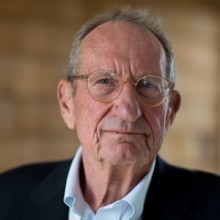
John Deutch is an emeritus Institute Professor at the Massachusetts Institute of Technology, where he served as Chairman of the Department of Chemistry, Dean of Science and Provost. Deutch’s research focuses on energy technology and he has participated in numerous interdisciplinary studies on energy issues including the MIT studies on the Future of Nuclear Energy, the Future of Coal, and the Future of Natural Gas. He has published over 140 technical publications in physical chemistry, as well as numerous publications on technology, energy, international security, and public policy issues. Some of his recent publications are The Crisis in Energy Policy; and “Is Innovation China’s Next Great Leap Forward?” in Issues in Science and Technology.
Independent Scholar

Aleksa Djilas is an independent writer based in Belgrade since 1993. Djilas was a critic of President Milošević’s policies during the Balkans War. His books include The Balkans and American Foreign Policy and The Contested Country. His papers have appeared in prominent popular and academic journals. Djilas has been a Fellow at the Harvard University Center for International Affairs and the Woodrow Wilson Center for Scholars. He is the son of Yugoslavia’s great dissident Milovan Djilas.
Director of Public Policy, MIT Internet Policy Research Initiative

Dr. R. David Edelman is Director of Public Policy at the MIT Internet Policy Research Initiative (IPRI), where he holds joint appointments at the Computer Science & Artificial Intelligence Lab (CSAIL) and Center for International Studies (CIS); teaches in the Department of Electrical Engineering & Computer Science; and leads research on the governance of artificial intelligence, the geopolitics of technology, and the national security dimensions of computing. Until 2017, he served as Special Assistant to President Obama for Economic and Technology Policy. In addition to this domestic portfolio, during that time he also represented the National Economic Council (NEC) and Office of Science & Technology Policy (OSTP) at the NSC Deputies Committee a range of national and homeland security matters. Edelman served from 2010-2012 as the nation’s first Director for International Cyber Policy on the White House National Security Council (NSC) staff. He began his career as a civil servant at the State Department’s Office of Cyber Affairs, later acting as the United States' lead negotiator on Internet issues at the United Nations — for which he was awarded State’s Superior Honor Award and twice its Meritorious Honor Award. His insights and analyses have appeared in print in the New York Times, Wall Street Journal, Washington Post, WIRED, Fast Company, and Fortune, and broadcast on CNN, Bloomberg, CNBC, MSNBC, and NPR. His latest book, Rethinking Cyber Warfare, will be released by Oxford University Press this year.
Fellow, Center for Global Development, Visiting Scholar, George Washington University

Kimberly Ann Elliott is a Nonresident Fellow with the Center for Global Development and a Visiting Scholar with the Institute for International Economic Policy at George Washington University. She is the author or co-author of numerous books and articles on trade policy and globalization, economic sanctions, and food security. Her most recent book is Global Agriculture and the American Farmer: Opportunities for U.S. Leadership (2017), a follow on to Delivering on Doha: Farm Trade and the Poor (2006). Her co-authored publications include Economic Sanctions Reconsidered, Can Labor Standards Improve under Globalization, and Reciprocity and Retaliation in U.S. Trade Policy. She is a member of the US Department of Labor’s National Advisory Committee for Labor Provisions in US Free Trade Agreements and has served on a number of official advisory committees, including the State Department’s Working Group on Economic Sanctions, the National Research Council committee on Monitoring International Labor Standards, and the USDA Consultative Group on the Elimination of Child Labor in US Agricultural Imports. She has an MA, with distinction, from the Johns Hopkins University School of Advanced International Studies and, in 2004, Austin College named her a Distinguished Alumna.
Harold Brown Professor of US Foreign & Security Policy, Columbia University
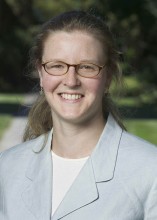
Page Fortna is the Harold Brown Professor of US Foreign and Security Policy in the Political Science Department at Columbia University. Her research focuses on terrorism, the durability of peace in the aftermath of both civil and interstate wars, and war termination. She is the author of two books: Does Peacekeeping Work? Shaping Belligerents Choices after Civil War (Princeton University Press, 2008) and Peace Time: Cease-Fire Agreements and the Durability of Peace (Princeton University Press, 2004). She has published articles in journals such as International Organization, World Politics, International Studies Quarterly, and International Studies Review. She is currently working on a project on terrorism in civil wars. Her research combines quantitative and qualitative methods, draws on diverse theoretical approaches, and focuses on policy-relevant questions. Fortna is a member of the Saltzman Institute of War and Peace Studies at Columbia University. She received the Karl Deutsch Award from the International Studies Association in 2010. She has held fellowships at the Olin Institute at Harvard, the Center for International Security and Cooperation at Stanford, the American Academy of Arts and Sciences, and the Hoover Institution. Professor Fortna teaches courses on international politics, war termination and the durability of peace, terrorism, cooperation and security, and research methods. Professor Fortna's article "Do Terrorists Win? Rebels' Use of Terrorism and Civil War Outcomes" (International Organization, Summer 2015) has recently been highlighted in The Atlantic; Slate; and Die Zeit.
Arthur and Ruth Sloan Professor of Political Science, MIT, Director, Security Studies Program, MIT
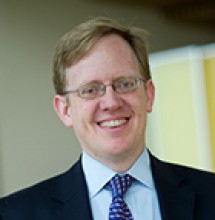
M. Taylor Fravel is the Arthur and Ruth Sloan Professor of Political Science and Director of the Security Studies Program at the Massachusetts Institute of Technology. Taylor studies international relations, with a focus on international security, China, and East Asia. His books include, Strong Borders, Secure Nation: Cooperation and Conflict in China’s Territorial Disputes, (Princeton University Press, 2008) and Active Defense: China's Military Strategy Since 1949 (Princeton University Press, 2019). His other publications have appeared in International Security, Foreign Affairs, Security Studies, International Studies Review, The China Quarterly, The Washington Quarterly, Journal of Strategic Studies, Armed Forces & Society, Current History, Asian Survey, Asian Security, China Leadership Monitor, and Contemporary Southeast Asia. Taylor is a graduate of Middlebury College and Stanford University, where he received his PhD. He also has graduate degrees from the London School of Economics and Oxford University, where he was a Rhodes Scholar. In 2016, he was named an Andrew Carnegie Fellow by the Carnegie Corporation. Taylor is a member of the board of directors of the National Committee on U.S.-China Relations and serves as the Principal Investigator for the Maritime Awareness Project.
Professor of Political Science, Indiana University, Bloomington
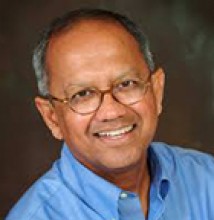
Sumit Ganguly is a Distinguished Professor of Political Science, holds the Rabindranath Tagore Chair in Indian Cultures and Civilizations and directs the Center on American and Global Security at Indiana University, Bloomington. A specialist on the international and comparative politics of South Asia he has previously taught at James Madison College of Michigan State University, at Hunter College of the City University of New York, the School of Public and International Affairs at Columbia University and the University of Texas at Austin. In the spring quarter of 2014 he was the Visiting Buffet Professor of International Studies at Northwestern University. He has also been a Fellow and a Guest Scholar at the Woodrow Wilson International Center for Scholars in Washington, DC; and a Visiting Fellow at the Center on International Security and Cooperation as well as the Center on Democracy, Development and the Rule of Law at Stanford University. In 2010 he was a Distinguished Visiting Fellow at the Institute of Defense Studies and Analysis in New Delhi. Professor Ganguly is the author, co-author, editor or co-editor of twenty books on the contemporary domestic and international politics of South Asia. He currently serves on the editorial boards of Asian Security, Current History, The India Review, International Security, Journal of Democracy, The Nonproliferation Review and Pacific Affairs. He is a member of the Council on Foreign Relations (New York) and a Fellow of the American Academy of Arts and Sciences. He was also an Alexander von Humboldt Research Fellow at the University of Heidelberg, Germany for 2018-2019. His recent publications include How Rivalries End; Deadly Impasse: India and Pakistan at the Dawn of a New Century; and Ascending India and Its State Capacity. He is currently at work on a book on the origins and evolution of India’s defense policies.
Professor of International Affairs, Bush School of Government and Public Service, Texas A&M University
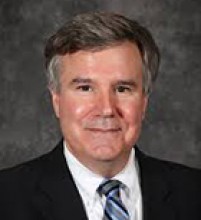
F. Gregory Gause III is Professor of International Affairs and John H. Lindsey ’44 Chair at the Bush School of Government and Public Service, Texas A&M University. From fall 2014 through summer 2022 he served as Head of the School’s Department of International Affairs. He is currently working at the School's Washington, D.C. teaching site. He is the author of three books and numerous articles on the politics of the Middle East, with a particular focus on the Arabian Peninsula and the Persian Gulf. He was previously on the faculties of the University of Vermont (1995-2014) and Columbia University (1987-1995) and was Fellow for Arab and Islamic Studies at the Council on Foreign Relations in New York (1993-1994). During the 2009-10 academic year he was Kuwait Foundation Visiting Professor of International Affairs at the Kennedy School of Government, Harvard University. In spring 2009 he was a Fulbright Scholar at the American University in Kuwait. In spring 2010 he was a research fellow at the King Faisal Center for Islamic Studies and Research in Riyadh, Saudi Arabia. His research focuses on the international politics of the Middle East, particularly the Arabian Peninsula and the Persian Gulf. He has published three books, most recently The International Relations of the Persian Gulf (Cambridge University Press, 2010). His articles have appeared in Foreign Affairs, Foreign Policy, Middle East Journal, Security Studies, Washington Quarterly, National Interest, and in other journals and edited volumes. He received his Ph.D. in political science from Harvard University in 1987 and his B.A. (summa cum laude) from St. Joseph's University in Philadelphia in 1980. He studied Arabic at the American University in Cairo (1982-83) and Middlebury College (1984).
David M. Knott Professor of Global Politics and International Relations, University of Pennsylvania, Director of the Center for the Study of Contemporary China, University of Pennsylvania, Associate Director of the Christopher H. Browne Center for International Politics, University of Pennsylvania

Avery Goldstein is the David M. Knott Professor of Global Politics and International Relations in the Political Science Department, Inaugural Director of the Center for the Study of Contemporary China, and Associate Director of the Christopher H. Browne Center for International Politics at the University of Pennsylvania. His research focuses on international relations, security studies, and Chinese politics. He is the author of Rising to the Challenge: China’s Grand Strategy and International Security (Stanford University Press, 2005), Deterrence and Security in the 21st Century: China, Britain, France and the Enduring Legacy of the Nuclear Revolution (Stanford University Press, 2000), and From Bandwagon to Balance of Power Politics: Structural Constraints and Politics in China, 1949-1978 (Stanford University Press, 1991). Among his other publications are articles in the journals International Security, International Organization, Journal of Strategic Studies, Security Studies, China Quarterly, Asian Survey, Comparative Politics, Orbis, and Polity as well as chapters in a variety of edited volumes. Goldstein is also a Senior Fellow at the Foreign Policy Research Institute in Philadelphia.
Virginia E. and John T. Hazel, Jr., Chair Professor of Public Policy, George Mason University, Senior Fellow, Mercatus Center, Global Policy Fellow, Woodrow Wilson Center
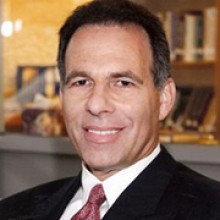
Jack A. Goldstone (PhD Harvard) is the Virginia E. and John T. Hazel, Jr., Chair Professor of Public Policy at George Mason University, a Senior Fellow of the Mercatus Center, and a Global Policy Fellow at the Woodrow Wilson Center. Previously, Dr. Goldstone was on the faculty of Northwestern University and the University of California, and has been a visiting scholar at Cambridge University, Stanford University, UCLA, the Hong Kong University of Science and Technology and the California Institute of Technology. He has received the Distinguished Contribution to Scholarship award from the American Sociological Association, the Arnoldo Momigliano Prize, the Barrington Moore Jr. Award, the Myron Weiner Award, the Ibn Khaldun Award, and fellowships from the MacArthur Foundation, the JS Guggenheim Foundation, the Carnegie Foundation, the U.S. Institute of Peace and the Mellon Foundation. He also served as the Richard C. Holbrooke Distinguished Visitor to the American Academy in Berlin. A life member of the Council on Foreign Relations, Dr. Goldstone is also an Academic Fellow of the European Policy Council, and served on the International Advisory Board of the Gaidar Institute (Moscow). He led a National Academy of Sciences study of USAID’s democracy assistance policies, and has served as a consultant on state fragility to USAID, Britain’s DFID, and the OECD. Dr. Goldstone’s research focuses on the impact of global population changes on social and economic development. His 2010 essay in Foreign Affairs – “The New Population Bomb: The Four Megatrends that will Change the World” – has been widely cited as a critical guide to the impact of future population change. He has been a keynote speaker at events in Oslo, Moscow, Antalya, Delhi, Beijing, Berlin, Aspen and New York, and appeared on CNN, MSNBC, Al Jazeera, CCTV, Russia Today, and Fox News. His recent books include the Handbook of Revolutions in the 21 st Century (Springer, 2022), International Handbook of Population Policies (Springer 2022) and Revolutions: A Very Short Introduction (Oxford U. Press 2023).
Leo Pasvolsky Senior Fellow, Brookings, College Park Professor, University of Maryland, Gallup Senior Scientist

Carol Graham is Leo Pasvolsky Senior Fellow at Brookings, College Park Professor at the University of Maryland, and a Gallup Senior Scientist. She served on a National Academy of Sciences panel on well-being metrics in 2012-13, received Pioneer Awards from the Robert Wood Johnson Foundation in 2017 and 2021, and a Lifetime Distinguished Scholar award from the International Society of Quality of Life Studies (2018). She has served as a Vice President at Brookings, as Special Advisor to the Inter-American Development Bank, Visiting Fellow at the World Bank, and consultant to the IMF. Her most recent books (published in several languages) are: Happiness for All? Unequal Hopes and Lives in Pursuit of the American Dream (Princeton, 2017); The Pursuit of Happiness (Brookings, 2011); and Happiness around the World: The Paradox of Happy Peasants and Miserable Millionaires (Oxford, 2010). She has published articles in journals including Science, Social Science and Medicine, the Journal of Population Economics, Perspectives on Psychological Science, World Bank Research Observer; Health Affairs, Health Economics; the Journal of Development Studies; the Journal of Human Development; and the Journal of Economic Literature; and her work has been reviewed in Science, the New Yorker, and the New York Review of Books, among others, and is senior editor at Behavioral Science and Policy.
Senior Scholar, Johns Hopkins Center for Health Security, Associate Professor of Environmental Health & Engineering, at Johns Hopkins Bloomberg School of Public Health

Dr. Gigi Gronvall is a Senior Scholar at the Johns Hopkins Center for Health Security and an Associate Professor in the Department of Environmental Health and Engineering at the Johns Hopkins Bloomberg School of Public Health. She is an immunologist by training. Dr. Gronvall’s work at the Center addresses the role of scientists in health security—how they can contribute to an effective technical response against a biological weapon or a natural epidemic. She is particularly interested in developing policies that will boost the safety and security of biological science activities while allowing beneficial research to flourish. Dr. Gronvall is the author of the book Synthetic Biology: Safety, Security, and Promise, published in fall 2016 (Health Security Press). Dr. Gronvall is also the author of the book Preparing for Bioterrorism: The Alfred P. Sloan Foundation’s Leadership in Biosecurity. Dr. Gronvall is a member of the Threat Reduction Advisory Committee (TRAC), which provides the Secretary of Defense with independent advice and recommendations on reducing the risk to the United States, its military forces, and its allies and partners posed by nuclear, biological, chemical, and conventional threats. In 2014-15, she led a preparatory group that examined the US government response to the Ebola outbreak in West Africa as a case study for DoD’s strategic role in health security and that made recommendations for future DoD actions in response to disease outbreaks. She served as the Science Advisor for the Commission on the Prevention of Weapons of Mass Destruction Proliferation and Terrorism from April 2009 until the Commission ended in February 2010. She has testified before Congress about the safety and security of high-containment biological laboratories in the United States and served on several task forces related to laboratory and pathogen security, most recently the National Institutes of Health Blue Ribbon Panel to Review the 2014 Variola Virus Incident on the NIH Campus (2016) and the Committee for Comprehensive Review of DoD Laboratory Procedures, Processes, and Protocols Associated with Inactivating Bacillus anthracis Spores, formed in response to the Dugway anthrax shipments (2015). Dr. Gronvall has investigated and presented policy recommendations on the governance of science to the Biological Weapons Convention (BWC) in Geneva, Switzerland. Dr. Gronvall is an Associate Editor of the journal Health Security (formerly Biosecurity and Bioterrorism). She is a founding member of the Center, and, prior to joining the faculty, she worked at the Johns Hopkins University Center for Civilian Biodefense Strategies.
Former US Ambassador to South Korea, Former Commander of the U.S. Pacific Command

Admiral Harry Harris is the former U.S. Ambassador to South Korea (2018-2021) and former Commander of the U.S. Pacific Command (2015-2018). Prior to this, he commanded the U.S. Pacific Fleet, U.S. SIXTH Fleet, Striking and Support Forces NATO, Joint Task Force Guantanamo, Patrol and Reconnaissance Wing ONE, and VP-46. He has served in every geographic combatant command region and participated in major operations that included S.S. Achille Lauro terrorist hijacking incident, Attain Document (Libya 1986), Desert Shield/Desert Storm, Enduring Freedom, Iraqi Freedom, and Odyssey Dawn (Libya 2011). Harris’s other assignments included serving as aide to the Commander, U.S. Naval Forces Japan, chief speechwriter for the Chairman of the JCS, Director of Operations for U.S. FIFTH Fleet, Director of Operations for U.S. Southern Command, Deputy CNO for Communications Networks, and Director of Current Operations and Anti-terrorism/Force Protection Policy. In 2011, he was the direct representative of the Chairman of the JCS to the Secretary of State with additional duties as the U.S. roadmap monitor for the Mid-East Peace Process (Oslo Accords). A 1999-2000 Seminar XXI Fellow, he holds Master's degrees from Harvard and Georgetown, and also studied at Oxford University. Harris has logged over 4,400 flight hours, including more than 400 combat hours, in maritime patrol and reconnaissance aircraft. He has received numerous awards including two Defense Distinguished Service Medals, three Navy Distinguished Service Medals, two Bronze Stars, the State Department’s Distinguished Honor Award, several national awards recognizing his work in diversity, and two CIA awards -- the Agency Seal Medal and the Ambassador's Award. He has been decorated by the governments of Australia, France, Japan, the Philippines, Mongolia, Singapore, and South Korea.
Professor of Political Science, Gettysburg College
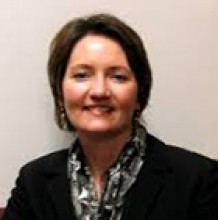
Caroline Hartzell is a Professor in the Political Science Department at Gettysburg College. Her specialization is in international political economy with an emphasis on issues of conflict and conflict management, development, and globalization. Professor Hartzell's research focuses on cross-national civil war settlements and the effects institutions, both domestic and international, have on social conflict. She has published numerous journal articles on the effects that power-sharing settlements of civil wars have on the duration and quality of the peace, as well as co-authored and co-edited books on those topics. Professor Hartzell's research has been supported by the U.S. Institute of Peace, where she was a Jennings Randolph Senior Fellow, and grants from the National Science Foundation and Folke Bernadotte Academy to carry out survey research and experiments in Mindanao and Nepal. Hartzell's current research focuses on the effects peace settlements have on citizens' trust in government and citizens' attitudes regarding inclusive peace processes. Professor Hartzell is editor of the journal Conflict Management and Peace Science, the journal of the Peace Science Society (International) and a coordinator of the Citizens in Peace Processes (CIPP) research network.
Director of the International Security Program, CSIS

Kathleen Hicks is senior vice president, Henry A. Kissinger Chair, and director of the International Security Program at the Center for Strategic & International Studies (CSIS). She is a frequent writer and lecturer on U.S. foreign policy; national security strategy, forces, and budget; and strategic futures. Dr. Hicks previously served in the Department of Defense as principal deputy under secretary for policy, a Senate-confirmed position with responsibility for assisting in the development and oversight of global and regional defense policy, strategy, and operations. She also served as deputy under secretary of defense for strategy, plans, and forces, leading the development of the 2012 Defense Strategic Guidance and the 2010 Quadrennial Defense Review and crafting guidance for future force capabilities, overseas military posture, and contingency and theater campaign plans. Dr. Hicks was a senior fellow at CSIS from 2006 to 2009, leading a variety of national security research projects. From 1993 to 2006, she was a career civil servant in the Office of the Secretary of Defense, rising from Presidential Management Intern to the Senior Executive Service. Dr. Hicks received numerous recognitions for her service in the Department of Defense (DOD), including distinguished awards from three secretaries of defense and the chairman of the Joint Chiefs of Staff. She also received the 2011 DOD Senior Professional Women’s Association Excellence in Leadership Award. Dr. Hicks was a presidentially appointed commissioner for the National Commission on the Future of the Army. She is a member of the Council on Foreign Relations and serves on the Boards of Advisors for the Truman National Security Project and SoldierStrong.
Professor of International Relations, Georgetown University
Bruce Hoffman has been studying terrorism and insurgency for nearly five decades. He is a professor at Georgetown University’s Walsh School of Foreign Service and also the Shelby Cullom and Kathryn W. Davis Senior Fellow for Counterterrorism and Homeland Security at the Council on Foreign Relations, and the George H. Gilmore Senior Fellow at the U.S. Military Academy’s Combating Terrorism Center. Hoffman was appointed a commissioner on the FBI 9/11 Review Commission by the U.S. Congress and has been Scholar-in-Residence for Counterterrorism at the Central Intelligence Agency; adviser on counterterrorism to the Coalition Provisional Authority, Baghdad, Iraq; and, adviser on counterinsurgency to Multi-National Forces—Iraq Headquarters, Baghdad, Iraq. He is the recipient of the United States Intelligence Community Seal Medallion, the highest commendation given to a non-government employee. Hoffman is the author of several award-winning books. His latest book is God, Guns, and Sedition: Far-Right Terrorism in America (Columbia University Press).
Jean Monnet Professor of European Politics, University of Bath
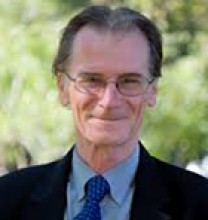
Jolyon Howorth is the Jean Monnet Professor ad personam and Professor Emeritus of European Politics at the University of Bath (UK). He was Visiting Professor of Political Science at Yale from 2002 to 2018 and a Senior Fellow at the Harvard Kennedy School from 2018 to 2022. He has held Visiting Professorships at the University of Washington, the University of North Carolina-Chapel Hill, Columbia and New York Universities, Sciences-Po, Paris, the Freie Universität Berlin, the Australian Defence Force Academy, and Luiss Guido Carli University (Rome). He has held a Senior Research Fellowship at the European Union’s Institute for Security Studies. He is a Senior Research Associate at the Institut Français des Relations Internationales (Paris), a Fellow of the Royal Society for the Arts (UK), Chevalier dans l’Ordre des Palmes Académiques (France), and has been a Member of the Advisory Boards of the European Institute for Public Administration (Netherlands), the Centre for Defence Studies(UK), the Institut de Recherche Stratégique de l'Ecole Militaire (Paris), the Centre National Jean Jaurès (France), the European Policy Centre (Brussels) and the Centre for the Study of Security and Diplomacy (UK). He has published extensively in the field of European security and defense policy and transatlantic relations. Recent books include: Security and Defence Policy in the European Union, (2007, 2014); Defending Europe: the EU, NATO and the Quest for European Autonomy, (2003); European Integration and Defence: The Ultimate Challenge? (2000). In 2019, he was awarded French citizenship in recognition of his scholarship on French politics and history.
Associate Professor, Rollins School of Public Health, Emory University

Manoj Jain, MD MPH is an infectious disease physician, a writer, and a national leader in healthcare quality improvement. He received his engineering, doctorate, and public health degree from Boston University. He did his residency, fellow and executive public health training at Boston City Hospital, New England Medical Center, Tufts University and Harvard School of Public Health, respectively. He has served as a consultant to the World Bank on HIV, and has been interviewed by CNN and National Public Radio. Over the past 15 years Dr. Jain has given over a 150 talks, and published numerous scientific articles, chapters and books. Dr. Jain has conducted research on HIV epidemiology, quality improvement, and spirituality & meditation. Presently, Dr. Jain is an Infectious disease consultant at Baptist Memorial Hospital and Methodist Hospitals in Memphis. He is also a clinical Associate Professor at University of Tennessee, Memphis and Rollins School of Public Health at Emory University in Atlanta.
Senior Fellow, Futures Lab, Defense & Security Department, Center for Strategic and International Studies
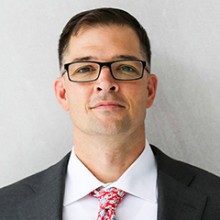
Benjamin Jensen is a senior fellow for Futures Lab in the Defense and Security Department at the Center for Strategic and International Studies (CSIS). He is also a professor of strategic studies at the Marine Corps University School of Advanced Warfighting. Dr. Jensen has spent the last decade researching the changing character of political violence, technology, and strategy. He has worked with the Defense Advanced Research Projects Agency (DARPA), Marine Corps Warfighting Lab, NATO, the U.S. Army, and a range of government agencies and foundations to develop wargames and scenario-driven exercises exploring strategy, defense analysis, crisis response, military planning, and complex emergencies. Outside of traditional defense and security issues, he supported the Economic Community of West African States (ECOWAS) in developing a human security assessment framework and a red team manual for early-warning analysts and development practitioners. He is the author of four books including the forthcoming Information at War: Military Innovation, Battle Networks, and the Future of Artificial Intelligence (Georgetown University Press, 2022), Military Strategy in the 21st Century: People, Connectivity, and Competition (Cambria, 2018), Cyber Strategy: The Evolving Character of Power and Coercion (Oxford University Press, 2018), and Forging the Sword: Doctrinal Change in the U.S. Army (Stanford University Press 2016). Most recently, he served as the senior research director and lead author for the U.S. Cyberspace Solarium Commission. Dr. Jensen is a graduate of the University of Wisconsin-Madison and received his MA and PhD from the American University School of International Service. He is also a reserve officer in the U.S. Army.
Professor of Practice/International Affairs, Johns Hopkins, Fellow, Hoover Institution
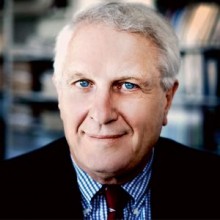
Josef Joffe is Professor of Practice/International Affairs at Johns Hopkins Center for Global Affairs. His career has been divided between journalism and academia, Europe and the United States. He has taught at SAIS, Harvard, Stanford and Munich University. He was twice Regent Fellow at the University of California and a Visiting Lecturer at Princeton and Darthmouth. He has held research positions at the Woodrow Wilson Center,the Carnegie Endowment for International Peace, and the Institute for International Studies at Stanford. He has serveved as a distinguished Fellow at Stanford’s Hoover Institution since 2004. In Germany, he has served as editorial-page editor at Süddeutsche Zeitung (Munich) and editor of the weekly Die Zeit (Hamburg). Columns, essays and book reviews in: The Wall Street Journal, New York Times, Washington Post, Guardian, Financial Times, Time, Newsweek, New Republic, Politico, Atlantic, and the New York Review of Books. In 2020, he co-founded the successor magazine American Purpose. His recent books include Überpower: The imperial Temptation of America; The Myth of American Decline; and The Good Germans: Career of a Moral Superpower.
Associate Professor of Political Science & International Affairs, George Washington University, Fellow, Wilson Center
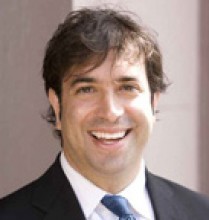
Stephen B. Kaplan is an Associate Professor of Political Science and International Affairs in the Department of Political Science at George Washington University, and a current fellow at the Wilson Center. His research and teaching interests are on the frontiers of international and comparative political economy, where he specializes in the political economy of global finance and development, the politics of macroeconomic policy-making, Chinese foreign economic policy, and Latin American politics. His book, Globalization and Austerity Politics in Latin America, was published by Cambridge University Press (in the Cambridge Studies in Comparative Politics Series) in 2013, and was selected for Choice’s Outstanding Academic Titles in the Social and Behavioral Sciences that same year. The book is based on his doctoral dissertation, which was awarded the 2010 Mancur Olson Award for Best Dissertation in Political Economy by the American Political Science Association. Kaplan is currently working on his second book manuscript, Globalizing Patient Capital: The Political Economy of Chinese Finance in the Americas (under contract with Cambridge University Press), which aims to evaluate the political and policy making implications of growing Chinese economic interdependence in the Western Hemisphere. His current research also examines debtor-creditor relations in global finance, the role of technocratic communities in shaping economic policy, and the rise of emerging powers. I have published articles in The Journal of Politics, Electoral Studies, Latin American Research Review, Review of International Political Economy, and World Development.
Gordon McKay Professor of Applied Physics, Harvard School of Engineering and Applied Sciences, Professor of Public Policy, Harvard Kennedy School, Founder, Carbon Engineering

David Keith is Gordon McKay Professor of Applied Physics at the Harvard School of Engineering and Applied Sciences, Professor of Public Policy at the Harvard Kennedy School, and founder of Carbon Engineering, a company developing technology to capture CO2 from ambient air to make carbon-neutral hydrocarbon fuels. Keith has worked near the interface between climate science, energy technology, and public policy for twenty-five years, and he is known for his work on the science, technology, and public policy of solar geoengineering. He is the author of A Case for Climate Engineering, which provides a clear and accessible overview of the costs and risks, and how climate engi-neering might fit into a larger program for managing climate change.
Professor of Political Science and International Studies, Boston College, Stephen & Barbara Friedman Professor of International Political Economy Emeritus, Cornell University

Jonathan Kirshner is Professor of Political Science and International Studies at Boston College, and the Stephen and Barbara Friedman Professor of International Political Economy Emeritus at Cornell University. He is the author of An Unwritten Future: Uncertainty and Realism in World Politics, and co-editor of Downfall of the American Order? Kirshner served as director of Cornell University’s Reppy Institute for Peace and Conflict Studies from 2007 to 2015, and previously chaired the Economics and National Security Program at the Olin Institute of Strategic Studies at Harvard. His research and teaching interests focus on international relations, political economy (especially macroeconomics and money), and politics and film. He is the author of numerous books, including American Power after the Financial Crisis, and Hollywood’s Last Golden Age: Politics, Society and the Seventies Film in America. His first book, Currency and Coercion: The Political Economy of International Monetary Power explored how states manipulate international monetary relations to advance security-related goals. Another book, Appeasing Bankers: Financial Caution on the Road to War, won the best book award from the International Security Studies Section of the International Studies Association. From Cornell University, Kirshner is a recipient of the Provost's Award for Distinguished Scholarship, and the Stephen and Margery Russell Distinguished Teaching Award.
Head of Policy, Munich Security Conference

Nicole Koenig is Head of Policy of the Munich Security Conference (MSC). She is an expert on EU foreign and security policy and Franco-German security cooperation. Before joining the MSC, she was Deputy Director of the Jacques Delors Centre at the Hertie School. Prior to that, she worked at various European think tanks and universities, including the Istituto Affari Internazionali in Rome, the Trans European Policy Studies Association in Brussels, the Institute for Advanced Sustainability Studies in Potsdam, and the Department of War Studies at King's College London. In 2019-20, she was also Europe's Futures Fellow at the Institute for Human Sciences in Vienna, and in 2022 she was a DAAD Fellow at the American Institute for Contemporary German Studies in Washington, D.C. Nicole completed her PhD on EU crisis management in Africa at the Universities of Cologne and Edinburgh. She holds a Master's degree in "EU International Relations and Diplomacy" from the College of Europe in Bruges and one in Politics and Management from the University of Constance. Her publications include Putin’s war and the Strategic Compass: A quantum leap for the EU’s security and defence policy?; From Strategic Compass to Common Course: Key deliverables and implementation paths; and After the German election: What's next in EU foreign and security policy?
Director General, Russian International Affairs Council
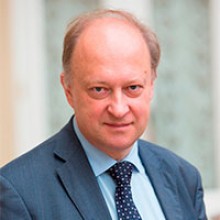
Dr. Andrey Kortunov is the Director General of the Russian International Affairs Council. Dr. Kortunov previously served as Deputy Director of the Institute for US and Canadian Studies. He was founder and first president of the Moscow Public Science Foundation. He has taught Russian foreign policy at the University Of Miami and at the Lewis & Clark College in Portland (University of California). In 2011, he was elected Director General of the Russian International Affairs Council non-profit partnership established by order of the President of the Russian Federation. His academic focus is international relations, foreign and domestic policy of Russia and Russian-American relations. Dr. Kortunov is the author of over 120 publications dedicated to the analysis of Soviet/Russian-American relations, global security, and the foreign and domestic policy of the USSR and Russia. His major recent publications include Russia and UN Reforms, and Disintegration of the Soviet Union and US Policies.
Director, Center for Middle East Studies, University of Oklahoma
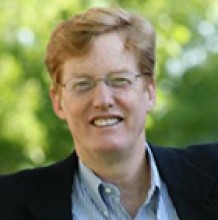
Joshua Landis is Director of the Center for Middle East Studies and Professor at the University of Oklahoma’s College of International Studies. He writes “Syria Comment,” a daily newsletter on Syrian politics that attracts over 100,000 readers a month. Dr. Landis travels frequently to Washington DC to consult with government agencies and speak at think tanks. Most recently he has spoken at the Woodrow Wilson Institute, Brookings Institute, USIP, Middle East Institute, and Council on Foreign Relations. He is a frequent analyst on TV and radio, most recently he has appeared on PBS News Hour, The Charlie Rose Show, al-Jazeera, Frontline, NPR and BBC radio. He is frequently published in such journals as Foreign Policy, & Middle East Policy. His most recent publications include: “Why Syria is the Gordian knot of Obama's anti-ISIL campaign”, Al Jazeera America, Sept 15, 2014; “Why Asad Is Likely to Survive to 2013” Middle East Policy 19:1 Spring 2012; and “Stay Out of Syria” June 5, 2012, Foreign Policy. He has won the best teacher prize at his university; helped raised over one million dollars for a new chair in Iranian studies, and helped bring the government funded Arabic Flagship Program to OU. Three Fulbright grants, the SSRC and other awards have helped support his research.
Robert M. Gates Chair in Intelligence and National Security, Texas A&M University

Christopher Layne is University Distinguished Professor of International Affairs and Robert M. Gates Chair in National Security at the Bush School of Government and Public Service at Texas A&M University. His fields of interest are international relations theory, great power politics, US foreign policy, and grand strategy. Professor Layne has written two books: The Peace of Illusions: American Grand Strategy from 1940 to the Present and (with Bradley A. Thayer) American Empire: A Debate. His current book project, After the Fall: International Politics, U.S. Grand Strategy, and the End of the Pax Americana, is under contract with Yale University Press. Additionally, he has contributed extensively to the debates about international relations theory and American foreign policy in such scholarly and policy journals as International Security, International Studies Quarterly, International History Review, Security Studies, International Politics, Review of International Studies, Journal of Strategic Studies, The National Interest, Foreign Policy, The Washington Quarterly, World Policy Journal, and Orbis. Professor Layne has been a frequent contributor to The Atlantic, The New Republic, The Nation, Financial Times, New York Times, Los Angeles Times, Washington Post, and The Australian. He is a member of the Council on Foreign Relations and is a member of the Editorial Board of Security Studies. In May/June 2014, he was a visiting fellow at the Norwegian Nobel Institute in Oslo.
Doctoral Prize Fellow, Loughborough University London

Dr. Ronan Lee is an Irish-Australian Doctoral Prize Fellow at Loughborough University London’s Institute for Media and Creative Industries where his research focuses on the Rohingya, genocide, hate speech, migration, and Asian politics. Ronan’s book Myanmar’s Rohingya Genocide: Identity, History and Hate Speech was published by Bloomsbury in 2021 and he was awarded the 2021 Early Career Emerging Scholar Prize by the International Association of Genocide Scholars. Ronan has a professional background in politics, media, and public policy. He was formerly a Queensland State Member of Parliament (2001-2009) and served on the frontbench as a Parliamentary Secretary (2006-2008) in portfolios including Justice, Main Roads and Local Government. He has also worked as a senior government advisor, and as an election strategist and campaign manager.
Deputy Director, Integrated Development, Bill and Melinda Gates Foundation, Lead, Global Regulatory Systems Initiatives, Bill & Melinda Gates Foundation

Dr. Murray Lumpkin has served as the Deputy Director of Integrated Development and Lead for Global Regulatory Systems Initiatives at the Bill and Melinda Gates Foundation since January 2014. These initiatives are focused on working with partners such as the World Health Organization, regulatory regionalization initiatives, and national regulatory authorities to make more efficient and effective (without sacrificing product quality, efficacy, or safety) the regulatory processes through which products must pass in order to be developed, legally marketed, and overseen appropriately after marketing authorization in low- and middle-income countries. Prior to his appointment at the Gates Foundation, he was at the US FDA for 24 years, as Director of the Anti-infective Drugs Division, then Deputy Center Director at CDER, and finally for 11 years as Deputy Commissioner of US FDA for International Programs.
Founder & Director, Dialogue Advisory Group, Dr. of Social and Behavioral Sciences, University of Amsterdam

Ram Manikkalingam founded and directs the Dialogue Advisory Group (DAG), and teaches politics at the University of Amsterdam. He has extensive experience working on mediation and diplomacy at senior levels in government, civil society and with international organizations. He advised then President Kumaratunga on the ceasefire and reconstruction in peace talks with the Tamil Tigers. He led the Rockefeller Foundation’s work on International Security, where he supported programs to end the recruitment of child soldiers, ban anti-personnel mines and monitor the work of the UN Security Council. At DAG, he led teams that disarmed the Basque separatist armed group ETA, and the Irish Republican dissident armed group INLA, and worked on several efforts to pursue political dialogues in difficult conflict situations. Manikkalingam recently published Tamil Tigers: Dialogue, Terrorism and Nationalism, an eyewitness account and expert exploration of the bloody civil war that engulfed the island of Sri Lanka for nearly three decades.
Lecturer in Public Policy, Harvard Kennedy School

Zoe Marks is a Lecturer in Public Policy at the Harvard Kennedy School. Her research and teaching interests focus on the intersections of conflict and political violence; race, gender and inequality; peacebuilding; and African politics. Her current book project examines the internal dynamics of rebellion in Sierra Leone to understand how and why rebel groups can sustain a viable threat to the state without widespread support. Professor Marks is leading a separate project that examines how wartime experiences shape individual wellbeing and community reintegration after war. In addition to her research on peace and conflict, Professor Marks is committed to creating space for conversations about ethical research praxis and making academia more inclusive. She has convened workshops related to decolonizing the academy and recently edited a related special issue of the journal Critical African Studies with colleagues at the University of Cape Town. Her work has been supported by the UK Economic and Social Research Council, UK Department for International Development, British Academy, Carnegie Trust, US Fulbright Program, and Oxford Beit Fund. Her research has been published in leading journals in the field, including African Affairs, Political Geography, and Civil Wars, and in peer-reviewed books and edited volumes from Oxford University and Palgrave press. Her dissertation received the Winchester Prize for the best dissertation in Politics at the University of Oxford and was runner-up for the biannual Audrey Richards Prize from the African Studies Association of the UK. She is on the editorial board for the journals Civil Wars and Critical African Studies, and serves on the editorial committee of Journal of Peace Research. Prior to joining the Kennedy School, she was a Chancellor’s Fellow and Lecturer (tenured) at the University of Edinburgh, where she directed the master’s program in African Studies and was Director of the University's Global Development Academy. She has previously worked for UN and non-governmental organizations in Ethiopia, France, Sierra Leone, South Africa, the UK, and the US.
Associate Professor, London School of Economics & Political Science

Omar Shahabudin McDoom is a comparative political scientist and Associate Professor in the Department of Government at the London School of Economics and Political Science. His research interests lie in peace and security. He specializes in the study of conflicts and violence framed along ethnic and religious boundaries, and in strategies that promote co-existence and cooperation between social groups in plural societies. He has field expertise in sub-Saharan Africa — primarily Rwanda, Burundi, the Democratic Republic of the Congo, and Uganda — and in South-East Asia, notably the Philippines. Dr. McDoom’s work has been published in International Security, the Journal of Peace Research, and the Journal of Conflict Resolution. He has held research fellowships at Harvard and Oxford universities. His professional experience includes work as a Policy Officer for the World Bank, as a Legal Officer for the Government of Guyana, and on electoral missions for the OSCE and UN. He is the author of Path to Genocide in Rwanda: Security, Opportunity, and Authority in an Ethnocratic State (Cambridge University Press, 2021).
Senior Research Scholar, Princeton University
Sophie Meunier is Senior Research Scholar at the Princeton School of Public and International Affairs, Princeton University. She is Director of the Program in Contemporary European Politics and Society (from July 2022) and Co-Director of the EU Program at Princeton. She is the author of Trading Voices: The European Union in International Commercial Negotiations (Princeton University Press, 2005) and The French Challenge: Adapting to Globalization (Brookings Institution Press, 2001), winner of the 2002 France-Ameriques book award. She is also co-editor of several books on Europe and globalization, most recently Developments in French Politics 6 (Palgrave MacMillan 2020) and Speaking with a Single Voice: The EU as an Effective Actor in Global Governance? (Routledge, 2015). Meunier is Vice-Chair of the European Union Studies Association (2021-2023). Her current work deals with the politics of investment screening mechanisms and the political challenges posed by Chinese direct investment in the European Union, including as part of the PRISM project and the Beauty Contests grant. She was made Chevalier des Palmes Academiques by the French Government.
Professor of Inter-societal History, Walsh School of Foreign Service, Georgetown University
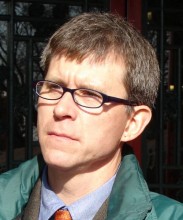
James Millward is Professor of Inter-societal History at the Walsh School of Foreign Service, Georgetown University, teaching Chinese, Central Asian and world history. He also teaches as invited professor in the Máster Oficial en Estudios de Asia Oriental at the University of Granada, Spain. His specialties include Qing empire; the silk road; Eurasian lutes and music in history; and historical and contemporary Xinjiang. He follows and comments on current issues regarding the Uyghurs and PRC ethnicity policy. Millward has served on the boards of the Association for Asian Studies (China and Inner Asia Council) and the Central Eurasian Studies Society, and was president of the Central Eurasian Studies Society in 2010. He edits the ''Silk Roads'' series for University of Chicago Press. His publications include The Silk Road: A Very Short Introduction (2013), Eurasian Crossroads: a History of Xinjiang (2007), New Qing Imperial History: the Making of Inner Asian Empire at Qing Chengde (2004), and Beyond the Pass: Economy, Ethnicity and Empire in Qing Central Asia (1998). His most recent album, recorded with the band By & By, is Songs for this Old Heart. His articles and op-eds on contemporary China appear in The New York Times, The Washington Post, The Guardian, The Global Times, The Los Angeles Review of Books, The New York Review of Books and other media.
Professor of Political Science, Tufts University
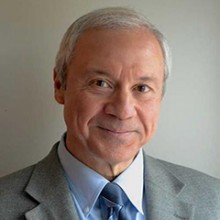
Malik Mufti is a professor of political science at Tufts University. He teaches courses on international relations and the politics of the Middle East, and is a recipient of the Lillian and Joseph Leibner Award for Distinguished Teaching and Advising. He is the author of Sovereign Creations: Pan-Arabism and Political Order in Syria and Iraq (1996), Daring and Caution in Turkish Strategic Culture: Republic at Sea (2009), and The Art of Jihad: Realism in Islamic Political Thought (2019). His recent journal articles include "Democratizing Potential of the 'Arab Spring': Some Early Observations" (Government and Opposition, July 2015); "Turkey at 100: Between Constancy and Change" (International Relations, June 2023); and "Nietzsche, the Muslim Falāsifa, and Leo Strauss's Avicennan Turn" (Review of Politics, Spring 2024). His current project is on the encounter between Islam and America.
Adjunct Associate Professor, Columbia University
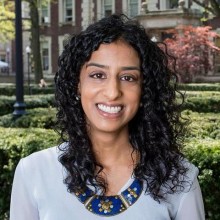
Dipali Mukhopadhyay is an Adjunct Associate Professor of International and Public Affairs at Columbia University, where she is also a faculty affiliate of the Saltzman Institute of War and Peace Studies. She is the author of Good Rebel Governance: Revolutionary Politics and Western Intervention in Syria (Cambridge University Press, forthcoming) with Kimberly Howe and Warlords, Strongman Governors and State Building in Afghanistan (Cambridge University Press, 2014). Her scholarly publications also include articles in Conflict, Security and Development, International Negotiation, Perspectives on Politics, as well as a series of book chapters in edited volumes. Her policy-oriented writing has been published by the Carnegie Endowment for International Peace, Foreign Policy, Lawfare, the U.S. Institute of Peace, and The Washington Post. Mukhopadhyay’s research has been funded by the Carnegie Corporation, the Eisenhower Institute, the Smith Richardson Foundation, the U.S. Institute of Peace, Harvard Law School, the U.S. Agency for International Development, and the U.S. Department of Education. She is Vice President of the American Institute of Afghan Studies and a term member of the Council on Foreign Relations.
Executive Professor, George H.W. Bush School of Government, Texas A&M University
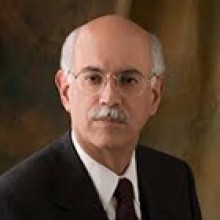
Andrew Natsios has served as Executive Professor at the George H.W. Bush School of Government at Texas A&M University since 2012, and since 2013 been Director of the Scowcroft Institute of International Affairs. He was Distinguished Professor in the Practice of Diplomacy at the Walsh School of Foreign Service at Georgetown University from 2006-2012 and former Administrator of the US Agency for International Development (USAID) from 2001-2006, U.S. Presidential Envoy to Sudan from 2006-2007, and served in the US Army Reserves for 22 years retiring as a Lt. Col. Natsios served as Vice President of World Vision, the international faith-based NGO from 1993-1998. He is the author of South Sudan and Darfur: What Everyone Needs to Know; U.S. Foreign Policy and the Four Horsemen of the Apocalypse; The Great North Korean Famine; co-editor (with Andrew H. Card, Jr.) of Transforming Our World: President George H.W. Bush and American Foreign Policy; 28 journal articles and has contributed to 13 other books.
Kenan Sahin Dean of the School of Humanities, Arts, & Social Sciences, MIT, Professor of Political Science, MIT
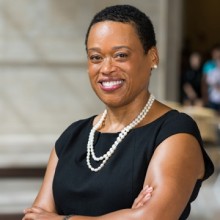
Melissa Nobles is the Kenan Sahin Dean of the School of Humanities, Arts, and Social Sciences, and Professor of Political Science at the Massachusetts Institute of Technology. Nobles’ research and teaching have focused on the comparative study of racial and ethnic politics, and issues of retrospective justice. Her current research centers on constructing a database of racial killings in the American South, 1930–1954. Working closely as a faculty collaborator and advisory boardmember of Northeastern Law School's Civil Rights and Restorative Justice law clinic, Nobles has conducted extensive archival research, unearthing understudied and more often, unknown deaths and contributing to legal investigations. She is the author of two books, Shades of Citizenship: Race and the Census in Modern Politics (Stanford University Press, 2000), The Politics of Official Apologies (Cambridge University Press, 2008), and co-editor with Jun-Hyeok Kwak of Inherited Responsibility and Historical Reconciliation in East Asia (Routledge Press, 2013). Her scholarship has also appeared in the Annual Review of Political Science, Daedalus, American Journal of Public Health, and several edited books. Nobles has held fellowships at Boston University's Institute for Race and Social Division and Harvard University's Radcliffe Center for Advanced Study. She has served on the editorial boards of Polity, American Political Science Review, and Perspectives on Politics journals. Nobles has also been involved in faculty governance at MIT and beyond, serving as the Associate Chair of the MIT Faculty from 2007–2009 and Vice-President of the American Political Science Association, 2013-14.
Director, Migration, Remittances & Development Program, Inter-American Dialogue
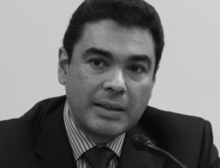
Manuel Orozco is the Director of the Migration, Remittances, and Development Program at the Inter-American Dialogue. He also serves as a Senior Fellow at Harvard University’s Center for International Development and as a Senior Adviser with the International Fund for Agricultural Development. Orozco has conducted extensive research, policy analysis and advocacy on issues relating to global flows of remittances as well as migration and development worldwide. He is Chair of Central America and the Caribbean at the US Foreign Service Institute and Senior Researcher at the Institute for the Study of International Migration at Georgetown University. Orozco frequently testifies before Congress and has spoken before the United Nations. Orozco has published widely on remittances, Latin America, globalization, democracy, migration, conflict in war torn societies, and minority politics. His books include International Norms and Mobilization for Democracy (2002), Remittances: Global Opportunities for International Person-to-Person Money Transfers (2005), América Latina y el Caribe: Desarrollo, migración y remesas (2012) and Migrant Remittances and Development in the Global Economy (2013).
Director, Korea Project, Harvard Kennedy School
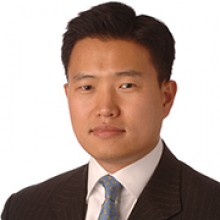
Dr. John Park is a senior Asia analyst at the Harvard Kennedy School’s Belfer Center, where he serves as Director of the Korea Project. His core research projects focus on the political economy of the Korean Peninsula, nuclear deterrence, economic statecraft, North Korean cyber operations, and Northeast Asian alliances. At Harvard University, he is a Faculty Member of the Committee on Regional Studies East Asia and a Faculty Affiliate with the Project on Managing the Atom. Dr. Park was the 2012-13 Stanton Nuclear Security Faculty Fellow at MIT’s Security Studies Program. He also directed Northeast Asia Track 1.5 dialogues at the U.S. Institute of Peace in Washington, D.C. He advises Northeast Asia policy-focused officials in the U.S. government. Earlier, Dr. Park worked at Goldman Sachs and The Boston Consulting Group. Dr. Park’s key publications include: “Where Do Divergent U.S. and Chinese Approaches to Dealing with North Korea Lead?” in The China Questions II: Critical Insights into U.S.-China Relations (Harvard University Press, August 2022); “Micro Deterrence Signaling: Policy Innovation During the 2017 Korean Missile Crisis,” (Korea Project Report, Harvard Kennedy School, April 2022 – co-authored with General Vincent K. Brooks); “Stopping North Korea, Inc.: Sanctions Effectiveness and Unintended Consequences,” (MIT Security Studies Program, 2016 – co-authored with Dr. Jim Walsh); “The Key to the North Korean Targeted Sanctions Puzzle,” The Washington Quarterly (Fall 2014); “Assessing the Role of Security Assurances in Dealing with North Korea” in Security Assurances and Nuclear Nonproliferation (Stanford University Press, 2012); “North Korea, Inc.: Gaining Insights into North Korean Regime Stability from Recent Commercial Activities” (USIP Working Paper, May 2009); and “North Korea’s Nuclear Policy Behavior: Deterrence and Leverage,” in The Long Shadow: Nuclear Weapons and Security in 21st Century Asia (Stanford University Press, 2008). Dr. Park’s current research examines the North Korean regime’s accumulated learning in evading sanctions via cyber operations. He has testified on North Korea before the Senate Banking Committee, House Financial Services Committee, and House Foreign Affairs Committee. Dr. Park received his Ph.D. from the University of Cambridge. He completed his predoctoral and postdoctoral training at the Harvard Kennedy School.
Resident Scholar, American Enterprise Institute
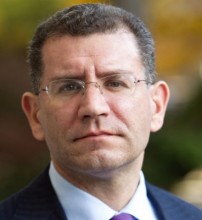
Kenneth Pollack is a resident scholar at the American Enterprise Institute (AEI), where he works on Middle Eastern political-military affairs. Dr. Pollack began his career as a Persian Gulf military analyst at the CIA. He then served twice on the National Security Council, first as director for Near East and South Asian affairs and then as director for Persian Gulf affairs. Before joining AEI, Dr. Pollack was a senior fellow of the Brookings Institution for 15 years, where he also served as the director of research and then the director of the Brookings Center for Middle East Policy. Dr. Pollack is the author of 10 books, including most recently, Armies of Sand: The Past, Present, and Future of Arab Military Effectiveness.
Ford International Professor of Political Science, MIT

Barry R. Posen is Ford International Professor of Political Science at MIT and serves on the Executive Committee of Seminar XXI. He has written three books, Restraint-A New Foundation for U.S. Grand Strategy; Inadvertent Escalation: Conventional War and Nuclear Risks; and The Sources of Military Doctrine. The latter won two awards: The American Political Science Association's Woodrow Wilson Foundation Book Award, and Ohio State University's Edward J. Furniss Jr. Book Award. He is also the author of numerous articles, including "The Case for Restraint," The American Interest, (November/December 2007) and "Command of the Commons: The Military Foundation of U.S. Hegemony," International Security, (Summer, 2003.) He has been a Council on Foreign Relations International Affairs Fellow; Rockefeller Foundation International Affairs Fellow; Guest Scholar at the Center for Strategic and International Studies; Woodrow Wilson Center Fellow; Smithsonian Institution; Transatlantic Fellow of the German Marshall Fund of the United States, and most recently Visiting Fellow at the John Sloan Dickey Center at Dartmouth College.
Senior Fellow & Director, Reimagining US Grand Strategy Program, Stimson Center
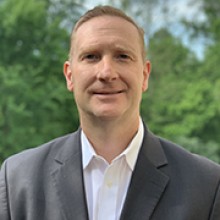
Christopher Preble is the Senior Fellow and Director of the Reimagining US Grand Strategy program at the Stimson Center. Prior to joining the Stimson Center, he served as Co-Director of the Atlantic Council’s New American Engagement Initiative. His work focuses on the history of US foreign policy, contemporary US grand strategy and military force posture, alliance relations, and the intersection of trade and national security. Preble is the author of four books, including Peace, War, and Liberty: Understanding U.S. Foreign Policy (Cato Institute, 2019); and The Power Problem: How American Military Dominance Makes Us Less Safe, Less Prosperous, and Less Free (Cornell University Press, 2009). His work has appeared in major publications including the New York Times, the Washington Post, the Financial Times, Survival, Foreign Policy, and Foreign Affairs. In addition to his work at the Stimson Center, Preble co-hosts the “Net Assessment” podcast. Preble was vice president for defense and foreign policy studies at the Cato Institute from 2011 to 2020, and director of foreign policy studies from 2003 to 2011. Preble was a commissioned officer in the US Navy, and served aboard the USS Ticonderoga (CG-47) from 1990 to 1993.
Independent Consultant on Eastern and Central African Affairs, Former Director of the French Center for Ethiopian Studies, Addis-Ababa
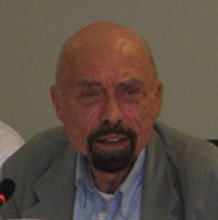
Dr. Gerard Prunier is an Independent Consultant on Eastern and Central African affairs and former Director of the French Center for Ethiopian Studies in Addis-Ababa. One of the foremost Africanists in the world today, Prunier is the author of more than two hundred scholarly articles and a dozen books in four languages, including The Rwanda Crisis: History of a Genocide, Darfur: A 21st Century Genocide—which was hailed by Foreign Affairs as “the best available account of the Darfur crisis”—and Africa’s World War: Congo, the Rwandan Genocide, and the Making of Continental Catastrophe, which was awarded a special honorable mention in the Council on Foreign Relations’ 2010 Arthur Ross Book Award competition for the best book published in international relations, the first Africa-focused book ever so honored. Until he reached the mandatory retirement age, Prunier served as a senior researcher at the Centre National de la Recherche Scientifique, France’s largest government research organization, and a professor at the University of Paris. From 2001-2006, he was seconded to the French Ministry of Foreign Affairs and served as the director of the Centre Français des Études Éthiopiennes in Addis Ababa. Throughout his career, Prunier has not only served as an advisor to the French government, but also consulted for the US State and Defense Departments, various European and African governments, as well as private companies. Prunier also serves on the academic council of the Association for the Study of the Middle East and Africa and on the editorial board of the Journal of the Middle East and Africa.
Executive Director, The AI Institute, Chairman & Founder, Boston Dynamics

Marc Raibert is Executive Director of The AI Institute, a new Hyundai-owned research lab devoted to advancing both the intelligence of robots and their physical skills. He is also Chairman of Boston Dynamics, which he founded in 1992. Prior to Boston Dynamics, Raibert was a professor of computer science at CMU and MIT, where he created the Leg Laboratory, a lab that helped establish the scientific basis for highly dynamic robots. Raibert is a Founding Fellow of the Association for the Advancement of Artificial Intelligence (AAAI) and a member of the National Academy of Engineering. He was named Pioneer in Robotics in 2022 by the Institute of Electrical and Electronics Engineers (IEEE) and received the 2022 Engelberger Award in Technology, the world's most prestigious robotics honor. Two of Raibert's robots, the One-legged Hopper and BigDog, were inducted into the Robot Hall of Fame.
Professor of Political Science, Boston College , Research Associate, Fairbanks Center for Chinese Studies, Harvard University
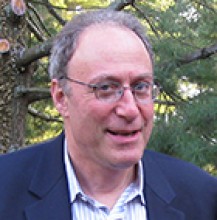
Robert Ross is Professor of Political Science at Boston College and Associate of John King Fairbank Center for Chinese Studies at Harvard University. He has taught at Columbia University and at the University of Washington and in 1989 was a Guest Scholar at the Brookings Institution in Washington, D.C. In 1994-1995 he was Fulbright Professor at the Chinese Foreign Affairs College, in 2003 he was a Visiting Senior Fellow at the Institute of International Strategic Studies, Qinghua University, Beijing, and in 2014 was Visiting Scholar, School of International Relations, Peking University. In 2009 he was Visiting Scholar, Institute for Strategy, Royal Danish Defence College. From 2009-2014 he has been Adjunct Professor, Institute for Defence Studies, Norwegian Defence University College. Professor Ross's research focuses on Chinese security policy and defense policy, East Asian security, and U.S.-China relations. His recent publications include Chinese Security Policy: Structure, Power, and Politics, China’s Ascent: Power, Security, and the Future of International Politics, and New Directions in the Study of Chinese Foreign Policy. His other major works include Normalization of U.S.-China Relations: An International History; Great Wall and Empty Fortress: China’s Search for Security, Negotiating Cooperation: U.S.-China Relations, 1969-1989, and The Indochina Tangle: China's Vietnam Policy, 1975-1979. Professor Ross has testified before various Senate and House committees and the Defense Policy Board Advisory Committee, he advises U.S. government agencies, and he serves on the Academic Advisory Group, U.S.-China Working Group, United States Congress. He is a member of the Council on Foreign Relations and the National Committee for U.S.-China Relations. Professor Ross is also a member of the executive committee of the John King Fairbank Center for Chinese Studies, Harvard University. He has served as Senior Advisor of the Security Studies Program, Massachusetts Institute of Technology, and Senior Advisor to the Institute for American Studies, Shanghai. He is a founding member and former board member of the United States Committee of the Council for Security Cooperation in the Asia-Pacific and former co-chair of the Committee's task force on Confidence Strategic Building Measures. He is on the editorial board of Security Studies, Journal of Contemporary China, Journal of Cold War Studies, Issues and Studies, Asia Policy, Journal of Chinese Political Science, the Security Studies book series of Shanghai People’s Press, and the Grand Strategy book series of Peking University Press.
Senior Fellow, Center for Global Development, Co-Director, CGD’s Education Program
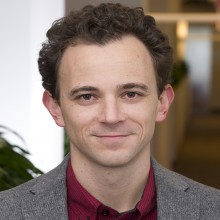
Justin Sandefur is a Senior Fellow at the Center for Global Development and Co-Director of CGD’s Education Program. His research spans the economics of education and health, among other fields – including large-scale field experiments on topics such as outsourcing public schools in Liberia, scaling up successful education reforms with the Kenyan government, nationwide democratic deliberation on the use of natural resource revenues in Tanzania, and an evaluation of GAVI's impact on vaccination rates in middle-income countries. Prior to joining CGD, he was a resident adviser to the Tanzanian government in Dar es Salaam and a research officer at Oxford's Centre for the Study of African Economies. He has taught as a visiting professor at Georgetown's Walsh School of Foreign Service, served as a consultant for the World Bank and various United Nations agencies, and as a member of the Millennium Challenge Corporation's economic advisory council. He holds a doctorate in economics from Oxford University.
Jean Monnet Professor of European Integration, Boston University, Founding Director, Boston University Center for the Study of Europe
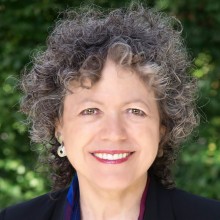
Vivien A. Schmidt is Jean Monnet Professor of European Integration, Professor Emerita of International Relations and Political Science, and Founding Director of the Center for the Study of Europe, all at Boston University, where she taught from 1998 to 2023. Prof. Schmidt is currently Visiting Fellow in the Robert Schuman Center at the European University Institute in Florence, Honorary Professor at LUISS Guido Carli University in Rome, and Senior Fellow at the Zoe Institute in Cologne and Brussels. She received her B.A. from Bryn Mawr College, her Masters and PhD from the University of Chicago, and attended Sciences Po in Paris. Prof. Schmidt’s research focuses on European political economy, institutions, democracy, and political theory—in particular on the importance of ideas and discourse in political analysis (discursive institutionalism). Her recent books include Europe’s Crisis of Legitimacy (2020—recipient of the Best Book Award of the American Political Science Association’s Ideas, Knowledge, Politics section and Honorable Mention from the European Union Studies Association); Resilient Liberalism in Europe’s Political Economy (co-edited, 2013), and Democracy in Europe (2006— named in 2015 by the European Parliament as one of the ‘100 Books on Europe to Remember’). Her awards and fellowships include a Guggenheim Fellowship, the Mentoring Award of the Women in International Political Economy section of the International Studies Association, the Belgian Franqui Interuniversity Chair for foreign scholars, a Rockefeller Bellagio Center Residency, a Jean Monnet Chair awarded by the European Union Commission, and Fulbright Fellowships to France and the UK. Her honors include being decorated as a Chevalier in the French Legion of Honor, inducted into the American Academy of Arts and Sciences, and granted an honorary doctorate from the Free University of Brussels (ULB). Prof. Schmidt has also been a visiting professor or visiting scholar at the Free University of Berlin, the Free University of Brussels, Sciences Po in Paris, the European University Institute, and Oxford University, among others. She is past head of the European Union Studies Association (EUSA) and sits on a number of advisory boards, including, the Vienna Institute for Peace, the Foundation for European Progressive Studies (Brussels), and previously the Wissenschaft Zentrum Berlin. She has published thirteen books, over 300 scholarly journal articles or chapters in books, and numerous policy briefs and comments, most recently on the Eurozone crisis. Her current work, supported by a Guggenheim fellowship, focuses on the ‘rhetoric of discontent,’ through a transatlantic investigation of the populist revolt against globalization and Europeanization.
Strategist & Senior Fellow, New America

Peter Warren Singer is strategist and senior fellow at New America. He has been named by the Smithsonian as one of the nation’s 100 leading innovators, by Defense News as one of the 100 most influential people in defense issues, by Foreign Policy to their Top 100 Global Thinkers List, and as an official “Mad Scientist” for the U.S. Army’s Training and Doctrine Command. Singer’s award winning books include Corporate Warriors: The Rise of the Privatized Military Industry; Children at War; Wired for War: The Robotics Revolution and Conflict in the 21st Century; Cybersecurity and Cyberwar: What Everyone Needs to Know; and Ghost Fleet: A Novel of the Next World War, a technothriller crossed with nonfiction research, which has been endorsed by people who range from the Chairman of the Joint Chiefs to the co-inventor of the Internet to the writer of HBO Game of Thrones. His latest book is LikeWar, which explores how social media has changed war and politics, and war and politics has changed social media. It was named an Amazon book of the year, a NYTimes “new and notable,” and reviewed by Booklist as “LikeWar should be required reading for everyone living in a democracy and all who aspire to.” His past work include serving at the Office of the Secretary of Defense, Harvard University, and as the founding director of the Center for 21st Century Security and Intelligence at Brookings, where he was the youngest person named senior fellow in its 100 year history.
Director, World Fellows Program, Yale University, Senior Fellow, Jackson Institute for Global Affairs

Emma Sky is director of Yale's Maurice R. Greenberg World Fellows Program and a Senior Fellow at the Jackson Institute, where she teaches Middle East politics. She is the author of the highly acclaimed The Unravelling: High Hopes and Missed Opportunities in Iraq (2015) and In a Time of Monsters: Travelling in a Middle East in Revolt (2019). Sky served as advisor to the Commanding General of US Forces in Iraq from 2007-2010; as advisor to the Commander of NATO’s International Security Assistance Force in Afghanistan in 2006; as advisor to the US Security Co-ordinator for the Middle East Peace Process in 2005; and as Governorate Co-ordinator of Kirkuk for the Coalition Provisional Authority, 2003-2004. Prior to that, Sky worked in the Palestinian territories for a decade, managing projects to develop Palestinian institutions; and to promote co-existence between Israelis and Palestinians. In addition, Emma has provided technical assistance on poverty elimination, human rights, justice public administration reform, security sector reform, and conflict resolution in the Middle East, South Asia and Africa. Sky was educated at Oxford (UK), Alexandria (Egypt), Hebrew University of Jerusalem (Israel) and Liverpool (UK). Sky is an Officer of the Order of the British Empire.
Professor of Political Science, University of Chicago, Nonresident Scholar, South Asia Program, Carnegie Endowment for International Peace
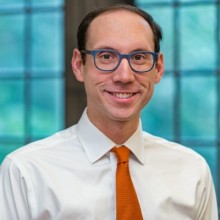
Paul Staniland is Professor of Political Science at the University of Chicago and a nonresident scholar in the South Asia Program at the Carnegie Endowment for International Peace. He is also the faculty chair of the Committee on International Relations MA program. His research focuses on political violence and international security in South Asia. His first book, Networks of Rebellion: Explaining Insurgent Cohesion and Collapse, was published by Cornell University Press in 2014. His second book, Ordering Violence: Explaining Armed Group-State Relations from Conflict to Cooperation, was published by Cornell in 2021. Both won multiple awards. Staniland is in the early stages of a book project on the consequences of major power competition for the internal politics of “swing” states in South and Southeast Asia since 1945.
Martin J. Gross Fellow, Program on Arab Politics, Washington Institute

Andrew Tabler is the Martin J. Gross Fellow in the Program on Arab Politics at The Washington Institute, where he focuses on Syria and U.S. policy in the Levant. Mr. Tabler achieved unparalleled long-term access to Bashar al-Assad's Syria. During fourteen years of residence in the Middle East, Mr. Tabler served as co-founder and editor-in-chief of Syria Today, Syria's first private-sector English-language magazine; as a consultant on U.S.-Syria relations for the International Crisis Group (2008); and as a fellow of the Institute of Current World Affairs (2005-2007), writing on Syrian, Lebanese, and Middle Eastern affairs. Following his graduate work in Cairo, Egypt, Mr. Tabler held editorships with the Middle East Times and Cairo Times, where he focused on Arab-Israeli peace negotiations, before becoming senior editor and director of editorial for the Oxford Business Group (OBG). In 2001, Mr. Tabler personally oversaw with OBG the first comprehensive English-language report on Syria in more than thirty years. Mr. Tabler has lived, worked and studied extensively in Egypt, Israel, Jordan, Lebanon, Syria, Tunisia, and Turkey. Mr. Tabler has interviewed Syrian first lady Asma al-Assad, the late Israeli president Shimon Peres, the late Palestinian president Yasser Arafat, slain Lebanese prime minister Rafiq Hariri, and former Lebanese prime ministers Fouad Siniora and Saad Hariri. His articles and opinion pieces on Middle East affairs and U.S. foreign policy have appeared in the New York Times, the New York Times Magazine, the International Herald Tribune, Newsweek, Foreign Policy, and Foreign Affairs. He has also appeared in interviews with CNN, NBC, CBS, PBS, NPR, and the BBC. Mr. Tabler is author of "Syria's Collapse and How Washington Can Stop It" (Foreign Affairs, July-August 2013) and the 2011 book In the Lion's Den: An Eyewitness Account of Washington's Battle with Syria.
Senior Fellow for Middle East studies, Council on Foreign Relations

Ray Takeyh is Hasib J. Sabbagh senior fellow for Middle East studies at the Council on Foreign Relations (CFR). His areas of specialization are Iran, U.S. foreign policy, and the modern Middle East. Takeyh is, most recently, the author of The Last Shah: America, Iran and the Fall of the Pahlavi Dynasty. He is the coauthor of The Pragmatic Superpower: Winning the Cold War in the Middle East and Revolution & Aftermath: Forging a New Strategy Toward Iran. He is author of three previous books, Guardians of the Revolution: Iran and the World in the Age of the Ayatollahs, Hidden Iran: Paradox and Power in the Islamic Republic, and The Origins of the Eisenhower Doctrine: The US, Britain and Nasser’s Egypt, 1952-1957. He has written more than three hundred articles and opinion pieces in many news outlets including Wall Street Journal, New York Times, and Foreign Affairs. Takeyh has testified more than twenty times before various Congressional committees. Prior to joining CFR, he has served as a senior advisor on Iran at the State Department and was a fellow at the Yale University, The Washington Institute of Near East Policy, and the Middle East Center at University of California, Berkeley. Takeyh holds a doctorate in modern history from Oxford University.
Associate Professor of Political Science, MIT

Caitlin Talmadge is Associate Professor of Political Science at the Massachusetts Institute of Technology. She also serves as a Senior Non-Resident Fellow in Foreign Policy at the Brookings Institution; a member of the Defense Policy Board at the U.S. Department of Defense; and a series editor for Cornell Studies in Security Affairs at Cornell University Press. Professor Talmadge’s research and teaching focus on nuclear deterrence and escalation, U.S. military operations and strategy, and security issues in Asia and the Persian Gulf. She is author of The Dictator’s Army: Battlefield Effectiveness in Authoritarian Regimes (Cornell, 2015), which Foreign Affairs named the Best Book in Security for 2016 and which won the 2017 Best Book Award from the International Security Studies Section of the International Studies Association. In addition, she is co-author of U.S. Defense Politics: The Origins of Security Policy (fourth edition, Routledge, 2021), and she is currently writing a book with Professor Brendan Green on nuclear escalation risk in the emerging deterrence environment. Dr. Talmadge has published articles in International Security, Security Studies, The Journal of Conflict Resolution, The Journal of Strategic Studies, Foreign Affairs, The Washington Quarterly, The Non-Proliferation Review, The New York Times, The Wall Street Journal, and The Washington Post, among others. She has also testified before the Congressionally mandated U.S.-China Economic and Security Review Commission, and her commentary on current events has appeared in The Financial Times, The New York Times, The Atlantic, The Economist, Newsweek, and other media outlets such as CNN.
Professor of International Politics, The Fletcher School, Tufts University
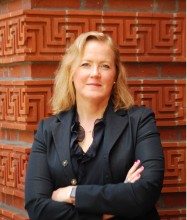
Monica Duffy Toft is Professor of International Politics at The Fletcher School at Tufts University. Previously, Toft was Professor of Strategy for the Naval War College in Newport, Rhode Island, and Professor of Public Policy at the Blavatnik School of Government. She taught at Harvard University’s John F. Kennedy School of Government, where she directed the Initiative on Religion in International Affairs and was the assistant director of the John M. Olin Institute for Strategic Studies. Prior to this, she spent four years in the United States Army as a Russian linguist. Toft’s areas of research include international security, ethnic and religious violence, civil wars and demography. Her most recent books include: Securing the Peace; Political Demography (with Jack Goldstone and Eric Kaufmann); and God’s Century (with Daniel Philpott and Timothy Shah). In addition she has published numerous scholarly articles and editorials on civil wars, territory and nationalism, demography, and religion in global politics. Her article Islamists and Nationalists: Rebel Motivation and Counterinsurgency in Russia's North Caucasus co-authored with Yuri Zhukov was published in the American Political Science Review in May 2015. Her most recent opinion pieces are on religious fundamentalism and women's equality in the Huffington Post and on the importance of identity politics for Iraq's security at Project Syndicate, a column that appeared in 19 publications in five different languages. Toft was also a supernumerary fellow at Brasenose College, University of Oxford; a Global Scholar of the Peace Research Institute Oslo; a member of the Council on Foreign Relations, the Minorities at Risk Advisory Board, and the Political Instability Task Force; and in 2008 the Carnegie Foundation of New York named her a Carnegie Scholar for her research on religion and violence.
University Lecturer, Blavatnik School of Government, Oxford University, Fellow, St. Hilda's College

Maya Tudor is a University Lecturer in Government and Public Policy at the Blavatnik School of Government, Oxford University and a fellow of St Hilda's College. Tudor has worked as a Special Assistant to Chief Economist Joseph Stiglitz at the World Bank, at UNICEF, in the United States Senate, and at the Bangladesh Rural Advancement Committee, recently ranked the world's top NGO. A dual citizen of Germany and the United States, she has lived and worked in Bangladesh, Germany, France, India, Kenya, Pakistan, the Philippines, the United Kingdom and the United States. Tudor's research investigates the origins of stable, democratic and effective states across the developing world, with a particular emphasis upon South Asia. Her recently published book, The Promise of Power (Cambridge University Press, 2013), was based upon her 2010 dissertation, which won the American Political Science Association's Gabriel Almond Prize for the Best Dissertation in Comparative Politics. The book investigates the origins of India and Pakistan's puzzling regime divergence in the aftermath of colonial independence. She is also the author of a number of articles, most recently Explaining Democracy's Origins in Comparative Politics.
Professor of International Relations, Waseda University, Research Affiliate, MIT
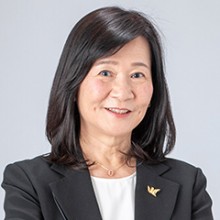
Dr. Chikako Kawakatsu Ueki is Professor of International Relations at the Graduate School of Asia-Pacific Studies (GSAPS) at Waseda University and currently a research affiliate at MIT. She teaches “International Security” and “International Relations and Security in East Asia.” She served as a member of the Prime Minister’s Council on Security and Defense Capabilities in 2009. Her areas of expertise include causes and prevention of war and East Asian international relations with a special focus on U.S.-Japan-China relations. She has written extensively on issues concerning threat perception in a unipolar world, transformation of international relations after the Cold War, and issues relating to security problems in East Asia. At Waseda University, she leads a program on Political Integration at the Global Institute for Asian Regional Integration (GIARI), and research projects on Security Studies at the Institute for Asia-Pacific Studies (WIASP) and at the Organization for Japan-U.S. Studies (WOJUSS). Her works include: “Repairing the Strategic Safety-Net: Security and Interdependence in East Asia” (2006); “Strategy, Military Power and Security — Senryaku, Gunjiryoku, Anzenhosho” in Access Anzenhoshoron (2005); “International Structural Change and U.S.-Japan-China Relations: The Importance of ‘Liberal Deterrence’ Policy, ” International Affairs (2009); and “Nationalism as a Cause of War: The Case of the Crimean War” (1998). Prior to joining GSAPS, Dr. Ueki was Senior Research Fellow and Professor at the National Institute for Defense Studies, which is the main research arm of the Japan Ministry of Defense. During her appointment at NIDS, she was the main author of the China chapters in the NIDS annual publication: East Asian Strategic Review and reports on strategic assessments.
Ford International Professor, MIT
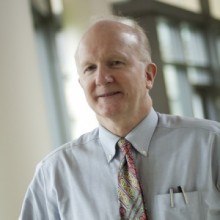
Stephen Van Evera is Ford International Professor in the MIT Political Science Department. He works in several areas of international relations: the causes and prevention of war, US foreign policy, US security policy, US intervention in the Third World, international relations of the Middle East, and international relations theory. He has published books on the causes of war and on social science methodology, and articles on American foreign policy, American defense policy, nationalism and the causes of war, the origins of World War I, and US strategy in the War on Terror. He currently serves as chair of the Tobin Project committee on national security. He is the author of Causes of War: Power and the Roots of Conflict.
Senior Research Associate, Security Studies Program, MIT

Jim Walsh is a Senior Research Associate at the Massachusetts Institute of Technology’s Security Studies Program (SSP). Dr. Walsh’s research and writings focus on international security, and in particular, topics involving nuclear weapons, the Middle East, and East Asia. Dr. Walsh has testified before the United States Senate and House of Representatives on issues of nuclear terrorism, Iran, and North Korea. He is one of a handful of Americans who has traveled to both Iran and North Korea for talks with officials about nuclear issues. His recent publications include, “Laser Enrichment and Proliferation: Assessing Future Risks,” "Testimony before Committee on Oversight and Government Reform, Subcommittee on National Security, U.S. House of Representatives" (June 6, 2018), “Stopping North Korea, Inc.: Sanctions Effectiveness and Unintended Consequences” and “Rivals, Adversaries, and Partners: Iran and Iraq in the Middle East” in Iran and Its Neighbors. He is the international security contributor to the NPR program “Here and Now,” and his comments and analysis have appeared in the New York Times, the New York Review of Books, Washington Post, Wall Street Journal, ABC, CBS, NBC, Fox, and numerous other national and international media outlets. Before coming to MIT, Dr. Walsh was Executive Director of the Managing the Atom project at Harvard University’s John F. Kennedy School of Government and a visiting scholar at the Center for Global Security Research at Lawrence Livermore National Laboratory. He has taught at both Harvard University and MIT.
Robert and Renee Belfer Professor of International Affairs, Harvard University
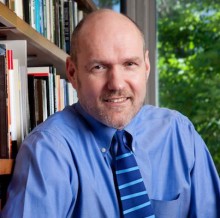
Stephen M. Walt is the Robert and Renee Belfer Professor of International Affairs at Harvard University. He previously taught at Princeton University and the University of Chicago, where he served as Master of the Social Science Collegiate Division and Deputy Dean of Social Sciences. He has been a Resident Associate of the Carnegie Endowment for Peace and a Guest Scholar at the Brookings Institution, and he has also served as a consultant for the Institute of Defense Analyses, the Center for Naval Analyses, and the National Defense University. He presently serves on the editorial boards of Foreign Policy, Security Studies, International Relations, and Journal of Cold War Studies, and he also serves as Co-Editor of the Cornell Studies in Security Affairs, published by Cornell University Press. Additionally, he was elected as a Fellow in the American Academy of Arts and Sciences in May 2005. His book The Israel Lobby and U.S. Foreign Policy (Farrar, Straus & Giroux, 2007, co-authored with John J. Mearsheimer) was a New York Times best seller and has been translated into more than twenty foreign languages. His most recent book is The Hell of Good Intentions: America’s Foreign Policy Elite and the Decline of U.S. Primacy (Farrar, Straus & Giroux, 2018).
Rohr Professor of International Affairs, University of California, San Diego

Barbara F. Walter is the Rohr Professor of International Affairs at the University of California, San Diego. She is the New York Times bestselling author of How Civil Wars Start and How To Stop Them, and other award-winning books on civil wars. Walter is a member of the Council on Foreign Relations, a frequent guest on CNN, MSNBC, NBC, and an active consultant for the World Bank, the United Nations, the Departments of Defense and State, and the January 6th committee. When not doing research, she writes for the Washington Post, the Wall Street Journal, the Los Angeles Times, the New Republic, Time, and Foreign Affairs. In 2012, she founded the blog Political Violence @ a Glance (with Erica Chenoweth) which sometimes beats out the Washington Post's Monkey Cage for Best Blog of the Year. Her real passion, however, is to paint, draw, and do anything involving art.
Co-Founder & Managing Director, Williams Strategy Advisors
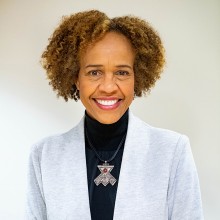
Ambassador Bisa Williams (ret) is co-Founder and Managing Director of Williams Strategy Advisors, LLC (WSA), a problem-solving, business and foreign affairs advisory consulting firm. For the last 2 years, she has also led The Carter Center’s effort as Independent Observer of implementation of the Peace Agreement in Mali. Before forming WSA, Ambassador Williams was a career member of the Foreign Service of the U.S. Department of State. During her 30+ years in the Foreign Service, she served tours in Guinea (Conakry), Panama, Mauritius, France, the US Mission to the UN (NY), Washington, DC, including two years at the National Security Council of The White House, and Niger. As Acting Deputy Assistant Secretary of State for Western Hemisphere Affairs, Ambassador Williams led the US delegation to talks in Havana, Cuba, breaking a seven year hiatus of high level direct discussions. Her accomplishments were recognized in LeoGrande/Kornbluh book Back Channel to Cuba. She was appointed by President Barack Obama in 2010 as Ambassador to Niger where she served for 3 years. Following her tour as Ambassador, she was named Deputy Assistant Secretary of State in the Bureau of African Affairs, supporting US economic policy goals in sub-Saharan Africa and bilateral policy in the West Africa region. Ambassador Williams retired from the Foreign Service in 2015. She speaks French, Spanish, and Portuguese and is the recipient of numerous Superior and Meritorious Honor Awards from the Department of State. She holds a Master of Science degree in National Security Strategy from the National War College of the National Defense University in Washington, DC and a Master of Arts degree in Comparative Literature from the University of California, Los Angeles.
Associate Professor, Fletcher School, Tufts University

Josephine Wolff is Associate Professor of cybersecurity policy at The Fletcher School at Tufts University. Her research interests include liability for cybersecurity incidents, international Internet governance, cyber-insurance, and the economics of information security. She is the author of You'll See This Message When It Is Too Late: The Legal and Economic Aftermath of Cybersecurity Breaches and Cyberinsurance Policy: Rethinking Risk in an Age of Ransomware, Computer Fraud, Data Breaches, and Cyberattacks. Her writing on cybersecurity has also appeared in Slate, The New York Times, The Washington Post, The Atlantic, and Wired. Prior to joining Fletcher, she was an assistant professor of public policy at the Rochester Institute of Technology and a fellow at the New America Cybersecurity Initiative and Harvard's Berkman Klein Center for Internet & Society.
Director of Asian Studies, The Catholic University of America, Associate Professor of Politics, The Catholic University of America
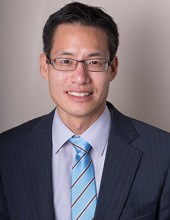
Andrew Yeo is Associate Professor of Politics and Director of Asian Studies at The Catholic University of America in Washington, D.C. He is the author of Asia’s Regional Architecture: Alliances and Institutions in the Pacific Century (Stanford University Press, 2019) and author or co-editor of three other books: North Korean Human Rights: Activists and Networks (Cambridge University Press 2018); Activists, Alliances, and Anti-U.S. Base Protests (Cambridge University Press 2011); and Living in an Age of Mistrust: An Interdisciplinary Study of Declining Trust in Contemporary Society and Politics and How to get it Back (Routledge Press 2017). His research and teaching interests include international relations theory, East Asian regionalism, narratives and discourse, the formation of beliefs, ideas, and worldviews, civil society, social and transnational movements, U.S. grand strategy and global force posture, Korean politics, and North Korea. Dr. Yeo’s scholarly publications have appeared in International Studies Quarterly, European Journal of International Relations, Perspectives on Politics, Comparative Politics, Journal of East Asian Studies, and International Relations of the Asia-Pacific among others. As part of the Bridging the Gap network, Dr. Yeo is a firm believer in connecting academic theory with policy relevant research. He is a former term member of the Council on Foreign Relations and a member of the National Committee on North Korea. He contributes to the Washington Post’s Monkey Cage blog, and has appeared or been quoted in a variety of media outlets including MSNBC, Channel News Asia, CBS radio, Voice of America, RTHK-Hong Kong, The New York Times Magazine, Wall Street Journal, Washington Post, The Diplomat, and Foreign Affairs.
E. A. Griswold Professor of Geophysics, MIT, Vice President for Research, MIT
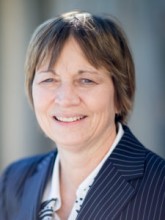
Maria Zuber is the E. A. Griswold Professor of Geophysics and Vice President for Research at MIT, where she is responsible for research administration and policy. She oversees MIT Lincoln Laboratory and more than a dozen interdisciplinary research laboratories and centers, including the Koch Institute for Integrative Cancer Research, the MIT Energy and Environmental Solutions Initiatives, the Plasma Science and Fusion Center, the Research Laboratory of Electronics, the Institute for Soldier Nanotechnologies, Haystack Observatory, and MIT.nano. Zuber leads the MIT’s Plan for Action on Climate Change and she has held leadership roles associated with scientific experiments or instrumentation on ten NASA missions, most notably serving as Principal Investigator of the Gravity Recovery and Interior Laboratory (GRAIL) mission.
Name
|
Stephen Cohen
Senior Fellow, Foreign Policy Studies Program, Brookings Institution |
|
Benjamin Cohen
Louis G. Lancaster Professor of International Political Economy, University of California |
|
James Dobbins
Director, International Security and Defense Policy Center, RAND Corporation |
|
Nicholas Eberstadt
Senior Adviser to the National Board of Asian Research, Member of the visiting committee, Harvard School of Public Health |
|
Michèle Flournoy
Senior Adviser, The Boston Consulting Group, Co-Chair of the Board of Directors, Center for a New American Security |
|
Chas Freeman, Jr.
Chairman, Projects International, Former U.S. Ambassador to Saudi Arabia |
|
Francis Fukuyama
Senior Fellow, Freeman Spogli Institute for International Studies, Stanford University |
|
Kevin Gallagher
Associate Professor, Boston University |
|
Thomas Homer-Dixon
Chair, Centre for International Governance Innovation, Global Systems at the Balsillie School of International Affairs , Professor, Centre for Environment and Business, University of Waterloo |
|
Donald Horowitz
James B. Duke Professor of Law and Political Science, Duke University |
|
Lise Howard
Associate Professor, Georgetown University |
|
Terry Karl
Senior Fellow, Stanford Institute for International Studies |
|
James Kunder
Affiliated Expert, The Lugar Center, Principal, Kunder/Reali Associates |
|
James Lewis
Senior Fellow and Director, Technology and Public Policy Program, CSIS |
|
Roy Licklider
Professor of Political Science, Rutgers |
|
Herb Lin
Senior Research Scholar, Stanford University |
|
Marc Lynch
Associate Professor of Political Science, George Washington University and the Elliott School of International Affairs |
|
William McCants
Fellow, Center for Middle East Policy, Brookings |
|
Roland Paris
Associate Professor, University of Ottawa |
|
Janos Pasztor
Senior Fellow, Carnegie Council for Ethics in International Affairs, Executive Director, Carnegie Climate Governance Initiative |
|
Stewart Patrick
Senior Fellow, Council on Foreign Relations, Director, Program on International Institutions and Global Governance |
|
Ben Ross Schneider
Professor, Political Science, MIT |
|
Michael Singh
Managing Director, The Washington Institute, Former Senior Director for Middle East Affairs, National Security Council |
|
James Stavridis
Dean, The Fletcher School, Tufts University |
|
Frederic Wehrey
Senior Associate, Carnegie Endowment for International Peace |
Name
Herbert F. Johnson Professor of International Management, Harvard Business School

RAWI ABDELAL
Assistant Professor of African and African American Studies, Harvard University

Daniel E. Agbiboa is Assistant Professor of African and African American Studies at Harvard University. His research focuses on the relationships between state and nonstate actors and hybrid security governance in contemporary Africa, especially in the context of armed conflicts and city life. His articles have appeared in leading journals, including Studies in Conflict and Terrorism, The Journal of Modern African Studies, African Affairs, African Studies Review, Current History, and the International Journal of Urban and Regional Research. He is the recipient of the Harry Frank Guggenheim Distinguished Scholar Award, and is a fellow of the Institute for Advanced Study at Princeton and the Woodrow Wilson International Center for Scholars. He is the author of Mobility, Mobilization, and Counter/Insurgency: The Routes of Terror in an African Context (University of Michigan Press), They Eat Our Sweat: Transport Labor, Corruption, and Everyday Survival in Urban Nigeria (Oxford University Press), Transport, Transgression and Politics in African Cities: The Rhythm of Chaos (Routledge), and People, Predicaments and Potentials in Africa (Langaa RPCIG). His research has prompted invitations to consult for the World Bank, the United States Institute of Peace, the African Union, Transparency International, and the Global Center for Pluralism. He is currently leading a major partnership between Howard University National Resource Center for African Studies and George Mason University’s Carter School for Peace and Conflict Resolution on a US Department of Education Title VI grant (2019-2022) on “Countering Extreme Violence and Making Durable Peace in Africa.”
John Hay Professor of International Studies and Political Science, Brown University

Peter Andreas is the John Hay Professor of International Studies at Brown University. He joined Brown's Watson Institute in the fall of 2001 and holds a joint appointment with the Department of Political Science. Previously, Andreas was an Academy Scholar at Harvard University, a Research Fellow at the Brookings Institution and an SSRC-MacArthur Foundation Fellow on International Peace and Security. Andreas' research bridges the study of security, political economy, and transnational crime. He is especially interested in the clandestine dimensions of globalization, involving illicit cross-border flows of people, goods, money and information. He traces the interaction between states and illicit flows across time and place, focusing particularly on the practice and politics of government policing efforts along and across borders. Andreas is the author, co-author, or co-editor of a dozen books. These include "Smuggler Nation: How Illicit Trade Made America" (2013, Oxford University Press, selected by Amazon and by Foreign Affairs as one of the best books of the year), "Blue Helmets and Black Markets: The Business of Survival in the Siege of Sarajevo" (2008, Cornell University Press), "Policing the Globe: Criminalization and Crime Control in International Relations" (2006, Oxford University Press), "Border Games: Policing the U.S.-Mexico Divide" (3rd ed. 2022, Cornell University Press), and "Killer High: A History of War in Six Drugs" (2020, Oxford University Press, finalist for the Lionel Gelber Prize for best book of the year). His latest book is, "The Illicit Global Economy: What Everyone Needs to Know" (forthcoming from Oxford University Press). Andreas has also written for a wide range of scholarly and policy publications, including International Security, International Studies Quarterly, Foreign Affairs, Foreign Policy, The New Republic, Harper's, Slate, Time, and The Nation. Other writings include congressional testimonies and op-eds in major newspapers such as the New York Times, Washington Post, Boston Globe and The Guardian. He holds an M.A. and Ph.D. in government from Cornell University and a B.A. in political science from Swarthmore College.
Keough-Hesburgh Professor of Global Affairs, University of Notre Dame

SCOTT APPLEBY is the Keough-Hesburgh Professor of Global Affairs and Interim Director of the Ansari Institute for Global Engagement with Religion in the Keough School of Global Affairs at Notre Dame. Appleby’s research examines how religious movements and organizations shape and are shaped by national, regional, and global governance dynamics, deadly conflict, international relations, and economic development. His many publications include The Ambivalence of the Sacred: Religion, Violence and Reconciliation; Strong Religion: The Rise of Fundamentalisms Around the World; Catholics in the American Century; and Peacebuilding: Catholic Theology, Ethics and Praxis. He is also the co-editor, with Martin E. Marty, of the five-volume interdisciplinary public policy study known as The Fundamentalism Project.
Former Seminar XXI Director, Herter Professor of International Relations at Brandeis University, Senior Fellow in the Security Studies Program at MIT’s Center for International Studies

Robert Art, the Former Director of MIT's Seminar XXI Program, is Herter Professor of International Relations at Brandeis University and a Senior Fellow in the Security Studies Program at MIT's Center for International Studies. He has served as a Consultant to the Secretary of Defense and the Central Intelligence Agency, and is currently a Faculty Associate of the National Intelligence Council. Professor Art's books include The TFX Decision: McNamara and the Military; Reorganizing America's Defense, with Samuel P. Huntington and Vincent Davis, eds.; U.S. Foreign Policy: The Search for a New Role with Seyom Brown, eds.; The United States and Coercive Diplomacy, with Patrick Cronin, eds.; Democracy and Counterterrorism, with Louise Richardson, eds.; A Grand Strategy for America; and America’s Grand Strategy and World Politics.
Professor of Political Science, Tufts University

David Art is a professor of political science at Tufts University. His field is comparative politics, with a regional focus on Europe. Professor Art's research interests include extremist political parties and movements, the politics of history and memory, and comparative historical analysis in the social sciences. He is the author of The Resilience of the Old Regime: Paths Around Democracy in Europe, 1832-1919 (Cambridge University Press, forthcoming); Inside the Radical Right: The Development of Anti-Immigrant Parties in Western Europe (Cambridge University Press, 2011) and The Politics of the Nazi Past in Germany and Austria (Cambridge University Press, 2006). His articles have appeared in Comparative Politics, German Politics and Society, Party Politics, and West European Politics. Professor Art is Co-Convenor of the European Consortium for Political Research's (ECPR) Standing Group on Extremism and Democracy. During the 2008-2009 academic year he was a Max Weber Postdoctoral Fellow at the European University Institute.
Sié Chéou-Kang Chair for International Security and Diplomacy, Josef Korbel School of International Studies, Director of the Sié Center, University of Denver

Deborah Avant is the Sié Chéou-Kang Chair for International Security and Diplomacy and Director of the Sié Center at the University of Denver. Avant is also the inaugural Editor-in-Chief of the ISA’s newly launched Journal of Global Security Studies. Her research (funded by grants from the Institute for Global Conflict and Cooperation, the John D. and Catherine T. MacArthur Foundation, the Smith Richardson Foundation, and the Carnegie Corporation, among others) focuses on civil-military relations, the roles of non-state actors in security, the politics of controlling violence, and global governance. Under her leadership the Sié Chéou-Kang Center launched the Private Security Monitor, an annotated guide to regulation, data and analyses of global private military and security services, in 2012. In 2013 she was awarded an honorary doctorate from University of St. Gallen for her research and contribution toward regulating private military and security companies. Prior to joining the Josef Korbel School of International Studies, she held positions at the University of California, Irvine and George Washington University. Her most recent books are The New Power Politics: Networks and Transnational Security Governance; Pragmatic Networks and Transnational Governance of Private Military and Security Services; and Who Governs the Globe?
Myra and Robert Kraft Professor of Arab Politics, Brandeis University

Eva Bellin is the Myra and Robert Kraft Professor of Arab Politics in the Department of Politics and the Crown Center for Middle East Studies at Brandeis University. Bellin is a comparativist whose interests center on issues of democratization and authoritarian persistence, political and economic reform, civil society, religion and politics, and the politics of cultural change. She is the author of Stalled Democracy: Capital, Labor, and the Paradox of State Sponsored Development and co-editor of Building Rule of Law in the Arab World. She has published in a variety of venues including World Politics, Comparative Politics, Political Science Quarterly, Comparative Political Studies, World Development, Foreign Affairs, Middle East Policy, as well as numerous edited books. In 2006-2008 she was named a Carnegie Scholar by the Carnegie Endowment for International Peace, supporting her research on high courts in the Middle East and Islamic World. She was also named a Fellow at the Princeton Institute for Regional and International Studies, Democracy and Development Program in 2006-2007. Bellin has served on the editorial board of the journal Comparative Politics since 2005. She has conducted field work in Tunisia, Egypt, Israel, and Pakistan.
President Emeritus & Senior Fellow, Center for Global Development

Nancy Birdsall is president emeritus and a senior fellow at the Center for Global Development, a policy-oriented research institution that opened its doors in Washington, DC in October 2001. Prior to launching the Center, Birdsall served for three years as senior associate and director of the Economic Reform Project at the Carnegie Endowment for International Peace. Her work at Carnegie focused on issues of globalization and inequality, as well as on the reform of the international financial institutions. From 1993 to 1998, Birdsall was executive vice-president of the Inter-American Development Bank, the largest of the regional development banks, where she oversaw a $30 billion public and private loan portfolio. Before joining the Inter-American Development Bank, she spent 14 years in research, policy, and management positions at the World Bank, including as director of the Policy Research Department. Birdsall is the author, co-author, or editor of more than a dozen books and monographs, including, Delivering on Debt Relief: From IMF Gold to a New Aid Architecture, The White House and the World: A Global Development Agenda for the Next U.S. President, Fair Growth: Economic Policies for Latin America's Poor and Middle-Income Majority, and New Ideas in Development after the Financial Crisis. She is author of over 100 published papers, including dozens in peer-reviewed journals. Shorter pieces of her writing have appeared in US and international magazines and newspapers. Her most recent work focuses on global governance and the international financial institutions, women’s empowerment and its relationship to reproductive choices, and the financing of global public goods for development. Birdsall serves on the Board of Directors of the International Food Policy Research Council (IFPRI), the African Population and Health Research Center, and Mathematica. She is a member of the Williams College Center for Development Economics Visiting Committee. She has chaired the board of the International Center for Research on Women and has served on the boards of the Social Science Research Council, Overseas Development Council, and Accion. She has also served on committees and working groups of the National Academy of Sciences.
Senior Research Fellow, Center for International Studies, MIT

Joel F. Brenner specializes in cyber and physical security, data protection and privacy, intelligence law, the administration of classified information and facilities, and the regulation of sensitive cross-border transactions. He has represented companies and individuals in a wide variety of transactions and proceedings including sensitive foreign acquisitions involving the Committee on Foreign Investment in the U.S. (CFIUS), the law governing network operations, the liability of foreign governments, export controls, and internal corporate and government investigations. He has years of experience inside and outside government involving national and homeland security. Joel was Senior Counsel at the National Security Agency, advising Agency leadership on the public-private effort to create better security for the Internet. From 2006 until mid-2009, he was the head of U.S. counterintelligence under the Director of National Intelligence and was responsible for integrating the counterintelligence activities of the 17 departments and agencies with intelligence authorities, including the FBI and CIA and elements of the Departments of Defense, Energy, and Homeland Security. From 2002 – 2006, Joel was NSA’s Inspector General, responsible for that agency’s top-secret internal audits and investigations. He has also served as a prosecutor in the Justice Department’s Antitrust Division and has extensive trial and arbitration experience in private practice. In addition to his practice, Joel is a Senior Research Fellow at the Massachusetts Institute of Technology, where he divides his time between the Center for International Studies and the Computer Science and Artificial Intelligence Lab. At MIT he works on protecting critical infrastructure networks and on intelligence and security issues. He is particularly interested in intelligence collection, privacy, and secrecy as emerging issues in international relations and in the potential for curbing state-sponsored theft of intellectual property. He is a member of the American Bar Association’s Standing Committee on Law & National Security. He has written about intelligence oversight and Presidential authority to suspend or prohibit foreign takeovers of U.S. firms, and is often quoted in the national media on data security, privacy, and intelligence issues. Brenner was awarded the Intelligence Community Achievement Medal in July 2009. Brenner is the author of America the Vulnerable: Inside the New Threat Matrix of Digital Espionage, Crime and Warfare (Penguin Press, 2011), now available in paperback as Glass Houses: Privacy, Secrecy, and Cyber Insecurity in a Transparent World (Penguin Press, 2013).
Founder and Executive Director, Over Zero

Rachel Brown is the Founder and Executive Director of Over Zero, an organization that works to build resilience to identity-based violence and other forms of group-targeted harm. She is a recognized expert on confronting hateful and dangerous rhetoric and her work for the past decade has focused on using communication to prevent violent conflict around the world. Brown is the author of Defusing Hate: A Strategic Communication Guide to Counteract Dangerous Speech and was a 2014 Fellow at the United States Holocaust Memorial Museum Simon-Skjodt Center for the Prevention of Genocide. Brown previously founded and ran Sisi ni Amani-Kenya (SNA-K), a Kenyan NGO that pioneered new strategies to build local capacity for peacebuilding and civic engagement.
Professor, Security Studies Program, Georgetown University, Senior Fellow, Transnational Threats Program, CSIS

DANIEL BYMAN
Deputy Secretary of State, U.S. Department of State

Kurt M. Campbell is the 22nd Deputy Secretary of State as of February 12, 2024. Prior to assuming this position, Deputy Secretary Campbell served as Deputy Assistant to the President and Coordinator for Indo-Pacific Affairs on the National Security Council. He was previously founding Chairman and Chief Executive Officer of The Asia Group, LLC, a strategic advisory and capital management group. From 2009 to 2013, Campbell served as the Assistant Secretary of State for East Asian and Pacific Affairs. Earlier, he was the CEO and Co-Founder of the Center for a New American Security and concurrently served as the Director of the Aspen Strategy Group and Chairman of the Editorial Board of the Washington Quarterly. Among the other positions he has held during his distinguished career, Campbell served as Deputy Assistant Secretary of Defense for Asian and Pacific Affairs, White House Fellow at the Treasury Department, and as Director of the Democracy Office at the National Security Council during the Clinton Administration. Campbell was an Associate Professor of Public Policy at Harvard’s John F. Kennedy School of Government and served in the U.S. Navy Reserves. He is the author or editor of ten books including The Pivot: The Future of American Statecraft in Asia, Difficult Transitions: Why Presidents Fail in Foreign Policy at the Outset of Power, and Hard Power: The New Politics of National Security. He received his B.A. from the University of California, San Diego and his Doctorate in international relations from Brasenose College at Oxford University where he was a Distinguished Marshall Scholar. Campbell is the recipient of numerous awards, including the Secretary of State’s Distinguished Service Award.
Associate Professor, Department of Government, Georgetown University

Fr. Matthew Carnes, S.J., is an associate professor at Georgetown University in the Department of Government and the Edmund A. Walsh School of Foreign Service, and he currently serves as the Director of the Center for Latin American Studies. His research examines the dynamics of labor and social welfare policy in developing and middle-income countries. A specialist on Latin America, he has conducted extensive field research in Argentina, Peru, Chile, and Bolivia, and he has worked on development projects in Honduras, Mexico, Uruguay, Paraguay, and Ecuador. He is the author of Continuity Despite Change: The Politics of Labor Regulation in Latin America (Stanford University Press, 2014), and numerous journal articles. A distinguished educator, he has received three of Georgetown University’s highest teaching awards, including Georgetown College's Edward B. Bunn, S.J. Award (2017 and 2011), given by graduating seniors of the College; the Edmund A. Walsh School of Foreign Service Faculty of the Year Award (2013), given by the SFS Academic Council; and the University-wide Dorothy Brown Award for Outstanding Teaching Achievement (2011). In 2012, he was featured as one of the country's best professors in the Princeton Review's publication, 300 Best Professors. In recent years, he has been a Visiting Fellow at the Kellogg Institute for International Studies at the University of Notre Dame (Spring 2009) and a National Fellow at the Hoover Institution at Stanford University (Academic Year 2011-2012).
Associate Professor, Bush School of Government and Public Service, Texas A&M University

Jasen Castillo is an associate professor in the Bush School of Government and Public Service at Texas A&M University. Prior to joining the Bush School, Jasen worked in the Department of Defense's Policy Planning Office. Before working in the Office of the Secretary of Defense, he was an analyst at the RAND Corporation, where his research focused on military strategy, nuclear deterrence, and WMD terrorism. Prior to RAND, he was a consultant for the Institute for Defense Analyses. Dr. Castillo earned his PhD in political science from the University of Chicago, where he received research support from the National Science Foundation and the Smith Richardson Foundation. His research interests include US defense policy, military history and nuclear deterrence. His publications include: Endurance and War: The National Sources of Military Cohesion ; Flexible Response Revisited: Assessing Pakistan’s Potential Nuclear Strategies ; Striking First: Preemptive and Preventive Attack in U.S. National Security Policy ; “Nuclear Terrorism: Why Deterrence Still Matters,” Current History, Vol. 2, No. 668 ; and Economic Growth and Military Expenditures. Currently, he is working on a project exploring the deterrence and defense strategies of nuclear weapon states outside the US security umbrella.
Vice Dean & the D.S. Song-KF Professor in Government & International Affairs, Georgetown University, Senior Adviser, CSIS

Victor Cha is Vice Dean and the D.S. Song-KF Professor in Government and International Affairs at Georgetown University. He is also a Senior Adviser and inaugural holder of the Korea Chair at the Center for Strategic and International Studies in Washington, D.C. He left the White House in 2007 after serving since 2004 as Director for Asian Affairs at the National Security Council (NSC). At the White House, he was responsible primarily for Japan, the Korean peninsula, Australia/New Zealand and Pacific Island nation affairs. Dr. Cha was also the deputy head of delegation for the United States at the Six-Party Talks in Beijing and received two Outstanding Service commendations during his tenure at the NSC. He is the author of five books, including the award-winning Alignment Despite Antagonism: The United States-Korea-Japan Security Triangle (Stanford University Press) (winner of the 2000 Ohira Book Prize) and The Impossible State: North Korea, Past and Future (Harper Collins Ecco, 2012), which was selected by Foreign Affairs as a “Best Book on the Asia-Pacific for 2012.” His latest book is Powerplay: Origins of the American Alliance System in Asia (Princeton University Press, 2016). He is also writing a new book on the impact of US-China competition on U.S. alliances around the world. He has published articles on international relations and East Asia in journals including Foreign Affairs, Foreign Policy, International Security, Political Science Quarterly, Survival, International Studies Quarterly, International Journal of the History of Sport, and Asian Survey. Dr. Cha is a former John M. Olin National Security Fellow at Harvard University, two-time Fulbright Scholar, John D. and Catherine T. MacArthur Scholar at Columbia University, and Hoover National Fellow, CISAC Fellow, and William J. Perry Fellow at Stanford University. He is currently a fellow in Human Freedom (non-resident) at the George W. Bush Institute in Dallas, Texas. He is also a Contributor for NBC News and MSNBC.
Independent Scholar

SARAH CHAYES
Michael J. Zak Professor for China & Asia-Pacific Studies, Cornell University

Jessica Chen Weiss is the Michael J. Zak Professor for China and Asia-Pacific Studies in the Department of Government at Cornell University. From August 2021 to July 2022, Weiss served as senior advisor to the Secretary's policy planning staff at the U.S. Department of State on a Council on Foreign Relations International Affairs Fellow ship for Tenured IR Scholars (IAF-TIRS) while on sabbatical from Cornell. She studies Chinese politics and foreign relations with an emphasis on nationalism and public opinion, focusing on the connection between domestic politics and international relations. Her first book, Powerful Patriots: Nationalist Protest in China's Foreign Relations (Oxford University Press, August 2014), examined how the Chinese Communist Party has managed nationalist, anti-foreign protests, tracing the government's repression and facilitation of grassroots mobilization as a means of conveying reassurance and resolve. Her work has appeared in the New York Times, Foreign Affairs, International Organization, China Quarterly, International Studies Quarterly, Journal of Conflict Resolution, Security Studies, Journal of Contemporary China, and the Review of International Political Economy. Born and raised in Seattle, Washington, she received her Ph.D. from the University of California, San Diego.
Professor of International & Public Affairs, Columbia University

Thomas J. Christensen is Professor of Public and International Affairs and Director of the China and the World Program at Columbia University. He arrived in 2018 from Princeton University where he was William P. Boswell Professor of World Politics of Peace and War, Director of the Princeton-Harvard China and the World Program, and faculty director of the Masters of Public Policy Program and the Truman Scholars Program. From 2006-2008 he served as Deputy Assistant Secretary of State for East Asian and Pacific Affairs with responsibility for relations with China, Taiwan, and Mongolia. His research and teaching focus on China’s foreign relations, the international relations of East Asia, and international security. His most recent book, The China Challenge: Shaping the Choices of a Rising Power was an editors’ choice at the New York Times Book Review, a “Book of the Week” on CNN”s Fareed Zakaria GPS, and the Arthur Ross Book Award Silver Medalist for 2016 at the Council on Foreign Relations. Professor Christensen has also taught at Cornell University and MIT. He received his B.A. with honors in History from Haverford College, M.A. in International Relations from the University of Pennsylvania, and Ph.D. in Political Science from Columbia University. He has served on the Board of Directors and the Executive Committee of the National Committee on U.S.-China Relations, as co-editor of the International History and Politics series at Princeton University Press, and as a member of the Academic Advisory Committee for the Schwarzman Scholars Program. He is currently the Chair of the Editorial Board of the Nancy B. Tucker and Warren I. Cohen Book Series on the United States in Asia at Columbia University Press. Professor Christensen is a life member of the Council on Foreign Relations and a Non-Resident Senior Scholar at the Brookings Institution. He was presented with a Distinguished Public Service Award by the United States Department of State.
Founder & CEO, Good Harbor Cyber Security Risk Management

Richard Clarke is the founder and CEO of Good Harbor Cyber Security Risk Management, and advises leaders in the public and private sectors on all issues of cyber security and crisis management. Clarke served in the White House on the National Security Council under President George H.W. Bush, President Bill Clinton, and President George W. Bush for an unprecedented ten years. As the country’s chief counterterrorism expert, Clarke was tasked with building the National Strategic Stockpile and also led the White House’s response on September 11, 2001. Then, as Special Advisor to the President on Cyber Security, or “Cyber-Czar,” Clarke developed the country’s first National Strategy to Defend Cyberspace. Since leaving government, Clarke has authored or co-authored nine books, including the international bestseller, Against All Enemies, Warnings, and his latest with Robert Knake, The Fifth Domain.
Louis G. Lancaster Professor of International Political Economy, University of California
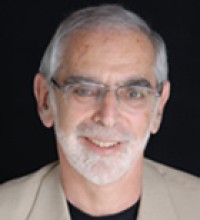
Benjamin J. Cohen is Louis G. Lancaster Professor of International Political Economy at the University of California, Santa Barbara, where he has been a member of the Political Science Department since 1991. He previously taught at Princeton University from 1964-1971 and at the Fletcher School of Law and Diplomacy at Tufts University from 1971-1991. His publications have addressed issues of international monetary relations, U.S. foreign economic policy, European monetary integration, developing country debt, and theories of economic imperialism. His most recent publications include The Future of Global Currency: The Euro versus the Dollar; "Toward a New Consensus: From Denial to Acceptance," in Nicola Phillips and Catherine Weaver, eds., International Political Economy: Debating the Past, Present and Future; and "Are IPE Journals Becoming Boring?" in International Studies Quarterly 54:3. He has won numerous awards and in 2000 was named Distinguished Scholar of the year by the International Political Economy Section of the International Studies Association.
Senior Fellow, Foreign Policy Studies Program, Brookings Institution
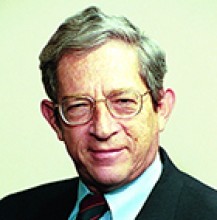
Stephen Cohen is Senior Fellow in the Foreign Policy Studies Program of the Brookings Institution. He is also Adjunct Professor at the Nitze School of Advanced International Studies and a member of the National Academy of Science's Committee on International Security and Arms Control. Professor Cohen's many books include India: Emerging Power; The Pakistan Army; The Indian Army; and The Idea of Pakistan. His latest publications are Four Crises and a Peace Process: American Engagement in South Asia, with P.R. Chari and Pervaiz I. Cheema, and Arming without Aiming: India’s Military Modernization, with Sunil Dasgupta.
President, Conger Strategies & Solutions, LLC, Director Emeritus, Center for Climate and Security, Senior Advisor, Council on Strategic Risks
John Conger is President of Conger Strategies & Solutions, LLC, a management and strategy consulting firm, Director Emeritus of the Center for Climate and Security, and Senior Advisor to the Council on Strategic Risks. Mr. Conger previously served as the Principal Deputy Under Secretary of Defense (Comptroller), from December 2015 to January 2017. As principal deputy comptroller, Mr. Conger assisted the Under Secretary of Defense (Comptroller) in the performance of his duties, provided advice to the Secretary of Defense on all budgetary and financial matters, including the development and execution of the Department’s annual budget, and oversaw the Department’s efforts to achieve audit readiness. Previously, Mr. Conger oversaw energy, installations and environmental policy throughout DoD, performing the duties of the Assistant Secretary of Defense for Energy, Installations and Environment, as Acting Deputy Under Secretary of Defense for Installations & Environment, and as Assistant Deputy Under Secretary of Defense for Installations & Environment from 2009 to 2015. In this role, Mr. Conger oversaw a vast portfolio that included base closure, energy security, climate change, and management of nearly a trillion dollars in real property. Prior to his appointment in DoD, Mr. Conger served on the staff of Representatives Chet Edwards, Sam Gejdenson and Jane Harman, as well as Professional Staff for the House International Relations Committee. Previously, Mr. Conger was employed in the private sector as an aerospace engineer and defense analyst supporting the Office of the Secretary of Defense. He holds a B.S. and an M.S. in Aeronautics and Astronautics from the Massachusetts Institute of Technology and an M.A. in Science, Technology and Public Policy from the George Washington University.
Senior Scientist, Board on Life Sciences, US National Academies of Science, Engineering, and Medicine

Dr. Nancy Connell is a Senior Scientist in the Board on Life Sciences, Division of Earth and Life Sciences, at the US National Academies of Science, Engineering, and Medicine (NASEM). Trained in microbial geneticist at Harvard, Dr. Connell’s work focuses on advances in life sciences and technology and their application to a number of developments in the areas of biosecurity, biosafety, and biodefense. Her research analyzes novel biotechnologies that impact the implementation of Biological Weapons Convention and the development of global catastrophic biological risks in ecosystems. She has had a long-standing interest in the development of regulatory policies associated with biocontainment work and dual-use research of concern. Dr. Connell is a past member of the Board on Life Sciences, a current member of the Committee on International Security and Arms Control, and a National Associate of NASEM, where she has served on more than 15 NASEM committees. She also served on the US National Science Advisory Board for Biosecurity and the US Centers for Disease Control and Prevention Office of Public Health Preparedness and Response Biological Agent Containment Working Group. In addition to life sciences research policy, Dr. Connell has considerable experience and interest in pedagogy, with a focus on ethics education and the responsible conduct of research. She has presented at workshops and meetings around the world on the interrelated issues of biocontainment, infectious disease research, research ethics, and the impact of advancing science and technology on the implementation of the Biological Weapons Convention. Dr Connell was Senior Scientist at the Johns Hopkins Center for Health Security and a Professor in the Department of Environmental Health and Engineering at the Johns Hopkins Bloomberg School of Public Health from 2018-2021. From 1992-2018, Dr. Connell was at Rutgers New Jersey Medical School (NJMS) and the Rutgers Biomedical Health Sciences, finishing her long career there as Professor in the Division of Infectious Disease and Director of Research in in the Department of Medicine. Dr. Connell was continuously funded by the National Institutes of Health, the Department of Defense, the Defense Advanced Research Projects Agency, industry, and other sources from 1992 to 2018.
Assistant Professor of Political Science, University of Pennsylvania

FIONA CUNNINGHAM
Former Secretary of the Navy & Presidential Advisor, Senior Fellow, Johns Hopkins Applied Physics Laboratory

RICHARD DANZIG
Executive Director, World Peace Foundation, Research Professor, Tufts University

ALEX DE WAAL
emeritus Institute Professor, MIT

John Deutch is an emeritus Institute Professor at the Massachusetts Institute of Technology, where he served as Chairman of the Department of Chemistry, Dean of Science and Provost. Deutch’s research focuses on energy technology and he has participated in numerous interdisciplinary studies on energy issues including the MIT studies on the Future of Nuclear Energy, the Future of Coal, and the Future of Natural Gas. He has published over 140 technical publications in physical chemistry, as well as numerous publications on technology, energy, international security, and public policy issues. Some of his recent publications are The Crisis in Energy Policy; and “Is Innovation China’s Next Great Leap Forward?” in Issues in Science and Technology.
Independent Scholar

Aleksa Djilas is an independent writer based in Belgrade since 1993. Djilas was a critic of President Milošević’s policies during the Balkans War. His books include The Balkans and American Foreign Policy and The Contested Country. His papers have appeared in prominent popular and academic journals. Djilas has been a Fellow at the Harvard University Center for International Affairs and the Woodrow Wilson Center for Scholars. He is the son of Yugoslavia’s great dissident Milovan Djilas.
Director, International Security and Defense Policy Center, RAND Corporation

James Dobbins is the Director of the International Security and Defense Policy Center at RAND. His areas of expertise include: Iraq, Afghanistan, the Balkans, Europe, U.S. Foreign Relations, NATO, and trends and issues in international security. Dr. Dobbins is a veteran diplomat who has held senior White House and State Department positions under four presidents, and most recently served as the Bush Administration's special envoy for Afghanistan. His publications include: After the Taliban: Nation Building in Afghanistan; The Effect of Terrorist Attacks in Spain on Transatlantic Cooperation in the War on Terror; Stabilization and Reconstruction Civilian Management Act of 2004; The UN’s Role in Nation-Building: from the Congo to Iraq; The Beginner’s Guide to Nation-Building; Occupying Iraq: A History of the Coalition Provisional Authority; and After the Taliban.
Professor of Political Science & International Affairs, George Washington University

ALEXANDER DOWNES
Distinguished Professor of International Politics, Fletcher School of Law and Diplomacy, Tufts University

DAN DREZNER
Senior Adviser to the National Board of Asian Research, Member of the visiting committee, Harvard School of Public Health

Nicholas Eberstadt, a political economist and a demographer by training, is also a senior adviser to the National Board of Asian Research, a member of the visiting committee at the Harvard School of Public Health, and a member of the Global Leadership Council at the World Economic Forum. He researches and writes extensively on economic development, foreign aid, global health, demographics, and poverty. He is the author of numerous monographs and articles on North and South Korea, East Asia, and countries of the former Soviet Union. His books range from The End of North Korea to The Poverty of the Poverty Rate.
Director of Public Policy, MIT Internet Policy Research Initiative

Dr. R. David Edelman is Director of Public Policy at the MIT Internet Policy Research Initiative (IPRI), where he holds joint appointments at the Computer Science & Artificial Intelligence Lab (CSAIL) and Center for International Studies (CIS); teaches in the Department of Electrical Engineering & Computer Science; and leads research on the governance of artificial intelligence, the geopolitics of technology, and the national security dimensions of computing. Until 2017, he served as Special Assistant to President Obama for Economic and Technology Policy. In addition to this domestic portfolio, during that time he also represented the National Economic Council (NEC) and Office of Science & Technology Policy (OSTP) at the NSC Deputies Committee a range of national and homeland security matters. Edelman served from 2010-2012 as the nation’s first Director for International Cyber Policy on the White House National Security Council (NSC) staff. He began his career as a civil servant at the State Department’s Office of Cyber Affairs, later acting as the United States' lead negotiator on Internet issues at the United Nations — for which he was awarded State’s Superior Honor Award and twice its Meritorious Honor Award. His insights and analyses have appeared in print in the New York Times, Wall Street Journal, Washington Post, WIRED, Fast Company, and Fortune, and broadcast on CNN, Bloomberg, CNBC, MSNBC, and NPR. His latest book, Rethinking Cyber Warfare, will be released by Oxford University Press this year.
Fellow, Center for Global Development, Visiting Scholar, George Washington University

Kimberly Ann Elliott is a Nonresident Fellow with the Center for Global Development and a Visiting Scholar with the Institute for International Economic Policy at George Washington University. She is the author or co-author of numerous books and articles on trade policy and globalization, economic sanctions, and food security. Her most recent book is Global Agriculture and the American Farmer: Opportunities for U.S. Leadership (2017), a follow on to Delivering on Doha: Farm Trade and the Poor (2006). Her co-authored publications include Economic Sanctions Reconsidered, Can Labor Standards Improve under Globalization, and Reciprocity and Retaliation in U.S. Trade Policy. She is a member of the US Department of Labor’s National Advisory Committee for Labor Provisions in US Free Trade Agreements and has served on a number of official advisory committees, including the State Department’s Working Group on Economic Sanctions, the National Research Council committee on Monitoring International Labor Standards, and the USDA Consultative Group on the Elimination of Child Labor in US Agricultural Imports. She has an MA, with distinction, from the Johns Hopkins University School of Advanced International Studies and, in 2004, Austin College named her a Distinguished Alumna.
Associate Professor, MIT Media Lab, Director, Sculpting Evolution Group

KEVIN ESVELT is an Associate Professor at the MIT Media Lab, where he leads the Sculpting Evolution Group in advancing biotechnology safely. He was the inventor of asynthetic microbial ecosystem to rapidly evolve useful biomolecules, and subsequently helped pioneer the development of CRISPR, a powerful new method of genome engineering. In 2013, Esvelt was the first to identify the potential for CRISPR “gene drive” systems to alter wild populations of
Fellow for Europe, Council on Foreign Relations

LIANA FIX
Senior Adviser, The Boston Consulting Group, Co-Chair of the Board of Directors, Center for a New American Security
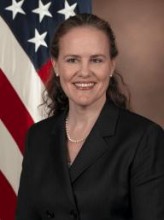
Michèle Flournoy is Co-Chair of the Board of Directors of the Center for a New American Security (CNAS) and a Senior Adviser at the Boston Consulting Group. She served as the Under Secretary of Defense for Policy from February 2009 to February 2012. She was the principal adviser to the Secretary of Defense in the formulation of national security and defense policy, oversight of military plans and operations, and in National Security Council deliberations. She led the development of DoD’s new Strategic Guidance and represented the Department in dozens of foreign engagements, in the media and before Congress.
Harold Brown Professor of US Foreign & Security Policy, Columbia University

Page Fortna is the Harold Brown Professor of US Foreign and Security Policy in the Political Science Department at Columbia University. Her research focuses on terrorism, the durability of peace in the aftermath of both civil and interstate wars, and war termination. She is the author of two books: Does Peacekeeping Work? Shaping Belligerents Choices after Civil War (Princeton University Press, 2008) and Peace Time: Cease-Fire Agreements and the Durability of Peace (Princeton University Press, 2004). She has published articles in journals such as International Organization, World Politics, International Studies Quarterly, and International Studies Review. She is currently working on a project on terrorism in civil wars. Her research combines quantitative and qualitative methods, draws on diverse theoretical approaches, and focuses on policy-relevant questions. Fortna is a member of the Saltzman Institute of War and Peace Studies at Columbia University. She received the Karl Deutsch Award from the International Studies Association in 2010. She has held fellowships at the Olin Institute at Harvard, the Center for International Security and Cooperation at Stanford, the American Academy of Arts and Sciences, and the Hoover Institution. Professor Fortna teaches courses on international politics, war termination and the durability of peace, terrorism, cooperation and security, and research methods. Professor Fortna's article "Do Terrorists Win? Rebels' Use of Terrorism and Civil War Outcomes" (International Organization, Summer 2015) has recently been highlighted in The Atlantic; Slate; and Die Zeit.
Arthur and Ruth Sloan Professor of Political Science, MIT, Director, Security Studies Program, MIT

M. Taylor Fravel is the Arthur and Ruth Sloan Professor of Political Science and Director of the Security Studies Program at the Massachusetts Institute of Technology. Taylor studies international relations, with a focus on international security, China, and East Asia. His books include, Strong Borders, Secure Nation: Cooperation and Conflict in China’s Territorial Disputes, (Princeton University Press, 2008) and Active Defense: China's Military Strategy Since 1949 (Princeton University Press, 2019). His other publications have appeared in International Security, Foreign Affairs, Security Studies, International Studies Review, The China Quarterly, The Washington Quarterly, Journal of Strategic Studies, Armed Forces & Society, Current History, Asian Survey, Asian Security, China Leadership Monitor, and Contemporary Southeast Asia. Taylor is a graduate of Middlebury College and Stanford University, where he received his PhD. He also has graduate degrees from the London School of Economics and Oxford University, where he was a Rhodes Scholar. In 2016, he was named an Andrew Carnegie Fellow by the Carnegie Corporation. Taylor is a member of the board of directors of the National Committee on U.S.-China Relations and serves as the Principal Investigator for the Maritime Awareness Project.
Chairman, Projects International, Former U.S. Ambassador to Saudi Arabia
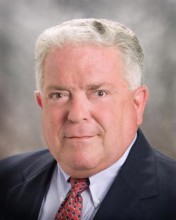
Chas W. Freeman, Jr. is a former U.S. Ambassador to Saudi Arabia and Assistant Secretary of Defense for International Security Affairs. After 30 years as a U.S. diplomat, he became the chairman of Projects International in 1995. He served as the principal interpreter during President Nixon's historic visit to China in 1972. He is also currently president of the Middle East Policy Council, co-chair of the U.S. China Policy Foundation, vice-chair of the Atlantic Council, a trustee of the Institute for Defense Analyses — and a director of the Pacific Pension Institute. Mr. Freeman has been published in The New York Times and wrote two books titled "Arts of Power: Statecraft and Diplomacy" and "The Diplomat's Dictionary."
Senior Fellow, Freeman Spogli Institute for International Studies, Stanford University
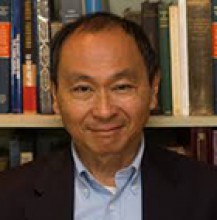
Dr. Francis Fukuyama is Olivier Nomellini Senior Fellow at the Stanford University Freeman Spogli Institute for International Studies (FSI), resident in FSI's Center on Democracy, Development, and the Rule of Law. Dr. Fukuyama has written widely on issues in development and international politics. His book, The End of History and the Last Man, was published byFree Press in 1992 and has appeared in over twenty foreign editions. His most recent book, Political Order and Political Decay: From the Industrial Revolution to the Globalization of Democracy, was published in September 2014. Other books include America at the Crossroads: Democracy, Power, and the Neoconservative Legacy; Our Posthuman Future: Consequences of the Biotechnology Revolution; and Trust: The Social Virtues and the Creation of Prosperity. He was a member of the Political Science Department of the RAND Corporation, and of the Policy Planning Staff of the US Department of State. He previously taught at the Paul H. Nitze School of Advanced International Studies (SAIS) of Johns Hopkins University and at George Mason University's School of Public Policy. He served as a member of the President's Council on Bioethics from 2001-2004. Dr. Fukuyama is chairman of the editorial board of The American Interest, which he helped to found in 2005. He is a senior fellow at the Johns Hopkins SAIS Foreign Policy Institute, and a non-resident fellow at the Carnegie Endowment for International Peace and the Center for Global Development.
Associate Professor, Boston University
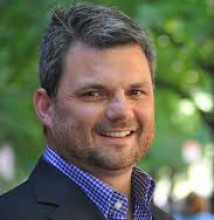
Kevin P. Gallagher is Associate Professor of International Relations at Boston University who specializes in economic development, trade and investment policy, international environmental policy, and Latin America. He is the author of “The Dragon in the Room: China and the Future of Latin American Industrialization” (with Roberto Porzecanski), “The Enclave Economy: Foreign Investment and Sustainable Development in Mexico’s Silicon Valley” (with Lyuba Zarsky), and “Free Trade and the Environment: Mexico, NAFTA, and Beyond.” Gallagher has edited or co-edited a number of books, including “Rethinking Foreign Investment for Sustainable Development: Lessons from Latin America” (with Daniel Chudnovsky) and “Putting Development First: the Importance of Policy Space in the WTO and IFIs.” Gallagher is the coordinator of Boston University’s Global Development Policy Program. He is a faculty fellow at BU’s Frederick S. Pardee Center for the Study of the Longer-Range Future where he leads the Global Economic Governance Initiative. Gallagher is also a research associate at the Global Development and Environment Institute of Tufts University and at the Political Economy Research Institute of the University of Massachusetts, Amherst. He has served as a visiting or adjunct professor at the Fletcher School of Law and Diplomacy, Tufts University; Harvard University’s Kennedy School of Government; El Colegio de Mexico in Mexico; Tsinghua University in China; and the Center for the Study of State and Society in Argentina. Gallagher is co-editor of the Review of International Political Economy. In 2009, he served on the investment subcommittee of the US Department of State’s Advisory Committee on International Economic Policy. He currently serves on the National Advisory Committee to the North American Free Trade Agreement at the US Environmental Protection Agency and as a member of the Inter-American Dialogue’s China and Latin America Working Group. Professor Gallagher writes regular columns on global economic and development policy for The Guardian, Financial Times, and Al-Jazeera. He co-chairs the Triple Crisis blog.
Professor of Political Science, Indiana University, Bloomington

Sumit Ganguly is a Distinguished Professor of Political Science, holds the Rabindranath Tagore Chair in Indian Cultures and Civilizations and directs the Center on American and Global Security at Indiana University, Bloomington. A specialist on the international and comparative politics of South Asia he has previously taught at James Madison College of Michigan State University, at Hunter College of the City University of New York, the School of Public and International Affairs at Columbia University and the University of Texas at Austin. In the spring quarter of 2014 he was the Visiting Buffet Professor of International Studies at Northwestern University. He has also been a Fellow and a Guest Scholar at the Woodrow Wilson International Center for Scholars in Washington, DC; and a Visiting Fellow at the Center on International Security and Cooperation as well as the Center on Democracy, Development and the Rule of Law at Stanford University. In 2010 he was a Distinguished Visiting Fellow at the Institute of Defense Studies and Analysis in New Delhi. Professor Ganguly is the author, co-author, editor or co-editor of twenty books on the contemporary domestic and international politics of South Asia. He currently serves on the editorial boards of Asian Security, Current History, The India Review, International Security, Journal of Democracy, The Nonproliferation Review and Pacific Affairs. He is a member of the Council on Foreign Relations (New York) and a Fellow of the American Academy of Arts and Sciences. He was also an Alexander von Humboldt Research Fellow at the University of Heidelberg, Germany for 2018-2019. His recent publications include How Rivalries End; Deadly Impasse: India and Pakistan at the Dawn of a New Century; and Ascending India and Its State Capacity. He is currently at work on a book on the origins and evolution of India’s defense policies.
Professor of International Affairs, Bush School of Government and Public Service, Texas A&M University

F. Gregory Gause III is Professor of International Affairs and John H. Lindsey ’44 Chair at the Bush School of Government and Public Service, Texas A&M University. From fall 2014 through summer 2022 he served as Head of the School’s Department of International Affairs. He is currently working at the School's Washington, D.C. teaching site. He is the author of three books and numerous articles on the politics of the Middle East, with a particular focus on the Arabian Peninsula and the Persian Gulf. He was previously on the faculties of the University of Vermont (1995-2014) and Columbia University (1987-1995) and was Fellow for Arab and Islamic Studies at the Council on Foreign Relations in New York (1993-1994). During the 2009-10 academic year he was Kuwait Foundation Visiting Professor of International Affairs at the Kennedy School of Government, Harvard University. In spring 2009 he was a Fulbright Scholar at the American University in Kuwait. In spring 2010 he was a research fellow at the King Faisal Center for Islamic Studies and Research in Riyadh, Saudi Arabia. His research focuses on the international politics of the Middle East, particularly the Arabian Peninsula and the Persian Gulf. He has published three books, most recently The International Relations of the Persian Gulf (Cambridge University Press, 2010). His articles have appeared in Foreign Affairs, Foreign Policy, Middle East Journal, Security Studies, Washington Quarterly, National Interest, and in other journals and edited volumes. He received his Ph.D. in political science from Harvard University in 1987 and his B.A. (summa cum laude) from St. Joseph's University in Philadelphia in 1980. He studied Arabic at the American University in Cairo (1982-83) and Middlebury College (1984).
David M. Knott Professor of Global Politics and International Relations, University of Pennsylvania, Director of the Center for the Study of Contemporary China, University of Pennsylvania, Associate Director of the Christopher H. Browne Center for International Politics, University of Pennsylvania

Avery Goldstein is the David M. Knott Professor of Global Politics and International Relations in the Political Science Department, Inaugural Director of the Center for the Study of Contemporary China, and Associate Director of the Christopher H. Browne Center for International Politics at the University of Pennsylvania. His research focuses on international relations, security studies, and Chinese politics. He is the author of Rising to the Challenge: China’s Grand Strategy and International Security (Stanford University Press, 2005), Deterrence and Security in the 21st Century: China, Britain, France and the Enduring Legacy of the Nuclear Revolution (Stanford University Press, 2000), and From Bandwagon to Balance of Power Politics: Structural Constraints and Politics in China, 1949-1978 (Stanford University Press, 1991). Among his other publications are articles in the journals International Security, International Organization, Journal of Strategic Studies, Security Studies, China Quarterly, Asian Survey, Comparative Politics, Orbis, and Polity as well as chapters in a variety of edited volumes. Goldstein is also a Senior Fellow at the Foreign Policy Research Institute in Philadelphia.
Virginia E. and John T. Hazel, Jr., Chair Professor of Public Policy, George Mason University, Senior Fellow, Mercatus Center, Global Policy Fellow, Woodrow Wilson Center

Jack A. Goldstone (PhD Harvard) is the Virginia E. and John T. Hazel, Jr., Chair Professor of Public Policy at George Mason University, a Senior Fellow of the Mercatus Center, and a Global Policy Fellow at the Woodrow Wilson Center. Previously, Dr. Goldstone was on the faculty of Northwestern University and the University of California, and has been a visiting scholar at Cambridge University, Stanford University, UCLA, the Hong Kong University of Science and Technology and the California Institute of Technology. He has received the Distinguished Contribution to Scholarship award from the American Sociological Association, the Arnoldo Momigliano Prize, the Barrington Moore Jr. Award, the Myron Weiner Award, the Ibn Khaldun Award, and fellowships from the MacArthur Foundation, the JS Guggenheim Foundation, the Carnegie Foundation, the U.S. Institute of Peace and the Mellon Foundation. He also served as the Richard C. Holbrooke Distinguished Visitor to the American Academy in Berlin. A life member of the Council on Foreign Relations, Dr. Goldstone is also an Academic Fellow of the European Policy Council, and served on the International Advisory Board of the Gaidar Institute (Moscow). He led a National Academy of Sciences study of USAID’s democracy assistance policies, and has served as a consultant on state fragility to USAID, Britain’s DFID, and the OECD. Dr. Goldstone’s research focuses on the impact of global population changes on social and economic development. His 2010 essay in Foreign Affairs – “The New Population Bomb: The Four Megatrends that will Change the World” – has been widely cited as a critical guide to the impact of future population change. He has been a keynote speaker at events in Oslo, Moscow, Antalya, Delhi, Beijing, Berlin, Aspen and New York, and appeared on CNN, MSNBC, Al Jazeera, CCTV, Russia Today, and Fox News. His recent books include the Handbook of Revolutions in the 21 st Century (Springer, 2022), International Handbook of Population Policies (Springer 2022) and Revolutions: A Very Short Introduction (Oxford U. Press 2023).
Leo Pasvolsky Senior Fellow, Brookings, College Park Professor, University of Maryland, Gallup Senior Scientist

Carol Graham is Leo Pasvolsky Senior Fellow at Brookings, College Park Professor at the University of Maryland, and a Gallup Senior Scientist. She served on a National Academy of Sciences panel on well-being metrics in 2012-13, received Pioneer Awards from the Robert Wood Johnson Foundation in 2017 and 2021, and a Lifetime Distinguished Scholar award from the International Society of Quality of Life Studies (2018). She has served as a Vice President at Brookings, as Special Advisor to the Inter-American Development Bank, Visiting Fellow at the World Bank, and consultant to the IMF. Her most recent books (published in several languages) are: Happiness for All? Unequal Hopes and Lives in Pursuit of the American Dream (Princeton, 2017); The Pursuit of Happiness (Brookings, 2011); and Happiness around the World: The Paradox of Happy Peasants and Miserable Millionaires (Oxford, 2010). She has published articles in journals including Science, Social Science and Medicine, the Journal of Population Economics, Perspectives on Psychological Science, World Bank Research Observer; Health Affairs, Health Economics; the Journal of Development Studies; the Journal of Human Development; and the Journal of Economic Literature; and her work has been reviewed in Science, the New Yorker, and the New York Review of Books, among others, and is senior editor at Behavioral Science and Policy.
Director, MIT Seminar XXI Program, Associate Professor of International Relations and Security Studies, Tufts University, Resident Senior Research Fellow and visiting professor, MIT

KELLY M. GREENHILL
Senior Scholar, Johns Hopkins Center for Health Security, Associate Professor of Environmental Health & Engineering, at Johns Hopkins Bloomberg School of Public Health

Dr. Gigi Gronvall is a Senior Scholar at the Johns Hopkins Center for Health Security and an Associate Professor in the Department of Environmental Health and Engineering at the Johns Hopkins Bloomberg School of Public Health. She is an immunologist by training. Dr. Gronvall’s work at the Center addresses the role of scientists in health security—how they can contribute to an effective technical response against a biological weapon or a natural epidemic. She is particularly interested in developing policies that will boost the safety and security of biological science activities while allowing beneficial research to flourish. Dr. Gronvall is the author of the book Synthetic Biology: Safety, Security, and Promise, published in fall 2016 (Health Security Press). Dr. Gronvall is also the author of the book Preparing for Bioterrorism: The Alfred P. Sloan Foundation’s Leadership in Biosecurity. Dr. Gronvall is a member of the Threat Reduction Advisory Committee (TRAC), which provides the Secretary of Defense with independent advice and recommendations on reducing the risk to the United States, its military forces, and its allies and partners posed by nuclear, biological, chemical, and conventional threats. In 2014-15, she led a preparatory group that examined the US government response to the Ebola outbreak in West Africa as a case study for DoD’s strategic role in health security and that made recommendations for future DoD actions in response to disease outbreaks. She served as the Science Advisor for the Commission on the Prevention of Weapons of Mass Destruction Proliferation and Terrorism from April 2009 until the Commission ended in February 2010. She has testified before Congress about the safety and security of high-containment biological laboratories in the United States and served on several task forces related to laboratory and pathogen security, most recently the National Institutes of Health Blue Ribbon Panel to Review the 2014 Variola Virus Incident on the NIH Campus (2016) and the Committee for Comprehensive Review of DoD Laboratory Procedures, Processes, and Protocols Associated with Inactivating Bacillus anthracis Spores, formed in response to the Dugway anthrax shipments (2015). Dr. Gronvall has investigated and presented policy recommendations on the governance of science to the Biological Weapons Convention (BWC) in Geneva, Switzerland. Dr. Gronvall is an Associate Editor of the journal Health Security (formerly Biosecurity and Bioterrorism). She is a founding member of the Center, and, prior to joining the faculty, she worked at the Johns Hopkins University Center for Civilian Biodefense Strategies.
Former US Ambassador to South Korea, Former Commander of the U.S. Pacific Command

Admiral Harry Harris is the former U.S. Ambassador to South Korea (2018-2021) and former Commander of the U.S. Pacific Command (2015-2018). Prior to this, he commanded the U.S. Pacific Fleet, U.S. SIXTH Fleet, Striking and Support Forces NATO, Joint Task Force Guantanamo, Patrol and Reconnaissance Wing ONE, and VP-46. He has served in every geographic combatant command region and participated in major operations that included S.S. Achille Lauro terrorist hijacking incident, Attain Document (Libya 1986), Desert Shield/Desert Storm, Enduring Freedom, Iraqi Freedom, and Odyssey Dawn (Libya 2011). Harris’s other assignments included serving as aide to the Commander, U.S. Naval Forces Japan, chief speechwriter for the Chairman of the JCS, Director of Operations for U.S. FIFTH Fleet, Director of Operations for U.S. Southern Command, Deputy CNO for Communications Networks, and Director of Current Operations and Anti-terrorism/Force Protection Policy. In 2011, he was the direct representative of the Chairman of the JCS to the Secretary of State with additional duties as the U.S. roadmap monitor for the Mid-East Peace Process (Oslo Accords). A 1999-2000 Seminar XXI Fellow, he holds Master's degrees from Harvard and Georgetown, and also studied at Oxford University. Harris has logged over 4,400 flight hours, including more than 400 combat hours, in maritime patrol and reconnaissance aircraft. He has received numerous awards including two Defense Distinguished Service Medals, three Navy Distinguished Service Medals, two Bronze Stars, the State Department’s Distinguished Honor Award, several national awards recognizing his work in diversity, and two CIA awards -- the Agency Seal Medal and the Ambassador's Award. He has been decorated by the governments of Australia, France, Japan, the Philippines, Mongolia, Singapore, and South Korea.
Professor of Political Science, Gettysburg College

Caroline Hartzell is a Professor in the Political Science Department at Gettysburg College. Her specialization is in international political economy with an emphasis on issues of conflict and conflict management, development, and globalization. Professor Hartzell's research focuses on cross-national civil war settlements and the effects institutions, both domestic and international, have on social conflict. She has published numerous journal articles on the effects that power-sharing settlements of civil wars have on the duration and quality of the peace, as well as co-authored and co-edited books on those topics. Professor Hartzell's research has been supported by the U.S. Institute of Peace, where she was a Jennings Randolph Senior Fellow, and grants from the National Science Foundation and Folke Bernadotte Academy to carry out survey research and experiments in Mindanao and Nepal. Hartzell's current research focuses on the effects peace settlements have on citizens' trust in government and citizens' attitudes regarding inclusive peace processes. Professor Hartzell is editor of the journal Conflict Management and Peace Science, the journal of the Peace Science Society (International) and a coordinator of the Citizens in Peace Processes (CIPP) research network.
Chancellor's Professor of Political Science & Diller Family Chair in Israel Studies, University of California, Berkeley, Faculty Director, Berkeley Institute for Jewish Law and Israel Studies, University of California, Berkeley

RON HASSNER
Director of the International Security Program, CSIS

Kathleen Hicks is senior vice president, Henry A. Kissinger Chair, and director of the International Security Program at the Center for Strategic & International Studies (CSIS). She is a frequent writer and lecturer on U.S. foreign policy; national security strategy, forces, and budget; and strategic futures. Dr. Hicks previously served in the Department of Defense as principal deputy under secretary for policy, a Senate-confirmed position with responsibility for assisting in the development and oversight of global and regional defense policy, strategy, and operations. She also served as deputy under secretary of defense for strategy, plans, and forces, leading the development of the 2012 Defense Strategic Guidance and the 2010 Quadrennial Defense Review and crafting guidance for future force capabilities, overseas military posture, and contingency and theater campaign plans. Dr. Hicks was a senior fellow at CSIS from 2006 to 2009, leading a variety of national security research projects. From 1993 to 2006, she was a career civil servant in the Office of the Secretary of Defense, rising from Presidential Management Intern to the Senior Executive Service. Dr. Hicks received numerous recognitions for her service in the Department of Defense (DOD), including distinguished awards from three secretaries of defense and the chairman of the Joint Chiefs of Staff. She also received the 2011 DOD Senior Professional Women’s Association Excellence in Leadership Award. Dr. Hicks was a presidentially appointed commissioner for the National Commission on the Future of the Army. She is a member of the Council on Foreign Relations and serves on the Boards of Advisors for the Truman National Security Project and SoldierStrong.
Professor of International Relations, Georgetown University
Bruce Hoffman has been studying terrorism and insurgency for nearly five decades. He is a professor at Georgetown University’s Walsh School of Foreign Service and also the Shelby Cullom and Kathryn W. Davis Senior Fellow for Counterterrorism and Homeland Security at the Council on Foreign Relations, and the George H. Gilmore Senior Fellow at the U.S. Military Academy’s Combating Terrorism Center. Hoffman was appointed a commissioner on the FBI 9/11 Review Commission by the U.S. Congress and has been Scholar-in-Residence for Counterterrorism at the Central Intelligence Agency; adviser on counterterrorism to the Coalition Provisional Authority, Baghdad, Iraq; and, adviser on counterinsurgency to Multi-National Forces—Iraq Headquarters, Baghdad, Iraq. He is the recipient of the United States Intelligence Community Seal Medallion, the highest commendation given to a non-government employee. Hoffman is the author of several award-winning books. His latest book is God, Guns, and Sedition: Far-Right Terrorism in America (Columbia University Press).
Chair, Centre for International Governance Innovation, Global Systems at the Balsillie School of International Affairs , Professor, Centre for Environment and Business, University of Waterloo
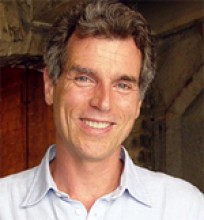
Thomas Homer-Dixon holds the Centre for International Governance Innovation Chair of Global Systems at the Balsillie School of International Affairs in Waterloo, Canada, and is a Professor in the Centre for Environment and Business in the Faculty of Environment, University of Waterloo. Recently, his research has focused on threats to global security in the 21st century and on how societies adapt to complex economic, ecological, and technological change. His books include The Upside of Down: Catastrophe, Creativity, and the Renewal of Civilization, which won the 2006 National Business Book Award; The Ingenuity Gap, which won the 2001 Governor General's Non-fiction Award; and Environment, Scarcity, and Violence, which won the Caldwell Prize of the American Political Science Association.
James B. Duke Professor of Law and Political Science, Duke University

Donald Horowitz is the James B. Duke Professor of Law and Political Science at Duke University. He has been a Visiting Professor at the University of Chicago Law School and the Central European University; as well as a Visiting Fellow at Wolfson College, at the Law Faculty of the University of Canterbury, and at Universiti Kebangsaan Malaysia. In 2009, he was presented with the Distinguished Scholar Award of the Ethnicity, Nationalism, and Migration Section of the International Studies Association. His recent published books include: Ethnic Groups in Conflict; A Democratic South Africa? Constitutional Engineering in a Divided Society; The Deadly Ethnic Riot; and Indonesia's Path to Constitutional Democracy, to be published in 2012.
Associate Professor, Georgetown University

Lise Howard is an Associate Professor in the Department of Government at Georgetown University. She has served as a Jennings Randolph Senior Fellow at the U.S. Institute of Peace, and was the founding director of the Master of Arts Program in Conflict Resolution at Georgetown. Dr. Howard's research and teaching interests span the fields of international relations, comparative politics, and conflict resolution. Her work focuses on civil wars, peacekeeping, U.S. foreign policy, and area studies of the Balkans and sub-Saharan Africa. She has published several articles and book chapters on these topics. Her book, UN Peacekeeping in Civil Wars, was published by Cambridge University Press in 2008, and it won the 2010 Book Award from the Academic Council on the UN System (ACUNS) for the best book on the UN system published in the previous three years. She is currently working on several projects about U.S. foreign policy in ethnic conflict, the use of force in UN peacekeeping operations, and norms of civil war termination.
Jean Monnet Professor of European Politics, University of Bath

Jolyon Howorth is the Jean Monnet Professor ad personam and Professor Emeritus of European Politics at the University of Bath (UK). He was Visiting Professor of Political Science at Yale from 2002 to 2018 and a Senior Fellow at the Harvard Kennedy School from 2018 to 2022. He has held Visiting Professorships at the University of Washington, the University of North Carolina-Chapel Hill, Columbia and New York Universities, Sciences-Po, Paris, the Freie Universität Berlin, the Australian Defence Force Academy, and Luiss Guido Carli University (Rome). He has held a Senior Research Fellowship at the European Union’s Institute for Security Studies. He is a Senior Research Associate at the Institut Français des Relations Internationales (Paris), a Fellow of the Royal Society for the Arts (UK), Chevalier dans l’Ordre des Palmes Académiques (France), and has been a Member of the Advisory Boards of the European Institute for Public Administration (Netherlands), the Centre for Defence Studies(UK), the Institut de Recherche Stratégique de l'Ecole Militaire (Paris), the Centre National Jean Jaurès (France), the European Policy Centre (Brussels) and the Centre for the Study of Security and Diplomacy (UK). He has published extensively in the field of European security and defense policy and transatlantic relations. Recent books include: Security and Defence Policy in the European Union, (2007, 2014); Defending Europe: the EU, NATO and the Quest for European Autonomy, (2003); European Integration and Defence: The Ultimate Challenge? (2000). In 2019, he was awarded French citizenship in recognition of his scholarship on French politics and history.
Associate Professor, Rollins School of Public Health, Emory University

Manoj Jain, MD MPH is an infectious disease physician, a writer, and a national leader in healthcare quality improvement. He received his engineering, doctorate, and public health degree from Boston University. He did his residency, fellow and executive public health training at Boston City Hospital, New England Medical Center, Tufts University and Harvard School of Public Health, respectively. He has served as a consultant to the World Bank on HIV, and has been interviewed by CNN and National Public Radio. Over the past 15 years Dr. Jain has given over a 150 talks, and published numerous scientific articles, chapters and books. Dr. Jain has conducted research on HIV epidemiology, quality improvement, and spirituality & meditation. Presently, Dr. Jain is an Infectious disease consultant at Baptist Memorial Hospital and Methodist Hospitals in Memphis. He is also a clinical Associate Professor at University of Tennessee, Memphis and Rollins School of Public Health at Emory University in Atlanta.
Senior Fellow, Futures Lab, Defense & Security Department, Center for Strategic and International Studies

Benjamin Jensen is a senior fellow for Futures Lab in the Defense and Security Department at the Center for Strategic and International Studies (CSIS). He is also a professor of strategic studies at the Marine Corps University School of Advanced Warfighting. Dr. Jensen has spent the last decade researching the changing character of political violence, technology, and strategy. He has worked with the Defense Advanced Research Projects Agency (DARPA), Marine Corps Warfighting Lab, NATO, the U.S. Army, and a range of government agencies and foundations to develop wargames and scenario-driven exercises exploring strategy, defense analysis, crisis response, military planning, and complex emergencies. Outside of traditional defense and security issues, he supported the Economic Community of West African States (ECOWAS) in developing a human security assessment framework and a red team manual for early-warning analysts and development practitioners. He is the author of four books including the forthcoming Information at War: Military Innovation, Battle Networks, and the Future of Artificial Intelligence (Georgetown University Press, 2022), Military Strategy in the 21st Century: People, Connectivity, and Competition (Cambria, 2018), Cyber Strategy: The Evolving Character of Power and Coercion (Oxford University Press, 2018), and Forging the Sword: Doctrinal Change in the U.S. Army (Stanford University Press 2016). Most recently, he served as the senior research director and lead author for the U.S. Cyberspace Solarium Commission. Dr. Jensen is a graduate of the University of Wisconsin-Madison and received his MA and PhD from the American University School of International Service. He is also a reserve officer in the U.S. Army.
Professor of Practice/International Affairs, Johns Hopkins, Fellow, Hoover Institution

Josef Joffe is Professor of Practice/International Affairs at Johns Hopkins Center for Global Affairs. His career has been divided between journalism and academia, Europe and the United States. He has taught at SAIS, Harvard, Stanford and Munich University. He was twice Regent Fellow at the University of California and a Visiting Lecturer at Princeton and Darthmouth. He has held research positions at the Woodrow Wilson Center,the Carnegie Endowment for International Peace, and the Institute for International Studies at Stanford. He has serveved as a distinguished Fellow at Stanford’s Hoover Institution since 2004. In Germany, he has served as editorial-page editor at Süddeutsche Zeitung (Munich) and editor of the weekly Die Zeit (Hamburg). Columns, essays and book reviews in: The Wall Street Journal, New York Times, Washington Post, Guardian, Financial Times, Time, Newsweek, New Republic, Politico, Atlantic, and the New York Review of Books. In 2020, he co-founded the successor magazine American Purpose. His recent books include Überpower: The imperial Temptation of America; The Myth of American Decline; and The Good Germans: Career of a Moral Superpower.
Associate Professor of Political Science & International Affairs, George Washington University, Fellow, Wilson Center

Stephen B. Kaplan is an Associate Professor of Political Science and International Affairs in the Department of Political Science at George Washington University, and a current fellow at the Wilson Center. His research and teaching interests are on the frontiers of international and comparative political economy, where he specializes in the political economy of global finance and development, the politics of macroeconomic policy-making, Chinese foreign economic policy, and Latin American politics. His book, Globalization and Austerity Politics in Latin America, was published by Cambridge University Press (in the Cambridge Studies in Comparative Politics Series) in 2013, and was selected for Choice’s Outstanding Academic Titles in the Social and Behavioral Sciences that same year. The book is based on his doctoral dissertation, which was awarded the 2010 Mancur Olson Award for Best Dissertation in Political Economy by the American Political Science Association. Kaplan is currently working on his second book manuscript, Globalizing Patient Capital: The Political Economy of Chinese Finance in the Americas (under contract with Cambridge University Press), which aims to evaluate the political and policy making implications of growing Chinese economic interdependence in the Western Hemisphere. His current research also examines debtor-creditor relations in global finance, the role of technocratic communities in shaping economic policy, and the rise of emerging powers. I have published articles in The Journal of Politics, Electoral Studies, Latin American Research Review, Review of International Political Economy, and World Development.
Senior Fellow, Stanford Institute for International Studies
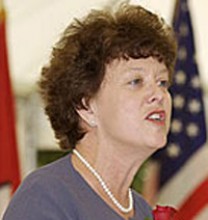
Terry Karl is Professor of Political Science, William and Gretchen Kimball University Fellow, and Senior Fellow of the Stanford Institute for International Studies. Dr. Karl was educated at Stanford University, where she received her BA, MA and Ph.D. with distinction, and where she returned to teach in 1987. Dr. Karl has published widely on comparative politics and international relations, with special emphasis on the politics of oil-exporting countries, transitions to democracy, problems of inequality, human rights and civil wars, and contemporary Latin American politics. Dr. Karl's many books include: The Paradox of Plenty: Oil Booms and Petro-States; The Limits to Competition (co-authored with members of the Group of Lisbon of the European Commission); Oil and Conflict (with Mary Kaldor); and a monograph on ending impunity, centering on the trial of Romagoza et al versus General Garcia et al, the first successful jury trial of war criminals in the US.
Gordon McKay Professor of Applied Physics, Harvard School of Engineering and Applied Sciences, Professor of Public Policy, Harvard Kennedy School, Founder, Carbon Engineering

David Keith is Gordon McKay Professor of Applied Physics at the Harvard School of Engineering and Applied Sciences, Professor of Public Policy at the Harvard Kennedy School, and founder of Carbon Engineering, a company developing technology to capture CO2 from ambient air to make carbon-neutral hydrocarbon fuels. Keith has worked near the interface between climate science, energy technology, and public policy for twenty-five years, and he is known for his work on the science, technology, and public policy of solar geoengineering. He is the author of A Case for Climate Engineering, which provides a clear and accessible overview of the costs and risks, and how climate engi-neering might fit into a larger program for managing climate change.
Professor of Political Science and International Studies, Boston College, Stephen & Barbara Friedman Professor of International Political Economy Emeritus, Cornell University

Jonathan Kirshner is Professor of Political Science and International Studies at Boston College, and the Stephen and Barbara Friedman Professor of International Political Economy Emeritus at Cornell University. He is the author of An Unwritten Future: Uncertainty and Realism in World Politics, and co-editor of Downfall of the American Order? Kirshner served as director of Cornell University’s Reppy Institute for Peace and Conflict Studies from 2007 to 2015, and previously chaired the Economics and National Security Program at the Olin Institute of Strategic Studies at Harvard. His research and teaching interests focus on international relations, political economy (especially macroeconomics and money), and politics and film. He is the author of numerous books, including American Power after the Financial Crisis, and Hollywood’s Last Golden Age: Politics, Society and the Seventies Film in America. His first book, Currency and Coercion: The Political Economy of International Monetary Power explored how states manipulate international monetary relations to advance security-related goals. Another book, Appeasing Bankers: Financial Caution on the Road to War, won the best book award from the International Security Studies Section of the International Studies Association. From Cornell University, Kirshner is a recipient of the Provost's Award for Distinguished Scholarship, and the Stephen and Margery Russell Distinguished Teaching Award.
Head of Policy, Munich Security Conference

Nicole Koenig is Head of Policy of the Munich Security Conference (MSC). She is an expert on EU foreign and security policy and Franco-German security cooperation. Before joining the MSC, she was Deputy Director of the Jacques Delors Centre at the Hertie School. Prior to that, she worked at various European think tanks and universities, including the Istituto Affari Internazionali in Rome, the Trans European Policy Studies Association in Brussels, the Institute for Advanced Sustainability Studies in Potsdam, and the Department of War Studies at King's College London. In 2019-20, she was also Europe's Futures Fellow at the Institute for Human Sciences in Vienna, and in 2022 she was a DAAD Fellow at the American Institute for Contemporary German Studies in Washington, D.C. Nicole completed her PhD on EU crisis management in Africa at the Universities of Cologne and Edinburgh. She holds a Master's degree in "EU International Relations and Diplomacy" from the College of Europe in Bruges and one in Politics and Management from the University of Constance. Her publications include Putin’s war and the Strategic Compass: A quantum leap for the EU’s security and defence policy?; From Strategic Compass to Common Course: Key deliverables and implementation paths; and After the German election: What's next in EU foreign and security policy?
Director General, Russian International Affairs Council

Dr. Andrey Kortunov is the Director General of the Russian International Affairs Council. Dr. Kortunov previously served as Deputy Director of the Institute for US and Canadian Studies. He was founder and first president of the Moscow Public Science Foundation. He has taught Russian foreign policy at the University Of Miami and at the Lewis & Clark College in Portland (University of California). In 2011, he was elected Director General of the Russian International Affairs Council non-profit partnership established by order of the President of the Russian Federation. His academic focus is international relations, foreign and domestic policy of Russia and Russian-American relations. Dr. Kortunov is the author of over 120 publications dedicated to the analysis of Soviet/Russian-American relations, global security, and the foreign and domestic policy of the USSR and Russia. His major recent publications include Russia and UN Reforms, and Disintegration of the Soviet Union and US Policies.
Affiliated Expert, The Lugar Center, Principal, Kunder/Reali Associates
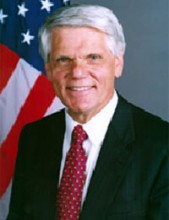
James Kunder is principal at Kunder/Reali Associates, an Alexandria, Virginia-based consulting firm, specializing in international development, post-conflict reconstruction and civil-military relations. Concurrently, he serves as an Affiliated Expert at The Lugar Center, in Washington, DC, and as a member of the Executive Committee of the Modernizing Foreign Assistance Network. In 2014-15, working with Palladium, Kunder led a major evaluation project for the Department of State Bureau of Intelligence and Research, examining whether U.S. Government programs attempting to counter violent extremism abroad were achieving their objectives. Kunder has extensive government and private sector experience managing international development, relief and reconstruction programs. At USAID, Kunder has served as Acting Deputy Administrator, Assistant Administrator for Asia and the Near East, Director for Relief and Reconstruction in Afghanistan, and Director of the Office of US Foreign Disaster Assistance. In the private sector, Kunder was Vice President for Program Development at Save the Children Federation. He has also served as a legislative director in the U.S. House of Representatives, and was a candidate for Congress in Pennsylvania’s Fourth Congressional District. Prior to his service on Capitol Hill, he was on active military duty as an infantry platoon commander in the U.S. Marine Corps. He currently teaches at the U.S. Foreign Service Institute, at USAID, and at the Marine Corps University. He has authored numerous publications on international humanitarian issues, reconstruction, peacekeeping and crisis management.
Senior Adviser, Khazanah Research Institute, Malaysia, Visiting Fellow, Initiative for Policy Dialogue, Columbia University

JOMO KWAME SUNDARAM
Director, Center for Middle East Studies, University of Oklahoma

Joshua Landis is Director of the Center for Middle East Studies and Professor at the University of Oklahoma’s College of International Studies. He writes “Syria Comment,” a daily newsletter on Syrian politics that attracts over 100,000 readers a month. Dr. Landis travels frequently to Washington DC to consult with government agencies and speak at think tanks. Most recently he has spoken at the Woodrow Wilson Institute, Brookings Institute, USIP, Middle East Institute, and Council on Foreign Relations. He is a frequent analyst on TV and radio, most recently he has appeared on PBS News Hour, The Charlie Rose Show, al-Jazeera, Frontline, NPR and BBC radio. He is frequently published in such journals as Foreign Policy, & Middle East Policy. His most recent publications include: “Why Syria is the Gordian knot of Obama's anti-ISIL campaign”, Al Jazeera America, Sept 15, 2014; “Why Asad Is Likely to Survive to 2013” Middle East Policy 19:1 Spring 2012; and “Stay Out of Syria” June 5, 2012, Foreign Policy. He has won the best teacher prize at his university; helped raised over one million dollars for a new chair in Iranian studies, and helped bring the government funded Arabic Flagship Program to OU. Three Fulbright grants, the SSRC and other awards have helped support his research.
Associate Professor of Political Science, Massachusetts Institute of Technology

CHAPPELL LAWSON
Robert M. Gates Chair in Intelligence and National Security, Texas A&M University

Christopher Layne is University Distinguished Professor of International Affairs and Robert M. Gates Chair in National Security at the Bush School of Government and Public Service at Texas A&M University. His fields of interest are international relations theory, great power politics, US foreign policy, and grand strategy. Professor Layne has written two books: The Peace of Illusions: American Grand Strategy from 1940 to the Present and (with Bradley A. Thayer) American Empire: A Debate. His current book project, After the Fall: International Politics, U.S. Grand Strategy, and the End of the Pax Americana, is under contract with Yale University Press. Additionally, he has contributed extensively to the debates about international relations theory and American foreign policy in such scholarly and policy journals as International Security, International Studies Quarterly, International History Review, Security Studies, International Politics, Review of International Studies, Journal of Strategic Studies, The National Interest, Foreign Policy, The Washington Quarterly, World Policy Journal, and Orbis. Professor Layne has been a frequent contributor to The Atlantic, The New Republic, The Nation, Financial Times, New York Times, Los Angeles Times, Washington Post, and The Australian. He is a member of the Council on Foreign Relations and is a member of the Editorial Board of Security Studies. In May/June 2014, he was a visiting fellow at the Norwegian Nobel Institute in Oslo.
Doctoral Prize Fellow, Loughborough University London

Dr. Ronan Lee is an Irish-Australian Doctoral Prize Fellow at Loughborough University London’s Institute for Media and Creative Industries where his research focuses on the Rohingya, genocide, hate speech, migration, and Asian politics. Ronan’s book Myanmar’s Rohingya Genocide: Identity, History and Hate Speech was published by Bloomsbury in 2021 and he was awarded the 2021 Early Career Emerging Scholar Prize by the International Association of Genocide Scholars. Ronan has a professional background in politics, media, and public policy. He was formerly a Queensland State Member of Parliament (2001-2009) and served on the frontbench as a Parliamentary Secretary (2006-2008) in portfolios including Justice, Main Roads and Local Government. He has also worked as a senior government advisor, and as an election strategist and campaign manager.
Associate Professor of Political Science, George Washington University

JANET LEWIS
Senior Fellow and Director, Technology and Public Policy Program, CSIS
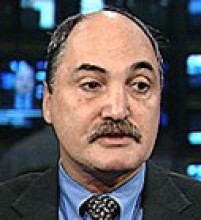
James Lewis is a senior fellow and director of the Technology and Public Policy Program at CSIS, where he focuses on technology, national security, and the international economy. Before joining CSIS, he worked in the federal government as a foreign service officer and as a member of the senior executive service. His assignments involved Asian regional security, military intervention and insurgency, conventional arms negotiations, technology transfer, sanctions, Internet policy, and military space programs. Lewis has authored numerous CSIS publications with the theme of how government policies adjust to technological innovation. They include Building an Information Technology Industry in China: National Strategy, Global Markets; Foreign Influence on Software: Risks and Recourse; Waiting for Sputnik: Basic Research and Strategic Competition; Globalization and National Security; Spectrum Management for the 21st Century; Assessing the Risk of Cyber Terrorism; and Preserving America’s Strength in Satellite Technology.
Professor of Political Science, Rutgers
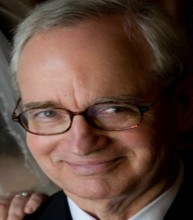
Roy Licklider, Professor of Political Science, received his B.A. from Boston University and his M.A. and Ph.D. in international relations from Yale. He taught at Tougaloo College before coming to Rutgers in l968. He has taught courses in international relations, foreign and military policy, terrorism, research design, international political economy, and the comparative politics of higher education. His early research was concerned with nuclear strategy, comparative foreign policy, and the impact of economic sanctions on foreign policy, particularly the Arab oil embargo of 1973-74. His recent research has focused on how people who have been killing one another in civil wars with considerable skill and enthusiasm can sometimes—but more often than you might think—form working political communities. He is Adjunct Research Scholar at the Saltzman Institute of War and Peace Studies at Columbia and has taught at Princeton and Yale. He has been a member of the Inter-University Consortium for Foreign Policy Research and the University Seminar on Reconciliation at Columbia University, President of the Comparative Foreign Policy Section of the International Studies Association, Program Officer at the Exxon Education Foundation, and consultant for the Political Instability Task Force at Science Applications International Corporation.
Professor, Edmund A. Walsh School of Foreign Service & the Department of Government, Georgetown University

KEIR LIEBER
Senior Research Scholar, Stanford University
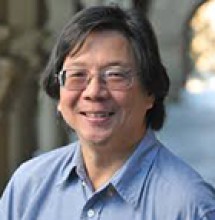
Dr. Herb Lin is senior research scholar for cyber policy and security at the Center for International Security and Cooperation and Hank J. Holland Fellow in Cyber Policy and Security at the Hoover Institution, both at Stanford University. His research interests relate broadly to policy-related dimensions of cybersecurity and cyberspace, and he is particularly interested in and knowledgeable about the use of offensive operations in cyberspace, especially as instruments of national policy. In addition to his positions at Stanford University, he is Chief Scientist, Emeritus for the Computer Science and Telecommunications Board, National Research Council (NRC) of the National Academies, where he served from 1990 through 2014 as study director of major projects on public policy and information technology, and Adjunct Senior Research Scholar and Senior Fellow in Cybersecurity (not in residence) at the Saltzman Institute for War and Peace Studies in the School for International and Public Affairs at Columbia University; and a member of the Science and Security Board of the Bulletin of Atomic Scientists. He recently served on President Obama’s Commission on Enhancing National Cybersecurity. Prior to his NRC service, he was a professional staff member and staff scientist for the House Armed Services Committee (1986-1990), where his portfolio included defense policy and arms control issues. His recent publications include Attribution of Malicious Cyber Incidents: From Soup to Nuts and Maneuvering The China-U.S. Relationship in Cyberspace.
Leo Marx Career Development Associate Professor, MIT

ERIK LIN-GREENBERG
Deputy Director, Integrated Development, Bill and Melinda Gates Foundation, Lead, Global Regulatory Systems Initiatives, Bill & Melinda Gates Foundation

Dr. Murray Lumpkin has served as the Deputy Director of Integrated Development and Lead for Global Regulatory Systems Initiatives at the Bill and Melinda Gates Foundation since January 2014. These initiatives are focused on working with partners such as the World Health Organization, regulatory regionalization initiatives, and national regulatory authorities to make more efficient and effective (without sacrificing product quality, efficacy, or safety) the regulatory processes through which products must pass in order to be developed, legally marketed, and overseen appropriately after marketing authorization in low- and middle-income countries. Prior to his appointment at the Gates Foundation, he was at the US FDA for 24 years, as Director of the Anti-infective Drugs Division, then Deputy Center Director at CDER, and finally for 11 years as Deputy Commissioner of US FDA for International Programs.
Associate Professor of Political Science, George Washington University and the Elliott School of International Affairs
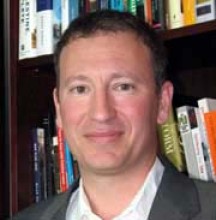
Marc Lynch is Associate Professor of Political Science at George Washington University and the Elliott School of International Affairs. He received his Ph.D. in 1997 from Cornell University and his BA from Duke University in 1990. He works on international politics, with a specialty on the Middle East. His current research interests focus on the relationship between new media technologies and Islamist movements, public diplomacy, and Arab public opinion. He also runs the popular Middle East politics blog, Abu Aardvark. He is the author of State Interests and Public Spheres: The International Politics of Jordan's Identity, and Voices of the New Arab Public: Iraq, al-Jazeera, and Middle East Politics Today.
Vice President & Director of the Foreign Policy Program, Brookings Institution

SUZANNE MALONEY
Founder & Director, Dialogue Advisory Group, Dr. of Social and Behavioral Sciences, University of Amsterdam

Ram Manikkalingam founded and directs the Dialogue Advisory Group (DAG), and teaches politics at the University of Amsterdam. He has extensive experience working on mediation and diplomacy at senior levels in government, civil society and with international organizations. He advised then President Kumaratunga on the ceasefire and reconstruction in peace talks with the Tamil Tigers. He led the Rockefeller Foundation’s work on International Security, where he supported programs to end the recruitment of child soldiers, ban anti-personnel mines and monitor the work of the UN Security Council. At DAG, he led teams that disarmed the Basque separatist armed group ETA, and the Irish Republican dissident armed group INLA, and worked on several efforts to pursue political dialogues in difficult conflict situations. Manikkalingam recently published Tamil Tigers: Dialogue, Terrorism and Nationalism, an eyewitness account and expert exploration of the bloody civil war that engulfed the island of Sri Lanka for nearly three decades.
Lecturer in Public Policy, Harvard Kennedy School

Zoe Marks is a Lecturer in Public Policy at the Harvard Kennedy School. Her research and teaching interests focus on the intersections of conflict and political violence; race, gender and inequality; peacebuilding; and African politics. Her current book project examines the internal dynamics of rebellion in Sierra Leone to understand how and why rebel groups can sustain a viable threat to the state without widespread support. Professor Marks is leading a separate project that examines how wartime experiences shape individual wellbeing and community reintegration after war. In addition to her research on peace and conflict, Professor Marks is committed to creating space for conversations about ethical research praxis and making academia more inclusive. She has convened workshops related to decolonizing the academy and recently edited a related special issue of the journal Critical African Studies with colleagues at the University of Cape Town. Her work has been supported by the UK Economic and Social Research Council, UK Department for International Development, British Academy, Carnegie Trust, US Fulbright Program, and Oxford Beit Fund. Her research has been published in leading journals in the field, including African Affairs, Political Geography, and Civil Wars, and in peer-reviewed books and edited volumes from Oxford University and Palgrave press. Her dissertation received the Winchester Prize for the best dissertation in Politics at the University of Oxford and was runner-up for the biannual Audrey Richards Prize from the African Studies Association of the UK. She is on the editorial board for the journals Civil Wars and Critical African Studies, and serves on the editorial committee of Journal of Peace Research. Prior to joining the Kennedy School, she was a Chancellor’s Fellow and Lecturer (tenured) at the University of Edinburgh, where she directed the master’s program in African Studies and was Director of the University's Global Development Academy. She has previously worked for UN and non-governmental organizations in Ethiopia, France, Sierra Leone, South Africa, the UK, and the US.
Dean Acheson Chair, SAIS, Johns Hopkins University

Matthias Matthijs holds the Dean Acheson Chair at SAIS and is associate professor of international political economy. His research focuses on the politics of economic crises, the role of economic ideas in economic policymaking, and the politics of regional integration. At SAIS, he teaches courses in international relations and comparative politics, and was twice awarded the Max M. Fisher Prize for Excellence in Teaching, in 2011 and 2015. He is also a Senior Fellow for Europe at the Council on Foreign Relations (CFR) and served as the Chair of the European Union Studies Association (EUSA) from 2019 to 2021. Matthijs is the editor (with Mark Blyth) of The Future of the Euro, published by Oxford University Press in 2015, and author of Ideas and Economic Crises in Britain from Attlee to Blair (1945-2005), published by Routledge in 2011. The latter is based on his doctoral dissertation, which received the Samuel H. Beer Prize for Best Dissertation in British Politics by a North American scholar, awarded by the British Politics Group of the American Political Science Association (APSA) in 2010.
Fellow, Center for Middle East Policy, Brookings
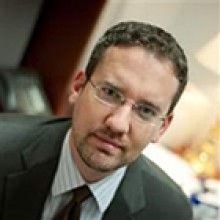
William McCants is a fellow at Brookings in the Center for Middle East Policy and director of its Project on U.S. Relations with the Islamic World. He is also adjunct faculty at Johns Hopkins University and has held various government and think tank positions related to Islam, the Middle East, and terrorism. From 2009-2011, McCants served as a U.S. State Department senior adviser for countering violent extremism. He has also held positions as program manager of the Minerva Initiative for the Department of Defense; an analyst at the Institute for Defense Analyses, the Center for Naval Analyses and SAIC; and a fellow at West Point’s Combating Terrorism Center. He is the founder of Jihadica.com, an academic group blog focused on the global jihadi movement. The blog has been featured on the cover of the New York Times, and described by Wired magazine’s Danger Room as “the gold standard in militant studies.” His latest book is Founding Gods, Inventing Nations: Conquest and Culture Myths from Antiquity to Islam.
Associate Professor, London School of Economics & Political Science

Omar Shahabudin McDoom is a comparative political scientist and Associate Professor in the Department of Government at the London School of Economics and Political Science. His research interests lie in peace and security. He specializes in the study of conflicts and violence framed along ethnic and religious boundaries, and in strategies that promote co-existence and cooperation between social groups in plural societies. He has field expertise in sub-Saharan Africa — primarily Rwanda, Burundi, the Democratic Republic of the Congo, and Uganda — and in South-East Asia, notably the Philippines. Dr. McDoom’s work has been published in International Security, the Journal of Peace Research, and the Journal of Conflict Resolution. He has held research fellowships at Harvard and Oxford universities. His professional experience includes work as a Policy Officer for the World Bank, as a Legal Officer for the Government of Guyana, and on electoral missions for the OSCE and UN. He is the author of Path to Genocide in Rwanda: Security, Opportunity, and Authority in an Ethnocratic State (Cambridge University Press, 2021).
R. Wendell Harrison Distinguished Service Professor of Political Science, University of Chicago

JOHN MEARSHEIMER
Senior Research Scholar, Princeton University
Sophie Meunier is Senior Research Scholar at the Princeton School of Public and International Affairs, Princeton University. She is Director of the Program in Contemporary European Politics and Society (from July 2022) and Co-Director of the EU Program at Princeton. She is the author of Trading Voices: The European Union in International Commercial Negotiations (Princeton University Press, 2005) and The French Challenge: Adapting to Globalization (Brookings Institution Press, 2001), winner of the 2002 France-Ameriques book award. She is also co-editor of several books on Europe and globalization, most recently Developments in French Politics 6 (Palgrave MacMillan 2020) and Speaking with a Single Voice: The EU as an Effective Actor in Global Governance? (Routledge, 2015). Meunier is Vice-Chair of the European Union Studies Association (2021-2023). Her current work deals with the politics of investment screening mechanisms and the political challenges posed by Chinese direct investment in the European Union, including as part of the PRISM project and the Beauty Contests grant. She was made Chevalier des Palmes Academiques by the French Government.
Professor of Inter-societal History, Walsh School of Foreign Service, Georgetown University

James Millward is Professor of Inter-societal History at the Walsh School of Foreign Service, Georgetown University, teaching Chinese, Central Asian and world history. He also teaches as invited professor in the Máster Oficial en Estudios de Asia Oriental at the University of Granada, Spain. His specialties include Qing empire; the silk road; Eurasian lutes and music in history; and historical and contemporary Xinjiang. He follows and comments on current issues regarding the Uyghurs and PRC ethnicity policy. Millward has served on the boards of the Association for Asian Studies (China and Inner Asia Council) and the Central Eurasian Studies Society, and was president of the Central Eurasian Studies Society in 2010. He edits the ''Silk Roads'' series for University of Chicago Press. His publications include The Silk Road: A Very Short Introduction (2013), Eurasian Crossroads: a History of Xinjiang (2007), New Qing Imperial History: the Making of Inner Asian Empire at Qing Chengde (2004), and Beyond the Pass: Economy, Ethnicity and Empire in Qing Central Asia (1998). His most recent album, recorded with the band By & By, is Songs for this Old Heart. His articles and op-eds on contemporary China appear in The New York Times, The Washington Post, The Guardian, The Global Times, The Los Angeles Review of Books, The New York Review of Books and other media.
Professor of Politics, Princeton University, Director, European Union Program, Princeton University

ANDREW MORAVCSIK
Professor of Political Science, Tufts University

Malik Mufti is a professor of political science at Tufts University. He teaches courses on international relations and the politics of the Middle East, and is a recipient of the Lillian and Joseph Leibner Award for Distinguished Teaching and Advising. He is the author of Sovereign Creations: Pan-Arabism and Political Order in Syria and Iraq (1996), Daring and Caution in Turkish Strategic Culture: Republic at Sea (2009), and The Art of Jihad: Realism in Islamic Political Thought (2019). His recent journal articles include "Democratizing Potential of the 'Arab Spring': Some Early Observations" (Government and Opposition, July 2015); "Turkey at 100: Between Constancy and Change" (International Relations, June 2023); and "Nietzsche, the Muslim Falāsifa, and Leo Strauss's Avicennan Turn" (Review of Politics, Spring 2024). His current project is on the encounter between Islam and America.
Adjunct Associate Professor, Columbia University

Dipali Mukhopadhyay is an Adjunct Associate Professor of International and Public Affairs at Columbia University, where she is also a faculty affiliate of the Saltzman Institute of War and Peace Studies. She is the author of Good Rebel Governance: Revolutionary Politics and Western Intervention in Syria (Cambridge University Press, forthcoming) with Kimberly Howe and Warlords, Strongman Governors and State Building in Afghanistan (Cambridge University Press, 2014). Her scholarly publications also include articles in Conflict, Security and Development, International Negotiation, Perspectives on Politics, as well as a series of book chapters in edited volumes. Her policy-oriented writing has been published by the Carnegie Endowment for International Peace, Foreign Policy, Lawfare, the U.S. Institute of Peace, and The Washington Post. Mukhopadhyay’s research has been funded by the Carnegie Corporation, the Eisenhower Institute, the Smith Richardson Foundation, the U.S. Institute of Peace, Harvard Law School, the U.S. Agency for International Development, and the U.S. Department of Education. She is Vice President of the American Institute of Afghan Studies and a term member of the Council on Foreign Relations.
Frank Stanton Professor of Nuclear Security & Political Science, MIT

VIPIN NARANG
Executive Professor, George H.W. Bush School of Government, Texas A&M University

Andrew Natsios has served as Executive Professor at the George H.W. Bush School of Government at Texas A&M University since 2012, and since 2013 been Director of the Scowcroft Institute of International Affairs. He was Distinguished Professor in the Practice of Diplomacy at the Walsh School of Foreign Service at Georgetown University from 2006-2012 and former Administrator of the US Agency for International Development (USAID) from 2001-2006, U.S. Presidential Envoy to Sudan from 2006-2007, and served in the US Army Reserves for 22 years retiring as a Lt. Col. Natsios served as Vice President of World Vision, the international faith-based NGO from 1993-1998. He is the author of South Sudan and Darfur: What Everyone Needs to Know; U.S. Foreign Policy and the Four Horsemen of the Apocalypse; The Great North Korean Famine; co-editor (with Andrew H. Card, Jr.) of Transforming Our World: President George H.W. Bush and American Foreign Policy; 28 journal articles and has contributed to 13 other books.
Professor, School of Foreign Service and Government Department, Georgetown University

ABRAHAM NEWMAN
Kenan Sahin Dean of the School of Humanities, Arts, & Social Sciences, MIT, Professor of Political Science, MIT

Melissa Nobles is the Kenan Sahin Dean of the School of Humanities, Arts, and Social Sciences, and Professor of Political Science at the Massachusetts Institute of Technology. Nobles’ research and teaching have focused on the comparative study of racial and ethnic politics, and issues of retrospective justice. Her current research centers on constructing a database of racial killings in the American South, 1930–1954. Working closely as a faculty collaborator and advisory boardmember of Northeastern Law School's Civil Rights and Restorative Justice law clinic, Nobles has conducted extensive archival research, unearthing understudied and more often, unknown deaths and contributing to legal investigations. She is the author of two books, Shades of Citizenship: Race and the Census in Modern Politics (Stanford University Press, 2000), The Politics of Official Apologies (Cambridge University Press, 2008), and co-editor with Jun-Hyeok Kwak of Inherited Responsibility and Historical Reconciliation in East Asia (Routledge Press, 2013). Her scholarship has also appeared in the Annual Review of Political Science, Daedalus, American Journal of Public Health, and several edited books. Nobles has held fellowships at Boston University's Institute for Race and Social Division and Harvard University's Radcliffe Center for Advanced Study. She has served on the editorial boards of Polity, American Political Science Review, and Perspectives on Politics journals. Nobles has also been involved in faculty governance at MIT and beyond, serving as the Associate Chair of the MIT Faculty from 2007–2009 and Vice-President of the American Political Science Association, 2013-14.
Director, Migration, Remittances & Development Program, Inter-American Dialogue

Manuel Orozco is the Director of the Migration, Remittances, and Development Program at the Inter-American Dialogue. He also serves as a Senior Fellow at Harvard University’s Center for International Development and as a Senior Adviser with the International Fund for Agricultural Development. Orozco has conducted extensive research, policy analysis and advocacy on issues relating to global flows of remittances as well as migration and development worldwide. He is Chair of Central America and the Caribbean at the US Foreign Service Institute and Senior Researcher at the Institute for the Study of International Migration at Georgetown University. Orozco frequently testifies before Congress and has spoken before the United Nations. Orozco has published widely on remittances, Latin America, globalization, democracy, migration, conflict in war torn societies, and minority politics. His books include International Norms and Mobilization for Democracy (2002), Remittances: Global Opportunities for International Person-to-Person Money Transfers (2005), América Latina y el Caribe: Desarrollo, migración y remesas (2012) and Migrant Remittances and Development in the Global Economy (2013).
Professor of Political Science and Data Systems & Society, MIT, Director, Program on Emerging Technologies, MIT

KENNETH OYE is a Post-Tenure Professor of Political Science and Data Systems and Society at MIT. His work in international relations includes Cooperation under Anarchy: Economic Discrimination and Political Exchange and four co-edited volumes on US foreign policy. Oye consulted for the Petersen Institute, UNIDO, US Treasury, Commerce, and EXIM. His work in technology policy examines the risks and benefits of synthetic biology, pharmaceuticals, and the internet. It has resulted in papers in Nature, Science, Clinical Pharmacology and Therapeutics, Politics and the Life Sciences, and Issues in Science and Technology. Oye is Director of the MIT Program on Emerging Technologies, a faculty affiliate of the Synthetic Biology Center, the Center for Biomedical Innovation, and the Internet Policy Research Initiative; and Chair of the Broad Institute Biosafety Committee.
Associate Professor, University of Ottawa
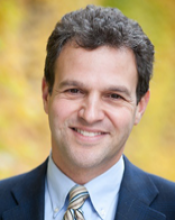
Roland Paris is University Research Chair in International Security and Governance at the University of Ottawa, founding Director of the Centre for International Policy Studies, and Associate Professor in the Graduate School of Public and International Affairs. His research interests are in the fields of international security, international governance and foreign policy. Before joining the University of Ottawa in 2006, he was Director of Research at the Conference Board of Canada, the country's largest think tank; foreign policy advisor in the Department of Foreign Affairs and the Privy Council Office of the Canadian government; Assistant Professor of Political Science at the University of Colorado-Boulder; and Visiting Researcher at the Johns Hopkins School of Advanced International Studies in Washington, D.C. He has won two awards for public service and four awards for teaching. Paris' writings have appeared in leading academic journals including International Security and International Studies Quarterly. His book “At War's End: Building Peace After Civil Conflict” (Cambridge University Press, 2004) won the Grawemeyer Award for Ideas Improving Global Order and the International Studies Association's prize for best book on multilateralism. He has co-edited two other volumes on peacebuilding, and is co-editor of the Security & Governance book series at Routledge. In 2012 Paris was appointed a Global Ethics Fellow by the Carnegie Council on Ethics and International Affairs. He is also a fellow of the Canadian Defence and Foreign Affairs Institute, and a member of the board of directors of the World University Service of Canada.
Director, Korea Project, Harvard Kennedy School

Dr. John Park is a senior Asia analyst at the Harvard Kennedy School’s Belfer Center, where he serves as Director of the Korea Project. His core research projects focus on the political economy of the Korean Peninsula, nuclear deterrence, economic statecraft, North Korean cyber operations, and Northeast Asian alliances. At Harvard University, he is a Faculty Member of the Committee on Regional Studies East Asia and a Faculty Affiliate with the Project on Managing the Atom. Dr. Park was the 2012-13 Stanton Nuclear Security Faculty Fellow at MIT’s Security Studies Program. He also directed Northeast Asia Track 1.5 dialogues at the U.S. Institute of Peace in Washington, D.C. He advises Northeast Asia policy-focused officials in the U.S. government. Earlier, Dr. Park worked at Goldman Sachs and The Boston Consulting Group. Dr. Park’s key publications include: “Where Do Divergent U.S. and Chinese Approaches to Dealing with North Korea Lead?” in The China Questions II: Critical Insights into U.S.-China Relations (Harvard University Press, August 2022); “Micro Deterrence Signaling: Policy Innovation During the 2017 Korean Missile Crisis,” (Korea Project Report, Harvard Kennedy School, April 2022 – co-authored with General Vincent K. Brooks); “Stopping North Korea, Inc.: Sanctions Effectiveness and Unintended Consequences,” (MIT Security Studies Program, 2016 – co-authored with Dr. Jim Walsh); “The Key to the North Korean Targeted Sanctions Puzzle,” The Washington Quarterly (Fall 2014); “Assessing the Role of Security Assurances in Dealing with North Korea” in Security Assurances and Nuclear Nonproliferation (Stanford University Press, 2012); “North Korea, Inc.: Gaining Insights into North Korean Regime Stability from Recent Commercial Activities” (USIP Working Paper, May 2009); and “North Korea’s Nuclear Policy Behavior: Deterrence and Leverage,” in The Long Shadow: Nuclear Weapons and Security in 21st Century Asia (Stanford University Press, 2008). Dr. Park’s current research examines the North Korean regime’s accumulated learning in evading sanctions via cyber operations. He has testified on North Korea before the Senate Banking Committee, House Financial Services Committee, and House Foreign Affairs Committee. Dr. Park received his Ph.D. from the University of Cambridge. He completed his predoctoral and postdoctoral training at the Harvard Kennedy School.
Senior Fellow, Carnegie Council for Ethics in International Affairs, Executive Director, Carnegie Climate Governance Initiative

Janos Pasztor is a Senior Fellow at the Carnegie Council for Ethics in International Affairs and Executive Director of the Carnegie Climate Governance Initiative (C2G). He has over 35 years of work experience in the areas of energy, environment, climate change, and sustainable development. Before taking up his current assignment he was UN assistant secretary-general for climate change in New York under Secretary-General Ban Ki-moon. Earlier, he was acting executive director for conservation (2014) and policy and science director (2012-2014) at WWF International. He directed the UNSG’s Climate Change Support Team (2008-2010) and later was executive secretary of the UNSG’s High-level Panel on Global Sustainability (2010-2012). In 2007 he directed the Geneva-based UN Environment Management Group (EMG). During 1993-2006 he worked, and over time held many responsibilities at the Climate Change Secretariat (UNFCCC), initially in Geneva and later in Bonn. His other assignments included: in the Secretariat of the 1992 UN Conference on Environment and Development (Earth Summit ’92); Stockholm Environment Institute; United Nations Environment Programme (UNEP); Secretariat of the World Commission on Environment and Development (Brundtland Commission); the Beijer Institute; and the World Council of Churches.
Senior Fellow, Council on Foreign Relations, Director, Program on International Institutions and Global Governance

Suzanne Maloney is a senior fellow at the Center for Middle East Policy at the Brookings Institution, where her research focuses on energy, economic reform and U.S. policy toward the Middle East. Most recently, she was a member of the State Department's Policy Planning Staff, covering Iran, Iraq, the Gulf States and broader Middle East issues. Prior to joining the government, she was the Middle East advisor at ExxonMobil Corporation, where she worked on regional business development, political risk analysis and corporate outreach and communications. Her most recent publication is Iran’s Long Reach: Iran as a Pivotal State in the Muslim World. She was the recipient of an International Affairs Fellowship at the Council on Foreign Relations and has previously served at Brookings as an Olin fellow and a Brookings research fellow.
Resident Scholar, American Enterprise Institute

Kenneth Pollack is a resident scholar at the American Enterprise Institute (AEI), where he works on Middle Eastern political-military affairs. Dr. Pollack began his career as a Persian Gulf military analyst at the CIA. He then served twice on the National Security Council, first as director for Near East and South Asian affairs and then as director for Persian Gulf affairs. Before joining AEI, Dr. Pollack was a senior fellow of the Brookings Institution for 15 years, where he also served as the director of research and then the director of the Brookings Center for Middle East Policy. Dr. Pollack is the author of 10 books, including most recently, Armies of Sand: The Past, Present, and Future of Arab Military Effectiveness.
Ford International Professor of Political Science, MIT

Barry R. Posen is Ford International Professor of Political Science at MIT and serves on the Executive Committee of Seminar XXI. He has written three books, Restraint-A New Foundation for U.S. Grand Strategy; Inadvertent Escalation: Conventional War and Nuclear Risks; and The Sources of Military Doctrine. The latter won two awards: The American Political Science Association's Woodrow Wilson Foundation Book Award, and Ohio State University's Edward J. Furniss Jr. Book Award. He is also the author of numerous articles, including "The Case for Restraint," The American Interest, (November/December 2007) and "Command of the Commons: The Military Foundation of U.S. Hegemony," International Security, (Summer, 2003.) He has been a Council on Foreign Relations International Affairs Fellow; Rockefeller Foundation International Affairs Fellow; Guest Scholar at the Center for Strategic and International Studies; Woodrow Wilson Center Fellow; Smithsonian Institution; Transatlantic Fellow of the German Marshall Fund of the United States, and most recently Visiting Fellow at the John Sloan Dickey Center at Dartmouth College.
Senior Fellow & Director, Reimagining US Grand Strategy Program, Stimson Center

Christopher Preble is the Senior Fellow and Director of the Reimagining US Grand Strategy program at the Stimson Center. Prior to joining the Stimson Center, he served as Co-Director of the Atlantic Council’s New American Engagement Initiative. His work focuses on the history of US foreign policy, contemporary US grand strategy and military force posture, alliance relations, and the intersection of trade and national security. Preble is the author of four books, including Peace, War, and Liberty: Understanding U.S. Foreign Policy (Cato Institute, 2019); and The Power Problem: How American Military Dominance Makes Us Less Safe, Less Prosperous, and Less Free (Cornell University Press, 2009). His work has appeared in major publications including the New York Times, the Washington Post, the Financial Times, Survival, Foreign Policy, and Foreign Affairs. In addition to his work at the Stimson Center, Preble co-hosts the “Net Assessment” podcast. Preble was vice president for defense and foreign policy studies at the Cato Institute from 2011 to 2020, and director of foreign policy studies from 2003 to 2011. Preble was a commissioned officer in the US Navy, and served aboard the USS Ticonderoga (CG-47) from 1990 to 1993.
Professor of Government, Dartmouth College, Director, Dartmouth Initiative on Global Security

DARYL PRESS
Independent Consultant on Eastern and Central African Affairs, Former Director of the French Center for Ethiopian Studies, Addis-Ababa

Dr. Gerard Prunier is an Independent Consultant on Eastern and Central African affairs and former Director of the French Center for Ethiopian Studies in Addis-Ababa. One of the foremost Africanists in the world today, Prunier is the author of more than two hundred scholarly articles and a dozen books in four languages, including The Rwanda Crisis: History of a Genocide, Darfur: A 21st Century Genocide—which was hailed by Foreign Affairs as “the best available account of the Darfur crisis”—and Africa’s World War: Congo, the Rwandan Genocide, and the Making of Continental Catastrophe, which was awarded a special honorable mention in the Council on Foreign Relations’ 2010 Arthur Ross Book Award competition for the best book published in international relations, the first Africa-focused book ever so honored. Until he reached the mandatory retirement age, Prunier served as a senior researcher at the Centre National de la Recherche Scientifique, France’s largest government research organization, and a professor at the University of Paris. From 2001-2006, he was seconded to the French Ministry of Foreign Affairs and served as the director of the Centre Français des Études Éthiopiennes in Addis Ababa. Throughout his career, Prunier has not only served as an advisor to the French government, but also consulted for the US State and Defense Departments, various European and African governments, as well as private companies. Prunier also serves on the academic council of the Association for the Study of the Middle East and Africa and on the editorial board of the Journal of the Middle East and Africa.
Executive Director, The AI Institute, Chairman & Founder, Boston Dynamics

Marc Raibert is Executive Director of The AI Institute, a new Hyundai-owned research lab devoted to advancing both the intelligence of robots and their physical skills. He is also Chairman of Boston Dynamics, which he founded in 1992. Prior to Boston Dynamics, Raibert was a professor of computer science at CMU and MIT, where he created the Leg Laboratory, a lab that helped establish the scientific basis for highly dynamic robots. Raibert is a Founding Fellow of the Association for the Advancement of Artificial Intelligence (AAAI) and a member of the National Academy of Engineering. He was named Pioneer in Robotics in 2022 by the Institute of Electrical and Electronics Engineers (IEEE) and received the 2022 Engelberger Award in Technology, the world's most prestigious robotics honor. Two of Raibert's robots, the One-legged Hopper and BigDog, were inducted into the Robot Hall of Fame.
Professor of Political Science, Boston College , Research Associate, Fairbanks Center for Chinese Studies, Harvard University

Robert Ross is Professor of Political Science at Boston College and Associate of John King Fairbank Center for Chinese Studies at Harvard University. He has taught at Columbia University and at the University of Washington and in 1989 was a Guest Scholar at the Brookings Institution in Washington, D.C. In 1994-1995 he was Fulbright Professor at the Chinese Foreign Affairs College, in 2003 he was a Visiting Senior Fellow at the Institute of International Strategic Studies, Qinghua University, Beijing, and in 2014 was Visiting Scholar, School of International Relations, Peking University. In 2009 he was Visiting Scholar, Institute for Strategy, Royal Danish Defence College. From 2009-2014 he has been Adjunct Professor, Institute for Defence Studies, Norwegian Defence University College. Professor Ross's research focuses on Chinese security policy and defense policy, East Asian security, and U.S.-China relations. His recent publications include Chinese Security Policy: Structure, Power, and Politics, China’s Ascent: Power, Security, and the Future of International Politics, and New Directions in the Study of Chinese Foreign Policy. His other major works include Normalization of U.S.-China Relations: An International History; Great Wall and Empty Fortress: China’s Search for Security, Negotiating Cooperation: U.S.-China Relations, 1969-1989, and The Indochina Tangle: China's Vietnam Policy, 1975-1979. Professor Ross has testified before various Senate and House committees and the Defense Policy Board Advisory Committee, he advises U.S. government agencies, and he serves on the Academic Advisory Group, U.S.-China Working Group, United States Congress. He is a member of the Council on Foreign Relations and the National Committee for U.S.-China Relations. Professor Ross is also a member of the executive committee of the John King Fairbank Center for Chinese Studies, Harvard University. He has served as Senior Advisor of the Security Studies Program, Massachusetts Institute of Technology, and Senior Advisor to the Institute for American Studies, Shanghai. He is a founding member and former board member of the United States Committee of the Council for Security Cooperation in the Asia-Pacific and former co-chair of the Committee's task force on Confidence Strategic Building Measures. He is on the editorial board of Security Studies, Journal of Contemporary China, Journal of Cold War Studies, Issues and Studies, Asia Policy, Journal of Chinese Political Science, the Security Studies book series of Shanghai People’s Press, and the Grand Strategy book series of Peking University Press.
Senior Fellow, Middle East Institute

NATAN SACHS
Ford International Professor of Political Science, MIT

RICHARD SAMUELS
Senior Fellow, Center for Global Development, Co-Director, CGD’s Education Program

Justin Sandefur is a Senior Fellow at the Center for Global Development and Co-Director of CGD’s Education Program. His research spans the economics of education and health, among other fields – including large-scale field experiments on topics such as outsourcing public schools in Liberia, scaling up successful education reforms with the Kenyan government, nationwide democratic deliberation on the use of natural resource revenues in Tanzania, and an evaluation of GAVI's impact on vaccination rates in middle-income countries. Prior to joining CGD, he was a resident adviser to the Tanzanian government in Dar es Salaam and a research officer at Oxford's Centre for the Study of African Economies. He has taught as a visiting professor at Georgetown's Walsh School of Foreign Service, served as a consultant for the World Bank and various United Nations agencies, and as a member of the Millennium Challenge Corporation's economic advisory council. He holds a doctorate in economics from Oxford University.
Jean Monnet Professor of European Integration, Boston University, Founding Director, Boston University Center for the Study of Europe

Vivien A. Schmidt is Jean Monnet Professor of European Integration, Professor Emerita of International Relations and Political Science, and Founding Director of the Center for the Study of Europe, all at Boston University, where she taught from 1998 to 2023. Prof. Schmidt is currently Visiting Fellow in the Robert Schuman Center at the European University Institute in Florence, Honorary Professor at LUISS Guido Carli University in Rome, and Senior Fellow at the Zoe Institute in Cologne and Brussels. She received her B.A. from Bryn Mawr College, her Masters and PhD from the University of Chicago, and attended Sciences Po in Paris. Prof. Schmidt’s research focuses on European political economy, institutions, democracy, and political theory—in particular on the importance of ideas and discourse in political analysis (discursive institutionalism). Her recent books include Europe’s Crisis of Legitimacy (2020—recipient of the Best Book Award of the American Political Science Association’s Ideas, Knowledge, Politics section and Honorable Mention from the European Union Studies Association); Resilient Liberalism in Europe’s Political Economy (co-edited, 2013), and Democracy in Europe (2006— named in 2015 by the European Parliament as one of the ‘100 Books on Europe to Remember’). Her awards and fellowships include a Guggenheim Fellowship, the Mentoring Award of the Women in International Political Economy section of the International Studies Association, the Belgian Franqui Interuniversity Chair for foreign scholars, a Rockefeller Bellagio Center Residency, a Jean Monnet Chair awarded by the European Union Commission, and Fulbright Fellowships to France and the UK. Her honors include being decorated as a Chevalier in the French Legion of Honor, inducted into the American Academy of Arts and Sciences, and granted an honorary doctorate from the Free University of Brussels (ULB). Prof. Schmidt has also been a visiting professor or visiting scholar at the Free University of Berlin, the Free University of Brussels, Sciences Po in Paris, the European University Institute, and Oxford University, among others. She is past head of the European Union Studies Association (EUSA) and sits on a number of advisory boards, including, the Vienna Institute for Peace, the Foundation for European Progressive Studies (Brussels), and previously the Wissenschaft Zentrum Berlin. She has published thirteen books, over 300 scholarly journal articles or chapters in books, and numerous policy briefs and comments, most recently on the Eurozone crisis. Her current work, supported by a Guggenheim fellowship, focuses on the ‘rhetoric of discontent,’ through a transatlantic investigation of the populist revolt against globalization and Europeanization.
Professor, Political Science, MIT
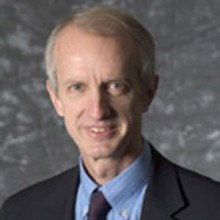
Ben Ross Schneider is a Professor of Political Science at MIT, and his research interests fall within the general fields of comparative politics, political economy, and Latin American politics. His books include Politics within the State: Elite Bureaucrats and Industrial Policy in Authoritarian Brazil, Business and the State in Developing Countries, Reinventing Leviathan: The Politics of Administrative Reform in Developing Countries, and Business Politics and the State in 20th Century Latin America. He also has written on topics such as economic reform, democratization, technocracy, the developmental state, business groups, and comparative bureaucracy.
Ira. A Lipman Chair in Emerging Technology and National Security, Council on Foreign Relations, Director, Digital and Cyberspace Policy Program, Council on Foreign Relations

ADAM SEGAL
President, Migration Policy Institute

ANDREW SELEE
Associate Professor of Political Science, Tufts University, Director, Tufts International Relations Program

OXANA SHEVEL
Strategist & Senior Fellow, New America

Peter Warren Singer is strategist and senior fellow at New America. He has been named by the Smithsonian as one of the nation’s 100 leading innovators, by Defense News as one of the 100 most influential people in defense issues, by Foreign Policy to their Top 100 Global Thinkers List, and as an official “Mad Scientist” for the U.S. Army’s Training and Doctrine Command. Singer’s award winning books include Corporate Warriors: The Rise of the Privatized Military Industry; Children at War; Wired for War: The Robotics Revolution and Conflict in the 21st Century; Cybersecurity and Cyberwar: What Everyone Needs to Know; and Ghost Fleet: A Novel of the Next World War, a technothriller crossed with nonfiction research, which has been endorsed by people who range from the Chairman of the Joint Chiefs to the co-inventor of the Internet to the writer of HBO Game of Thrones. His latest book is LikeWar, which explores how social media has changed war and politics, and war and politics has changed social media. It was named an Amazon book of the year, a NYTimes “new and notable,” and reviewed by Booklist as “LikeWar should be required reading for everyone living in a democracy and all who aspire to.” His past work include serving at the Office of the Secretary of Defense, Harvard University, and as the founding director of the Center for 21st Century Security and Intelligence at Brookings, where he was the youngest person named senior fellow in its 100 year history.
Managing Director, The Washington Institute, Former Senior Director for Middle East Affairs, National Security Council
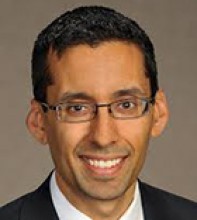
Michael Singh is managing director of The Washington Institute and a former senior director for Middle East affairs at the National Security Council. At the White House, Mr. Singh was responsible for devising and implementing strategies on a wide range of Middle East issues, from efforts to prevent Iran's acquisition of nuclear weapons capability, to the Arab-Israeli peace process, to promoting human rights in the region. He served in the NSC for three years, as senior director for Middle East affairs and as director for Iran and for Lebanon, Syria, Egypt, and North Africa. Previously, Mr. Singh served as special assistant to secretaries of state Condoleezza Rice and Colin Powell and was staff assistant to then ambassador Daniel Kurtzer at the U.S. embassy in Tel Aviv. A member of the Harvard International Review's Board of Advisors, Mr. Singh has written extensively on Iran, the Israeli-Palestinian conflict, and U.S. national security strategy and management. His articles have appeared in the Wall Street Journal, Washington Post, World Affairs, the American Interest, the Economist, Foreign Affairs online, and other publications. He is a regular contributor to ForeignPolicy.com, and appears frequently in national and global media outlets such as Fox News, NBC, CBS, and the BBC.
Director, World Fellows Program, Yale University, Senior Fellow, Jackson Institute for Global Affairs

Emma Sky is director of Yale's Maurice R. Greenberg World Fellows Program and a Senior Fellow at the Jackson Institute, where she teaches Middle East politics. She is the author of the highly acclaimed The Unravelling: High Hopes and Missed Opportunities in Iraq (2015) and In a Time of Monsters: Travelling in a Middle East in Revolt (2019). Sky served as advisor to the Commanding General of US Forces in Iraq from 2007-2010; as advisor to the Commander of NATO’s International Security Assistance Force in Afghanistan in 2006; as advisor to the US Security Co-ordinator for the Middle East Peace Process in 2005; and as Governorate Co-ordinator of Kirkuk for the Coalition Provisional Authority, 2003-2004. Prior to that, Sky worked in the Palestinian territories for a decade, managing projects to develop Palestinian institutions; and to promote co-existence between Israelis and Palestinians. In addition, Emma has provided technical assistance on poverty elimination, human rights, justice public administration reform, security sector reform, and conflict resolution in the Middle East, South Asia and Africa. Sky was educated at Oxford (UK), Alexandria (Egypt), Hebrew University of Jerusalem (Israel) and Liverpool (UK). Sky is an Officer of the Order of the British Empire.
Professor of Political Science, University of Chicago, Nonresident Scholar, South Asia Program, Carnegie Endowment for International Peace

Paul Staniland is Professor of Political Science at the University of Chicago and a nonresident scholar in the South Asia Program at the Carnegie Endowment for International Peace. He is also the faculty chair of the Committee on International Relations MA program. His research focuses on political violence and international security in South Asia. His first book, Networks of Rebellion: Explaining Insurgent Cohesion and Collapse, was published by Cornell University Press in 2014. His second book, Ordering Violence: Explaining Armed Group-State Relations from Conflict to Cooperation, was published by Cornell in 2021. Both won multiple awards. Staniland is in the early stages of a book project on the consequences of major power competition for the internal politics of “swing” states in South and Southeast Asia since 1945.
Dean, The Fletcher School, Tufts University
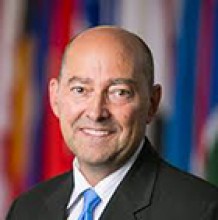
James Stavridis is the 12th leader of The Fletcher School since its founding in 1933. A retired Admiral in the U.S. Navy, he led the NATO Alliance in global operations from 2009 to 2013 as Supreme Allied Commander. He also served as Commander of U.S. Southern Command, with responsibility for all military operations in Latin America from 2006-2009. A Fletcher PhD, he won the Gullion prize as outstanding student and has published five books and over a hundred articles. His focus is on innovation, strategic communication and planning, and creating security through international, interagency, and public/private partnerships in this turbulent 21st century.
Martin J. Gross Fellow, Program on Arab Politics, Washington Institute

Andrew Tabler is the Martin J. Gross Fellow in the Program on Arab Politics at The Washington Institute, where he focuses on Syria and U.S. policy in the Levant. Mr. Tabler achieved unparalleled long-term access to Bashar al-Assad's Syria. During fourteen years of residence in the Middle East, Mr. Tabler served as co-founder and editor-in-chief of Syria Today, Syria's first private-sector English-language magazine; as a consultant on U.S.-Syria relations for the International Crisis Group (2008); and as a fellow of the Institute of Current World Affairs (2005-2007), writing on Syrian, Lebanese, and Middle Eastern affairs. Following his graduate work in Cairo, Egypt, Mr. Tabler held editorships with the Middle East Times and Cairo Times, where he focused on Arab-Israeli peace negotiations, before becoming senior editor and director of editorial for the Oxford Business Group (OBG). In 2001, Mr. Tabler personally oversaw with OBG the first comprehensive English-language report on Syria in more than thirty years. Mr. Tabler has lived, worked and studied extensively in Egypt, Israel, Jordan, Lebanon, Syria, Tunisia, and Turkey. Mr. Tabler has interviewed Syrian first lady Asma al-Assad, the late Israeli president Shimon Peres, the late Palestinian president Yasser Arafat, slain Lebanese prime minister Rafiq Hariri, and former Lebanese prime ministers Fouad Siniora and Saad Hariri. His articles and opinion pieces on Middle East affairs and U.S. foreign policy have appeared in the New York Times, the New York Times Magazine, the International Herald Tribune, Newsweek, Foreign Policy, and Foreign Affairs. He has also appeared in interviews with CNN, NBC, CBS, PBS, NPR, and the BBC. Mr. Tabler is author of "Syria's Collapse and How Washington Can Stop It" (Foreign Affairs, July-August 2013) and the 2011 book In the Lion's Den: An Eyewitness Account of Washington's Battle with Syria.
Senior Fellow for Middle East studies, Council on Foreign Relations

Ray Takeyh is Hasib J. Sabbagh senior fellow for Middle East studies at the Council on Foreign Relations (CFR). His areas of specialization are Iran, U.S. foreign policy, and the modern Middle East. Takeyh is, most recently, the author of The Last Shah: America, Iran and the Fall of the Pahlavi Dynasty. He is the coauthor of The Pragmatic Superpower: Winning the Cold War in the Middle East and Revolution & Aftermath: Forging a New Strategy Toward Iran. He is author of three previous books, Guardians of the Revolution: Iran and the World in the Age of the Ayatollahs, Hidden Iran: Paradox and Power in the Islamic Republic, and The Origins of the Eisenhower Doctrine: The US, Britain and Nasser’s Egypt, 1952-1957. He has written more than three hundred articles and opinion pieces in many news outlets including Wall Street Journal, New York Times, and Foreign Affairs. Takeyh has testified more than twenty times before various Congressional committees. Prior to joining CFR, he has served as a senior advisor on Iran at the State Department and was a fellow at the Yale University, The Washington Institute of Near East Policy, and the Middle East Center at University of California, Berkeley. Takeyh holds a doctorate in modern history from Oxford University.
Associate Professor of Political Science, MIT

Caitlin Talmadge is Associate Professor of Political Science at the Massachusetts Institute of Technology. She also serves as a Senior Non-Resident Fellow in Foreign Policy at the Brookings Institution; a member of the Defense Policy Board at the U.S. Department of Defense; and a series editor for Cornell Studies in Security Affairs at Cornell University Press. Professor Talmadge’s research and teaching focus on nuclear deterrence and escalation, U.S. military operations and strategy, and security issues in Asia and the Persian Gulf. She is author of The Dictator’s Army: Battlefield Effectiveness in Authoritarian Regimes (Cornell, 2015), which Foreign Affairs named the Best Book in Security for 2016 and which won the 2017 Best Book Award from the International Security Studies Section of the International Studies Association. In addition, she is co-author of U.S. Defense Politics: The Origins of Security Policy (fourth edition, Routledge, 2021), and she is currently writing a book with Professor Brendan Green on nuclear escalation risk in the emerging deterrence environment. Dr. Talmadge has published articles in International Security, Security Studies, The Journal of Conflict Resolution, The Journal of Strategic Studies, Foreign Affairs, The Washington Quarterly, The Non-Proliferation Review, The New York Times, The Wall Street Journal, and The Washington Post, among others. She has also testified before the Congressionally mandated U.S.-China Economic and Security Review Commission, and her commentary on current events has appeared in The Financial Times, The New York Times, The Atlantic, The Economist, Newsweek, and other media outlets such as CNN.
Professor of Security Studies, National Defense University, Adjunct Professor, SAIS, Johns Hopkins University

ÖMER TASPINAR
Professor of Political Science, Syracuse University, Director of the Moynihan Institute of Global Affairs, Syracuse University

BRIAN TAYLOR
Professor of International Politics, The Fletcher School, Tufts University

Monica Duffy Toft is Professor of International Politics at The Fletcher School at Tufts University. Previously, Toft was Professor of Strategy for the Naval War College in Newport, Rhode Island, and Professor of Public Policy at the Blavatnik School of Government. She taught at Harvard University’s John F. Kennedy School of Government, where she directed the Initiative on Religion in International Affairs and was the assistant director of the John M. Olin Institute for Strategic Studies. Prior to this, she spent four years in the United States Army as a Russian linguist. Toft’s areas of research include international security, ethnic and religious violence, civil wars and demography. Her most recent books include: Securing the Peace; Political Demography (with Jack Goldstone and Eric Kaufmann); and God’s Century (with Daniel Philpott and Timothy Shah). In addition she has published numerous scholarly articles and editorials on civil wars, territory and nationalism, demography, and religion in global politics. Her article Islamists and Nationalists: Rebel Motivation and Counterinsurgency in Russia's North Caucasus co-authored with Yuri Zhukov was published in the American Political Science Review in May 2015. Her most recent opinion pieces are on religious fundamentalism and women's equality in the Huffington Post and on the importance of identity politics for Iraq's security at Project Syndicate, a column that appeared in 19 publications in five different languages. Toft was also a supernumerary fellow at Brasenose College, University of Oxford; a Global Scholar of the Peace Research Institute Oslo; a member of the Council on Foreign Relations, the Minorities at Risk Advisory Board, and the Political Instability Task Force; and in 2008 the Carnegie Foundation of New York named her a Carnegie Scholar for her research on religion and violence.
University Lecturer, Blavatnik School of Government, Oxford University, Fellow, St. Hilda's College

Maya Tudor is a University Lecturer in Government and Public Policy at the Blavatnik School of Government, Oxford University and a fellow of St Hilda's College. Tudor has worked as a Special Assistant to Chief Economist Joseph Stiglitz at the World Bank, at UNICEF, in the United States Senate, and at the Bangladesh Rural Advancement Committee, recently ranked the world's top NGO. A dual citizen of Germany and the United States, she has lived and worked in Bangladesh, Germany, France, India, Kenya, Pakistan, the Philippines, the United Kingdom and the United States. Tudor's research investigates the origins of stable, democratic and effective states across the developing world, with a particular emphasis upon South Asia. Her recently published book, The Promise of Power (Cambridge University Press, 2013), was based upon her 2010 dissertation, which won the American Political Science Association's Gabriel Almond Prize for the Best Dissertation in Comparative Politics. The book investigates the origins of India and Pakistan's puzzling regime divergence in the aftermath of colonial independence. She is also the author of a number of articles, most recently Explaining Democracy's Origins in Comparative Politics.
Professor of International Relations, Waseda University, Research Affiliate, MIT

Dr. Chikako Kawakatsu Ueki is Professor of International Relations at the Graduate School of Asia-Pacific Studies (GSAPS) at Waseda University and currently a research affiliate at MIT. She teaches “International Security” and “International Relations and Security in East Asia.” She served as a member of the Prime Minister’s Council on Security and Defense Capabilities in 2009. Her areas of expertise include causes and prevention of war and East Asian international relations with a special focus on U.S.-Japan-China relations. She has written extensively on issues concerning threat perception in a unipolar world, transformation of international relations after the Cold War, and issues relating to security problems in East Asia. At Waseda University, she leads a program on Political Integration at the Global Institute for Asian Regional Integration (GIARI), and research projects on Security Studies at the Institute for Asia-Pacific Studies (WIASP) and at the Organization for Japan-U.S. Studies (WOJUSS). Her works include: “Repairing the Strategic Safety-Net: Security and Interdependence in East Asia” (2006); “Strategy, Military Power and Security — Senryaku, Gunjiryoku, Anzenhosho” in Access Anzenhoshoron (2005); “International Structural Change and U.S.-Japan-China Relations: The Importance of ‘Liberal Deterrence’ Policy, ” International Affairs (2009); and “Nationalism as a Cause of War: The Case of the Crimean War” (1998). Prior to joining GSAPS, Dr. Ueki was Senior Research Fellow and Professor at the National Institute for Defense Studies, which is the main research arm of the Japan Ministry of Defense. During her appointment at NIDS, she was the main author of the China chapters in the NIDS annual publication: East Asian Strategic Review and reports on strategic assessments.
Ford International Professor, MIT

Stephen Van Evera is Ford International Professor in the MIT Political Science Department. He works in several areas of international relations: the causes and prevention of war, US foreign policy, US security policy, US intervention in the Third World, international relations of the Middle East, and international relations theory. He has published books on the causes of war and on social science methodology, and articles on American foreign policy, American defense policy, nationalism and the causes of war, the origins of World War I, and US strategy in the War on Terror. He currently serves as chair of the Tobin Project committee on national security. He is the author of Causes of War: Power and the Roots of Conflict.
Senior Lecturer, MIT Sloan School of Management, Director, MIT AI Policy for the World Project

LUIS VIDEGARAY
Senior Research Associate, Security Studies Program, MIT

Jim Walsh is a Senior Research Associate at the Massachusetts Institute of Technology’s Security Studies Program (SSP). Dr. Walsh’s research and writings focus on international security, and in particular, topics involving nuclear weapons, the Middle East, and East Asia. Dr. Walsh has testified before the United States Senate and House of Representatives on issues of nuclear terrorism, Iran, and North Korea. He is one of a handful of Americans who has traveled to both Iran and North Korea for talks with officials about nuclear issues. His recent publications include, “Laser Enrichment and Proliferation: Assessing Future Risks,” "Testimony before Committee on Oversight and Government Reform, Subcommittee on National Security, U.S. House of Representatives" (June 6, 2018), “Stopping North Korea, Inc.: Sanctions Effectiveness and Unintended Consequences” and “Rivals, Adversaries, and Partners: Iran and Iraq in the Middle East” in Iran and Its Neighbors. He is the international security contributor to the NPR program “Here and Now,” and his comments and analysis have appeared in the New York Times, the New York Review of Books, Washington Post, Wall Street Journal, ABC, CBS, NBC, Fox, and numerous other national and international media outlets. Before coming to MIT, Dr. Walsh was Executive Director of the Managing the Atom project at Harvard University’s John F. Kennedy School of Government and a visiting scholar at the Center for Global Security Research at Lawrence Livermore National Laboratory. He has taught at both Harvard University and MIT.
Robert and Renee Belfer Professor of International Affairs, Harvard University

Stephen M. Walt is the Robert and Renee Belfer Professor of International Affairs at Harvard University. He previously taught at Princeton University and the University of Chicago, where he served as Master of the Social Science Collegiate Division and Deputy Dean of Social Sciences. He has been a Resident Associate of the Carnegie Endowment for Peace and a Guest Scholar at the Brookings Institution, and he has also served as a consultant for the Institute of Defense Analyses, the Center for Naval Analyses, and the National Defense University. He presently serves on the editorial boards of Foreign Policy, Security Studies, International Relations, and Journal of Cold War Studies, and he also serves as Co-Editor of the Cornell Studies in Security Affairs, published by Cornell University Press. Additionally, he was elected as a Fellow in the American Academy of Arts and Sciences in May 2005. His book The Israel Lobby and U.S. Foreign Policy (Farrar, Straus & Giroux, 2007, co-authored with John J. Mearsheimer) was a New York Times best seller and has been translated into more than twenty foreign languages. His most recent book is The Hell of Good Intentions: America’s Foreign Policy Elite and the Decline of U.S. Primacy (Farrar, Straus & Giroux, 2018).
Rohr Professor of International Affairs, University of California, San Diego

Barbara F. Walter is the Rohr Professor of International Affairs at the University of California, San Diego. She is the New York Times bestselling author of How Civil Wars Start and How To Stop Them, and other award-winning books on civil wars. Walter is a member of the Council on Foreign Relations, a frequent guest on CNN, MSNBC, NBC, and an active consultant for the World Bank, the United Nations, the Departments of Defense and State, and the January 6th committee. When not doing research, she writes for the Washington Post, the Wall Street Journal, the Los Angeles Times, the New Republic, Time, and Foreign Affairs. In 2012, she founded the blog Political Violence @ a Glance (with Erica Chenoweth) which sometimes beats out the Washington Post's Monkey Cage for Best Blog of the Year. Her real passion, however, is to paint, draw, and do anything involving art.
Senior Associate, Carnegie Endowment for International Peace

Frederic Wehrey is a senior associate in the Middle East Program at the Carnegie Endowment for International Peace. He focuses on security affairs, civil-military relations, and identity politics in North Africa and the Gulf. Prior to joining Carnegie, he was a senior policy analyst at the RAND Corporation. Wehrey is also a twenty-year veteran of the active and reserve components of the U.S. Air Force, with tours across North Africa and the Middle East, including Iraq, where he earned the Bronze Star in 2003. He is the author of a book exploring Sunni-Shi’a relations in Bahrain, Saudi Arabia, and Kuwait, entitled Sectarian Politics in the Gulf: From the Iraq War to the Arab Uprisings. His most recent Carnegie publications include U.S.-Arab Counterterrorism Cooperation in a Region Ripe for Extremism with Michele Dunne (2014), Ending Libya’s Civil War: Reconciling Politics, Rebuilding Security (2014), and A New U.S. Approach to Gulf Security (2014).
Private Sector Director, UN World Food Programme

RICHARD WILCOX
Nilekani Professor of India & South Asian Studies, Yale University

STEVEN WILKINSON
Co-Founder & Managing Director, Williams Strategy Advisors

Ambassador Bisa Williams (ret) is co-Founder and Managing Director of Williams Strategy Advisors, LLC (WSA), a problem-solving, business and foreign affairs advisory consulting firm. For the last 2 years, she has also led The Carter Center’s effort as Independent Observer of implementation of the Peace Agreement in Mali. Before forming WSA, Ambassador Williams was a career member of the Foreign Service of the U.S. Department of State. During her 30+ years in the Foreign Service, she served tours in Guinea (Conakry), Panama, Mauritius, France, the US Mission to the UN (NY), Washington, DC, including two years at the National Security Council of The White House, and Niger. As Acting Deputy Assistant Secretary of State for Western Hemisphere Affairs, Ambassador Williams led the US delegation to talks in Havana, Cuba, breaking a seven year hiatus of high level direct discussions. Her accomplishments were recognized in LeoGrande/Kornbluh book Back Channel to Cuba. She was appointed by President Barack Obama in 2010 as Ambassador to Niger where she served for 3 years. Following her tour as Ambassador, she was named Deputy Assistant Secretary of State in the Bureau of African Affairs, supporting US economic policy goals in sub-Saharan Africa and bilateral policy in the West Africa region. Ambassador Williams retired from the Foreign Service in 2015. She speaks French, Spanish, and Portuguese and is the recipient of numerous Superior and Meritorious Honor Awards from the Department of State. She holds a Master of Science degree in National Security Strategy from the National War College of the National Defense University in Washington, DC and a Master of Arts degree in Comparative Literature from the University of California, Los Angeles.
Associate Professor, Fletcher School, Tufts University

Josephine Wolff is Associate Professor of cybersecurity policy at The Fletcher School at Tufts University. Her research interests include liability for cybersecurity incidents, international Internet governance, cyber-insurance, and the economics of information security. She is the author of You'll See This Message When It Is Too Late: The Legal and Economic Aftermath of Cybersecurity Breaches and Cyberinsurance Policy: Rethinking Risk in an Age of Ransomware, Computer Fraud, Data Breaches, and Cyberattacks. Her writing on cybersecurity has also appeared in Slate, The New York Times, The Washington Post, The Atlantic, and Wired. Prior to joining Fletcher, she was an assistant professor of public policy at the Rochester Institute of Technology and a fellow at the New America Cybersecurity Initiative and Harvard's Berkman Klein Center for Internet & Society.
Research Fellow & Professor, Center for Strategy and Military Power, National Defense University

CLINT WORK
Director of Asian Studies, The Catholic University of America, Associate Professor of Politics, The Catholic University of America

Andrew Yeo is Associate Professor of Politics and Director of Asian Studies at The Catholic University of America in Washington, D.C. He is the author of Asia’s Regional Architecture: Alliances and Institutions in the Pacific Century (Stanford University Press, 2019) and author or co-editor of three other books: North Korean Human Rights: Activists and Networks (Cambridge University Press 2018); Activists, Alliances, and Anti-U.S. Base Protests (Cambridge University Press 2011); and Living in an Age of Mistrust: An Interdisciplinary Study of Declining Trust in Contemporary Society and Politics and How to get it Back (Routledge Press 2017). His research and teaching interests include international relations theory, East Asian regionalism, narratives and discourse, the formation of beliefs, ideas, and worldviews, civil society, social and transnational movements, U.S. grand strategy and global force posture, Korean politics, and North Korea. Dr. Yeo’s scholarly publications have appeared in International Studies Quarterly, European Journal of International Relations, Perspectives on Politics, Comparative Politics, Journal of East Asian Studies, and International Relations of the Asia-Pacific among others. As part of the Bridging the Gap network, Dr. Yeo is a firm believer in connecting academic theory with policy relevant research. He is a former term member of the Council on Foreign Relations and a member of the National Committee on North Korea. He contributes to the Washington Post’s Monkey Cage blog, and has appeared or been quoted in a variety of media outlets including MSNBC, Channel News Asia, CBS radio, Voice of America, RTHK-Hong Kong, The New York Times Magazine, Wall Street Journal, Washington Post, The Diplomat, and Foreign Affairs.
Founder/Principal, EHY Consulting, FBI Supervisory Special Agent (Ret.), National Counterintelligence Task Force

EDWARD YOU is the Founder and Principal of EHY Consulting LLC, a firm specializing in the security, policy, and strategic implications of emerging technologies. Through EHY Consulting, he advises industry, academia, and government on the convergence of artificial intelligence, biotechnology, quantum, and other disruptive technologies, helping organizations navigate the risks and opportunities that will define the future innovation landscape. You recently retired after more than two decades of distinguished service in the FBI, where he held leadership positions at the intersection of counterintelligence, biosecurity, and technology protection. Most recently, he served in the FBI’s National Counterintelligence Task Force, supporting a whole-of-government approach to safeguarding emerging and disruptive technologies. You served for 15 years in the Weapons of Mass Destruction Directorate. He also completed a Joint Duty Assignment at the Office of the Director of National Intelligence, where he served as the National Counterintelligence Officer for Emerging and Disruptive Technologies.
E. A. Griswold Professor of Geophysics, MIT, Vice President for Research, MIT

Maria Zuber is the E. A. Griswold Professor of Geophysics and Vice President for Research at MIT, where she is responsible for research administration and policy. She oversees MIT Lincoln Laboratory and more than a dozen interdisciplinary research laboratories and centers, including the Koch Institute for Integrative Cancer Research, the MIT Energy and Environmental Solutions Initiatives, the Plasma Science and Fusion Center, the Research Laboratory of Electronics, the Institute for Soldier Nanotechnologies, Haystack Observatory, and MIT.nano. Zuber leads the MIT’s Plan for Action on Climate Change and she has held leadership roles associated with scientific experiments or instrumentation on ten NASA missions, most notably serving as Principal Investigator of the Gravity Recovery and Interior Laboratory (GRAIL) mission.
ADMISSIONS TO BEGIN FEBRUARY 2026
LEARN ABOUT SEMINAR XXI
Hear past and present organizers reflect on over 25 years of the Seminar XXI Program and its impact on the national security policy community.
CONNECT WITH MIT
See the latest news and upcoming events within the MIT Center for International Studies community.


